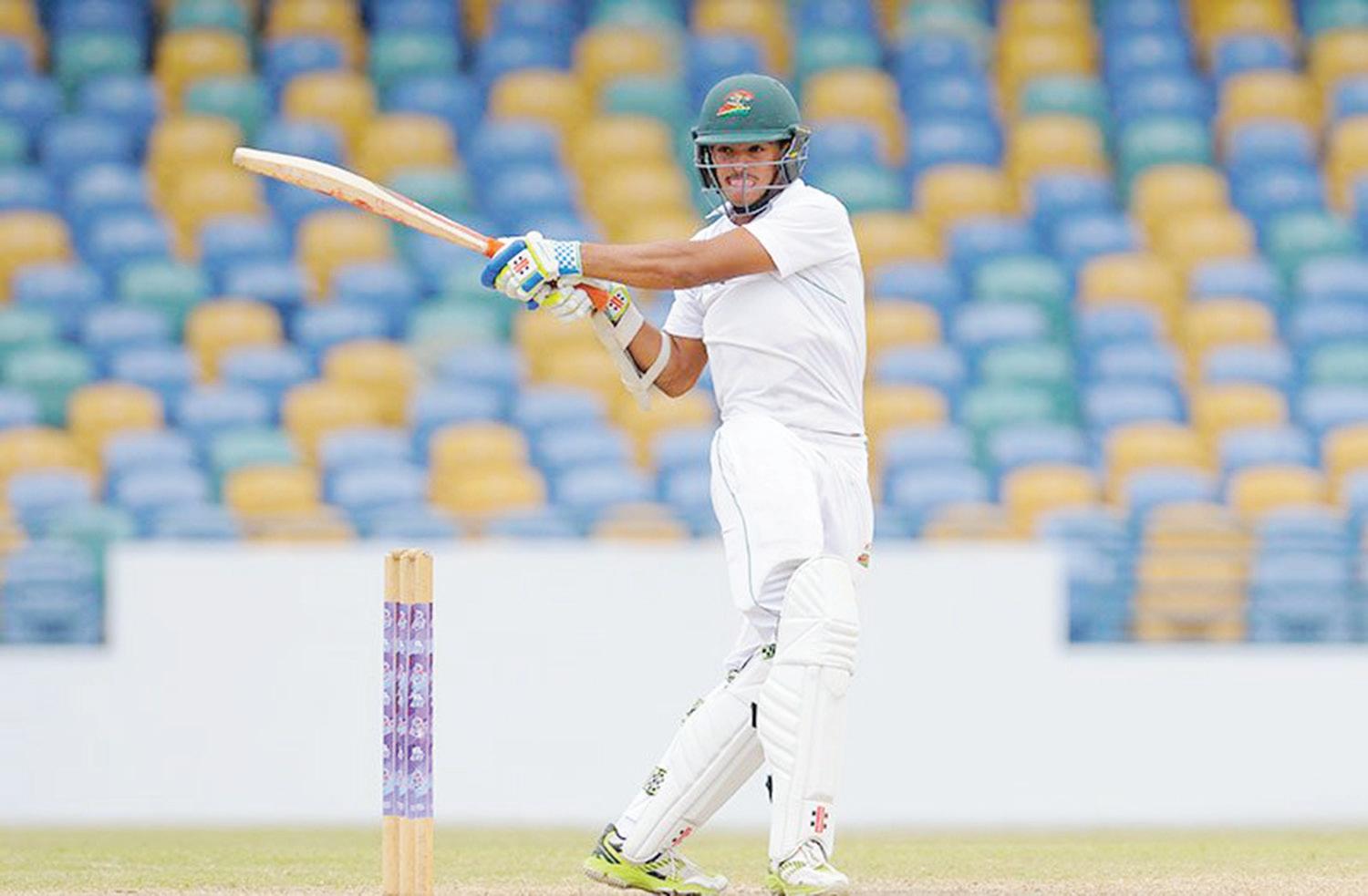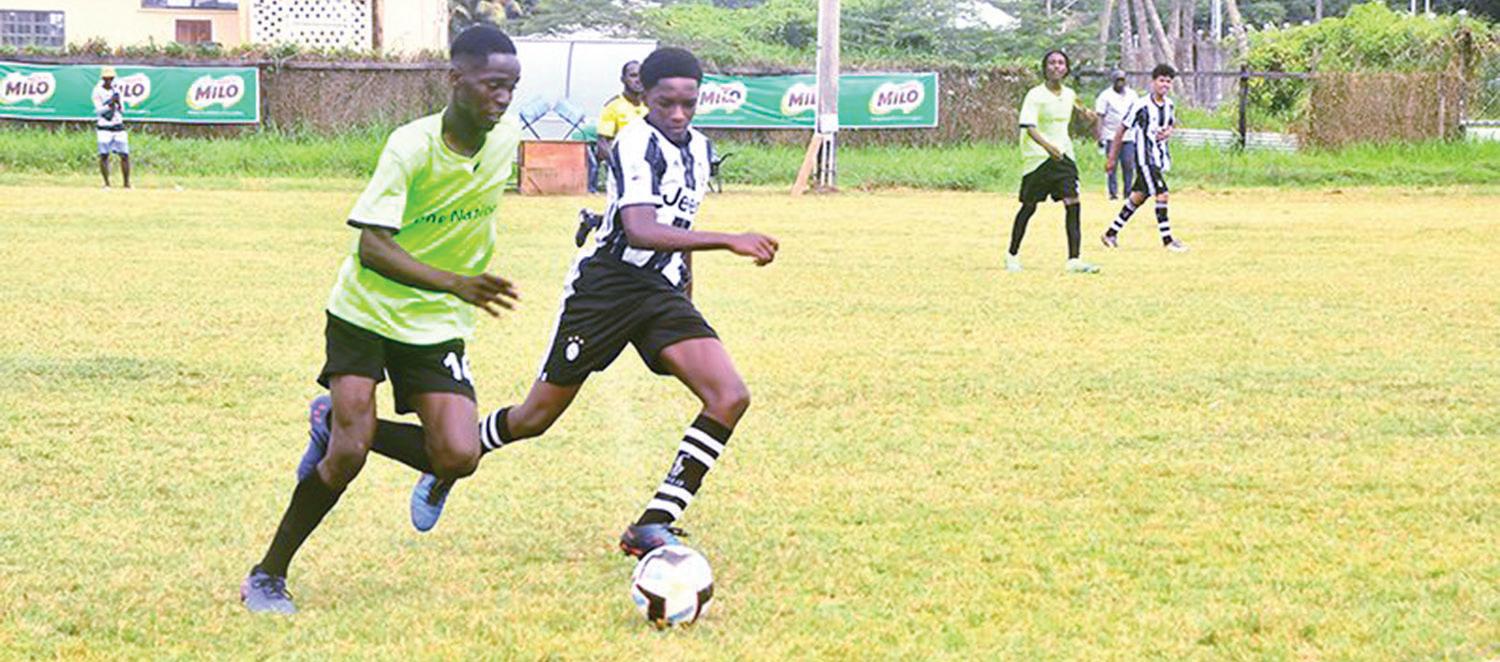
Venezuela’srecentactionsa‘flagrantviolation’ ofGuyana’ssovereignty,territorialintegrity

–– Minister Benn says move is ‘highly regrettable’, a violation of Argyle Declaration


Venezuela’srecentactionsa‘flagrantviolation’ ofGuyana’ssovereignty,territorialintegrity

–– Minister Benn says move is ‘highly regrettable’, a violation of Argyle Declaration
–– President Ali says at launch of Guyana Coursera Platform; emphasises
government’s dedication to making first-class education accessible to all Guyanese
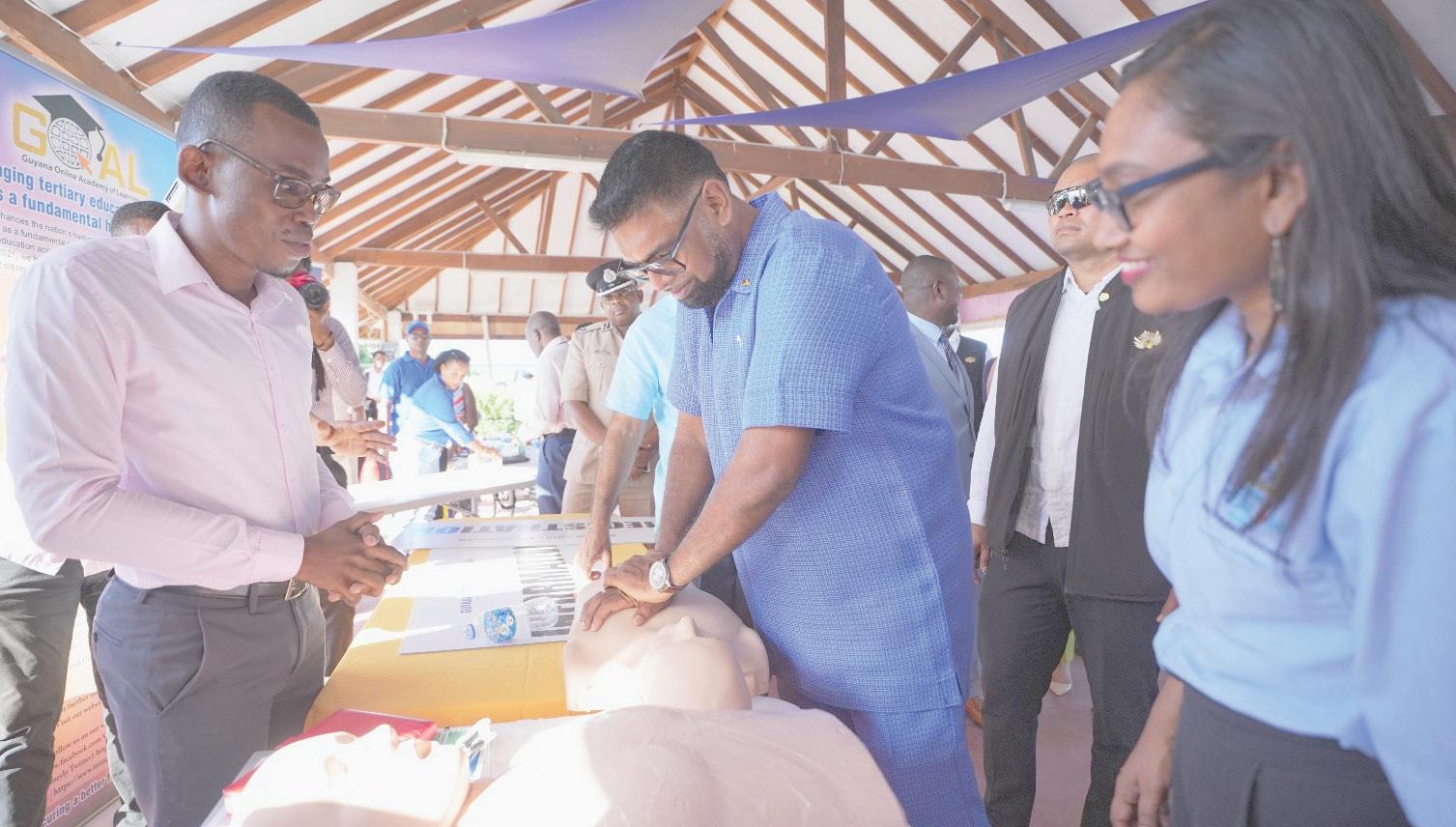
‘Guyana could not support a resolution that does not unequivocally call for an immediate ceasefire’
–– Ambassador Rodrigues-Birkett tells UN while defending country’s abstention in US resolution on Gaza ceasefire
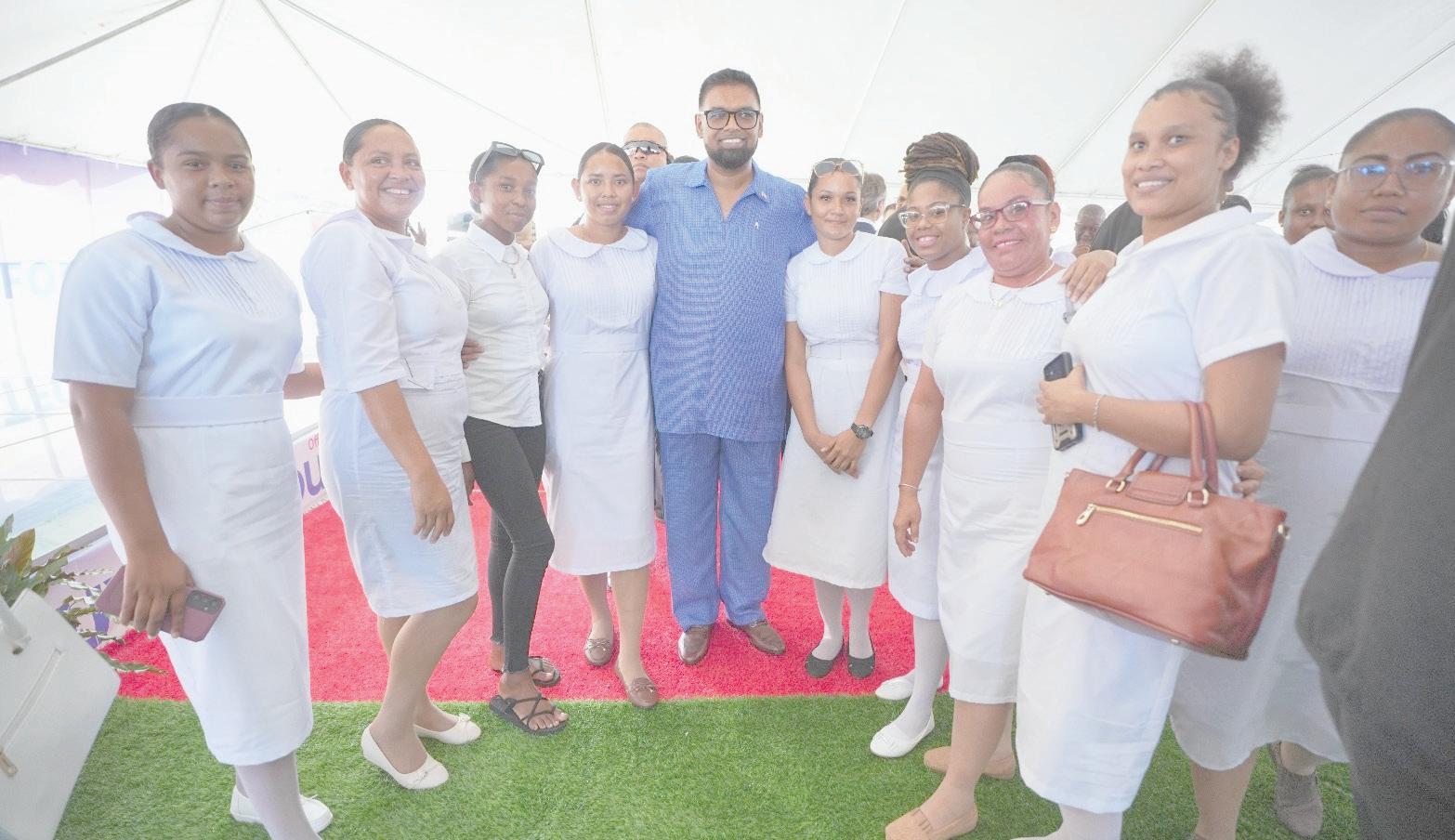
RSS needs to ‘up its game’ to tackle transnational crime, Haiti crisis
–– Benn says; calls for robust, coordinated effort
Full access to potable water across the country by 2025 –– Minister Croal affirms SEE
‘Wishy-washy’ statements are not policies
–– Dr. Jagdeo says; underscores PNC-R’s lack of strategies, experience


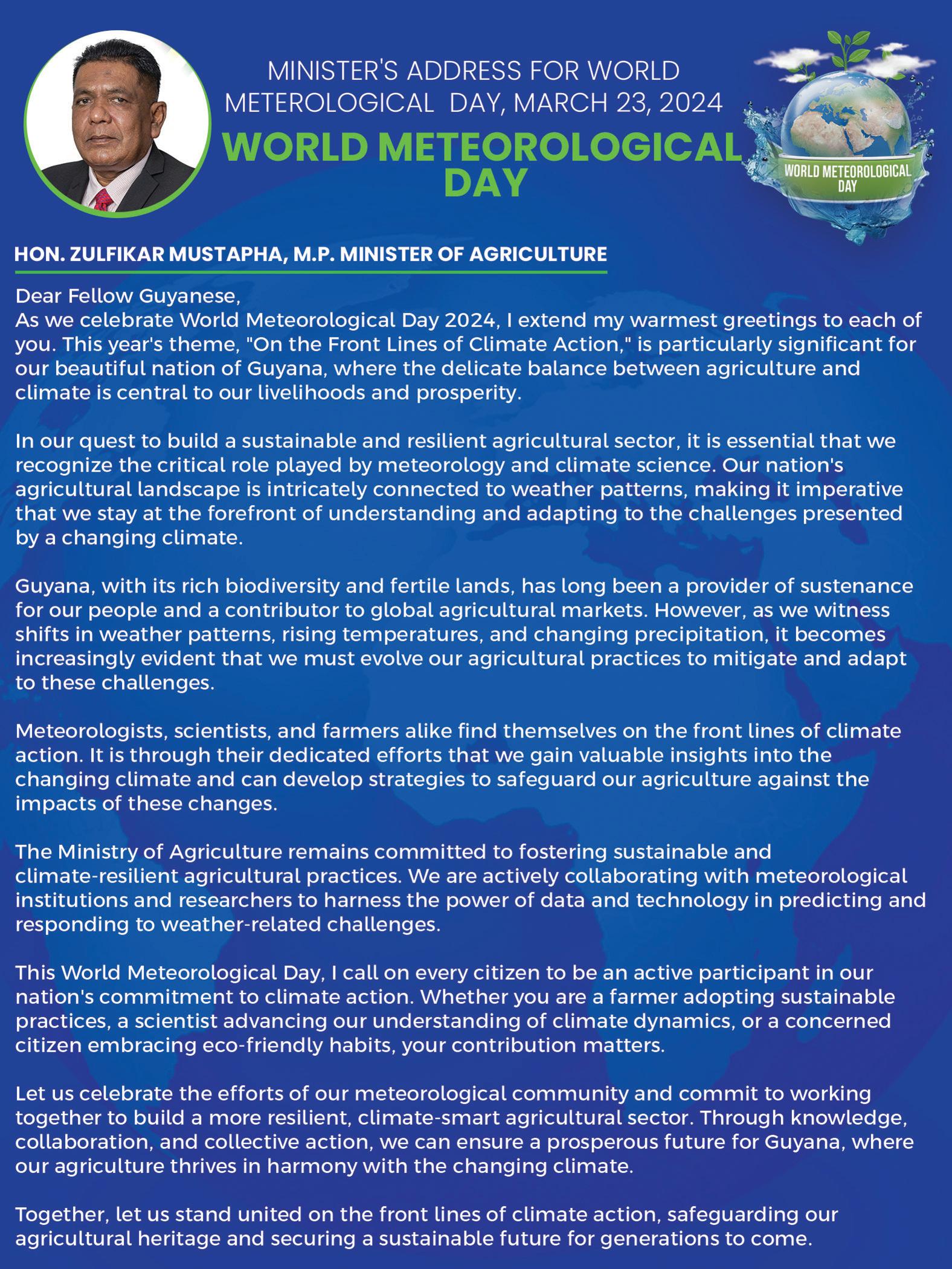

–– President Ali
at launch
Guyana
SINCE education has been proven to be a catalyst in bringing forth socio-economic growth, President Dr Irfaan Ali on Friday proudly remarked that first-class education has been achieved and is now accessible to every single citizen in this country.
During the official launch of the Guyana Coursera Platform, President Ali reflected on how far Guyana has come in developing its human resources.
In his feature address, the President gave some insight into the type of system the People’s Progressive Party/ Civic (PPP/C) Government met with when they assumed office in August, 2020.
He said: “You’ve heard that we came into office at the onset, almost the onset of COVID. With nothing in place, not only was the health sector ill-prepared...to deal with COVID, we did not have a single bed prepared to deal with COVID... but the education sector was also not prepared in any way, shape or form to deal with the consequential effect of COVID.”
Owing to “carefully articulated” policies crafted by the PPP/C administration, this allowed education to be delivered in every corner of the country.
Moreover, according to him, Guyana stands out as one of the few countries globally, that did not have a structural regression in its education system during the novel coronavirus (COVID-19).
As he pointed out that workers even put their health on the line to ensure that this goal was met, President Ali said: “...We as a caring government, as your government, spared no effort or resource to ensure the students of this country and the people of this country remain in a learning environment.”
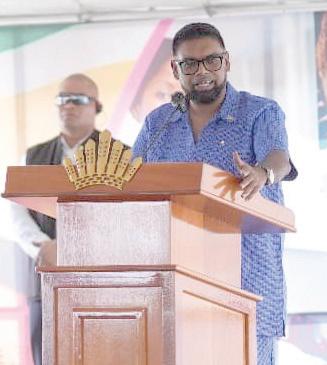
President Ali continued to reflect on how the PPP/C administration has lifted Guyana off of its feet and placed it on the path to prosperity.
He then said: “But let me make this very clear.
Three years ago...Minister Manickchand will recall that we shared a forum, when I said that we will deliver first world, first-class education in this country. But that is not all that we said. We said we will deliver first-class, firstworld education accessible to every citizen of this country.”
“Today, we can celebrate the accomplishment of this vision.”
Even with attempts by detractors of development to cast doubt on this goal, the Head of State said that his government stayed committed to the task.
“I say every day, let our results do the talking, lock away the noise and let the results do the talking,” President Ali told the large crowd.
As he expounded on the plans that will place Guyana on a renowned stage, Dr Ali further related: “We are now looking to position Guyana as the main hub for Latin America and the Caribbean, for Coursera and what we have to offer in this region, to do this. We have to work on building a diversified platform that will cater for all languages and all requirements of the region.”
With an audience largely made up of young people, President Ali seized the opportunity to give them words of encouragement.
“It is okay to dream but your dream can be stop dead or become unrealised [if] the system does not support the [attainment of the] dream. Today in Guyana every citizen can dream of being educated. Every citizen can dream of a second chance, every citizen that dream about empowerment of education and receive that empowerment because of the policy formulation of the government,” he told them.
Putting things into per-
spective of how Guyana has transformed, he noted that 800 students are on the training assistant programme.
While in many societies most of them, according to the President, would be written off because they did not possess five or more Caribbean Secondary Education Certificate (CSEC) subjects, under the PPP/C government these persons are not being left behind.
“...Today through our policies, through the partnership with Coursera, and other
telecommunications.
According to him, in August 2020, Guyana was paying US$950 per megabit of data. However, now Guyana is paying less than US$50 per megabit.
With detractors of development always finding fault, Dr Ali said, with no hesitation, that with Coursera, 72 per cent of the 69,000 persons on the platform study on their cellphone which uses data.
Thus, the ordinary man benefits from the aforemen-
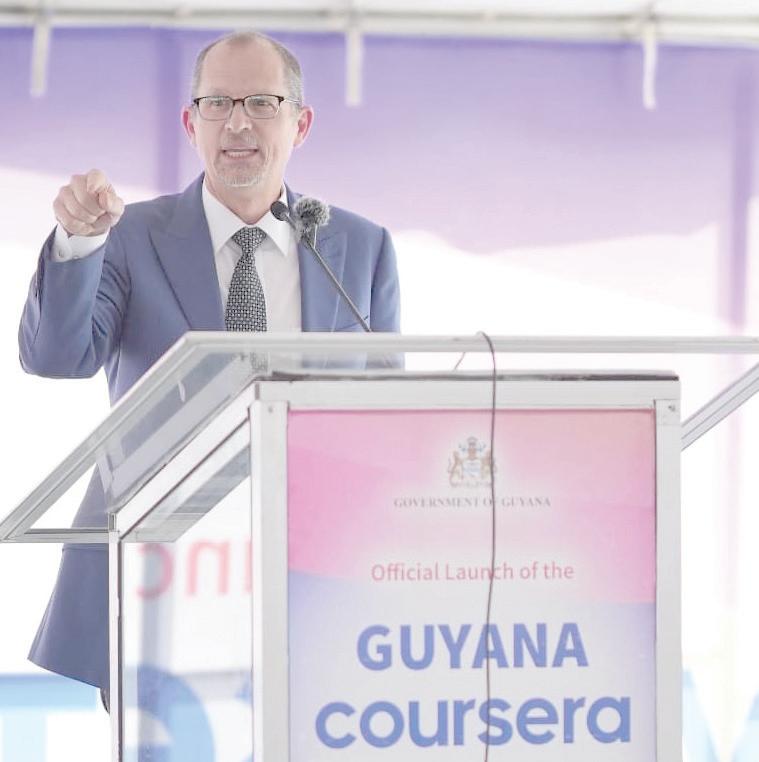
entities, they can now train as a nursing assistant, receive a stipend and be guaranteed a job with a good salary...” Dr Ali said.
Moreover, the President urged the private sector to get on board with the Coursera platform and get all of their employees registered on a programme.
The Head of State said: “Let us go on a national drive to flood the platform by next Friday...Push the government to do more for you.”
Additionally, President Ali highlighted that when the PPP/C came into office, there was still a monopoly on
tioned initiatives within the telecommunication sector.
Meanwhile, the Chief Executive Officer (CEO) of Coursera, Jeff Maggioncalda, said that he noticed Guyana during COVID, when country by country, campuses were closing and he commended President Ali for making a massive investment to develop the citizens.
“It’s exciting for me to be here in Guyana, a country undergoing an incredible economic transformation under the energetic leadership
of President Irfaan Ali. His administration is making a pivotal investment to ensure that the nation’s prosperity is shared by all of its citizens,” he said.
The CEO added that this will be the kind of transformative effort that few countries in the world have ever experienced, where education and skill development are not just priorities, but the very foundation of the nation’s future.
He stated that through their partnership with the Commonwealth of Learning and Guyana’s Ministry of Education, Guyana has set a record among all of the countries on Coursera.
“We saw 15,000 enrollments from Guyanese learners, almost two per cent of the entire population of the country in the first 10 days.
Over 46,000, Guyanese citizens have learned new skills through the programme, earning over 50,000 certificates in job-related fields including business, technology, and data science,” he stated.
Moreover, United States Ambassador to Guyana, Nicole Theriot, commended the Government of Guyana for ensuring that every Guyanese has access to education.
She said: “Guyana is transforming right before our eyes and in order to sustain this trajectory of growth and development, while ensuring inclusion, it’s critical that every Guyanese person is equipped with the knowledge and skills needed to take part in this incredible success story.”
The Ambassador also noted: “Education has always been the cornerstone of progress and development in any society. It is the key that unlocks doors of opportunity and empowers individuals to pursue their dreams. However, in today’s rapidly evolving world, relying solely on traditional methods of education is no longer sufficient.”
WHEN the Guyana Teachers’ Union’s (GTU’s) case against the Education Ministry continued at the Demerara High Court on Friday, Chief Education Officer (CEO), Saddam Hussain maintained that there were political motives behind the nationwide strike action.
The strike, which disrupted the education sector for weeks, had seen teachers across the nation demanding better pay, improved working conditions and increased benefits.
The Guyana Trades Union Congress (GTUC) has been granted permission by Justice Sandil Kissoon to join the case mounted by its member union.
The GTUC’s attorney, Roysdale Forde, SC, questioned Hussain on Friday during cross-examination regarding an open letter he sent to the headteachers and teachers, in which it was mentioned, among other things, that the GTU was unduly influenced by its General Secretary, Coretta McDonald, an Opposition Member of Parliament (MP).
When Forde asked if he had approval from Education Minister Priya Manickchand or the ministry’s Permanent Secretary Shannielle Hoosein-Outar to issue the missive, the CEO replied no and said he was not aware if they knew he had sent it out.
When Forde pressed Hussain for the rationale behind his conviction that the GTU was under the influence of
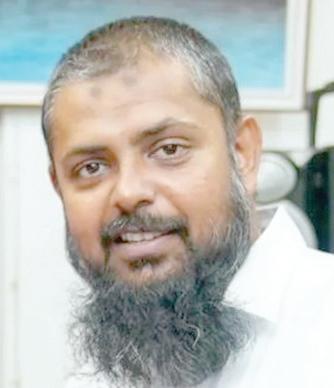
its General Secretary, he responded, “I could think of no other reason why a strike was being called. In 2021, 2022and 2023, pay increases were given and there was no strike.
“So, I do not understand now, in February, why there is a strike when in December [2023] when the pay increase was given. I felt and I still do, that that was the motive of the strike, that it was political in nature,” the senior education official insisted.
When the GTUC’s attorney asked Hussain if he was aware of the Guyana Agricultural and General Workers’ Union (GAWU), he responded in the positive and said he has “heard of” Seepaul Narine, the president of that union and a current member of parliament for the ruling People’s Progressive Party (PPP).
“Do you know that since 2020 to 2023, GAWU on more than one occasions strike [sic] against the government,” Forde questioned Hussain. He answered, “I’ve seen it in the news, yes.”
Justice Kissoon stepped

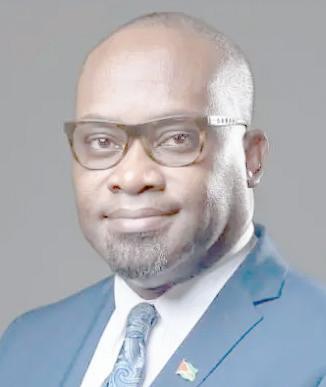
in at this point and questioned Forde about the relevance of his query after objections were raised by attorney Darshan Ramdhani, KC, lawyer for the Attorney General—the lone respondent in the GTU’s application.
Forde then informed the judge that the purpose of his enquiry was to demonstrate that Hussain’s assertion that McDonald had influenced the strike was “unreasonable.”
Hussain was then questioned by the Senior Counsel about whether he thought that GAWU was on strike for political reasons in opposition to the very government that Narine works for.
“I don’t know if they [the strikes] were. I know the circumstances with the Ministry of Education, the Government of Guyana and the GTU. We [GTU and the Education Ministry] were talking…on the 31st January we spoke,” CEO Hussain explained.
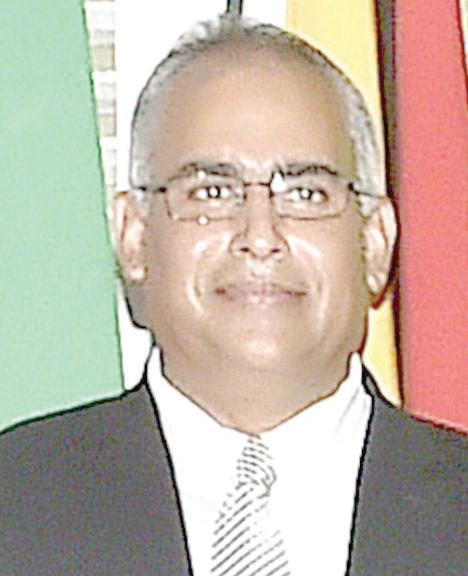
Hussain said that the GTU’s decision to go on strike was “shocking,” because the government had been engaging with the union on matters that were affecting teachers. He made it clear that the GTU should have ended talks with the government if it wanted conciliation and arbitration.
Forde referred Hussain to his Affidavit in Defence, where he stated that he was informed by his lawyers that the Education Ministry’s decision to deduct union dues from teachers’ pay and send them to the GTU was voluntary. “Did you consult with the records on the agency’s relationship between the Ministry of Education and the GTU?” he quizzed Hussain.
After Hussain said “yes,” Forde asked to see the documents.
Hussain replied that he could produce them and requested some time from the court to look for the paperwork in his “very big” office.
“I will make all efforts to try to find it,” the CEO assured Justice Kissoon.

Forde said that the Labour Ministry should have a copy of the document if Hussain is unable to locate it, because the ministry is legally designated as the custodian of certain documents.
Given this, the judge requested that Dhaneshwar Deonarine, the Chief Labour Officer, submit the document. The document is known as the 1983 Agency Agreement.
Once more, Ramdhani expressed concern about the pertinence of Forde’s request.
He said that it was decided that cross-examination would focus on collective bargaining rather than union dues. In response, Forde stated that the subject of union dues is still a “live issue.”
Forde’s viewpoint was supported by Justice Kissoon, who said that the court is being asked to make a decision regarding union dues.
Approximately $2 billion collected from teachers by the GTU is unaccounted for, given the fact that the books of the union have not been audited by the Auditor General’s office over the last 35 years.
The Deeds and Commercial Registries Authority has revealed that the GTU last filed its financial returns 20 years ago. While alluding to these at an earlier court hearing, Attorney General Anil Nandlall, SC, had made it clear that the GTU’s conduct constitutes a criminal offence in respect of every one of its executives.
He said the union has been unable to account for the funds or provide a public explanation for the non-filing
of its yearly returns. As such, he had questioned on what basis should the government continue deducting dues from teachers’ salaries and remitting them to the union.
Attorneys will make oral submissions when the case continues on April 10.
Teachers went on strike on February 5, according to the GTU, because the government would not meet with the union on several issues, including the negotiation of wages, salaries, allowances, and better working conditions for teachers.
This is despite the fact that the Ministry of Education has satisfied more than half of the 41 proposals made by the GTU for better working conditions in just three years.
Government officials have also challenged the union’s claims by highlighting that discussions are ongoing to satisfy the other requests. Since the requirements for conducting a strike have not been satisfied, the government has already declared that the strike action is unlawful.
On March 4, following a court-ordered mediation, the GTU called off the protest and agreed for the striking teachers to return to their classrooms. However, on March 12, talks between the GTU and the Education Ministry broke down again after the ministry upheld the government’s position that discussions surrounding salary increases should be from 2024 onwards.

GIVEN the complex security challenges facing the Caribbean region, Home Affairs Minister Robeson Benn has issued a clarion call for a more robust and coordinated effort to tackle transnational organised crime and address the ongoing crisis in Haiti.
He made this call during his address at the Regional Security System (RSS) Council of Ministers Meeting, which was held on Friday at the Ramada Princess Hotel, Providence, East Bank Demerara under the theme, “Strength through Unity.”
Benn, who is also the outgoing chair of the RSS, stressed the need for the security body to “up its game” in response to evolving challenges, stressing the urgency of enhancing synergy among member states and international partners.
Understanding the gravity of the situation, Benn highlighted the multifaceted nature of transnational organised crime, including drug trafficking, money laundering, gun smuggling, and human trafficking.
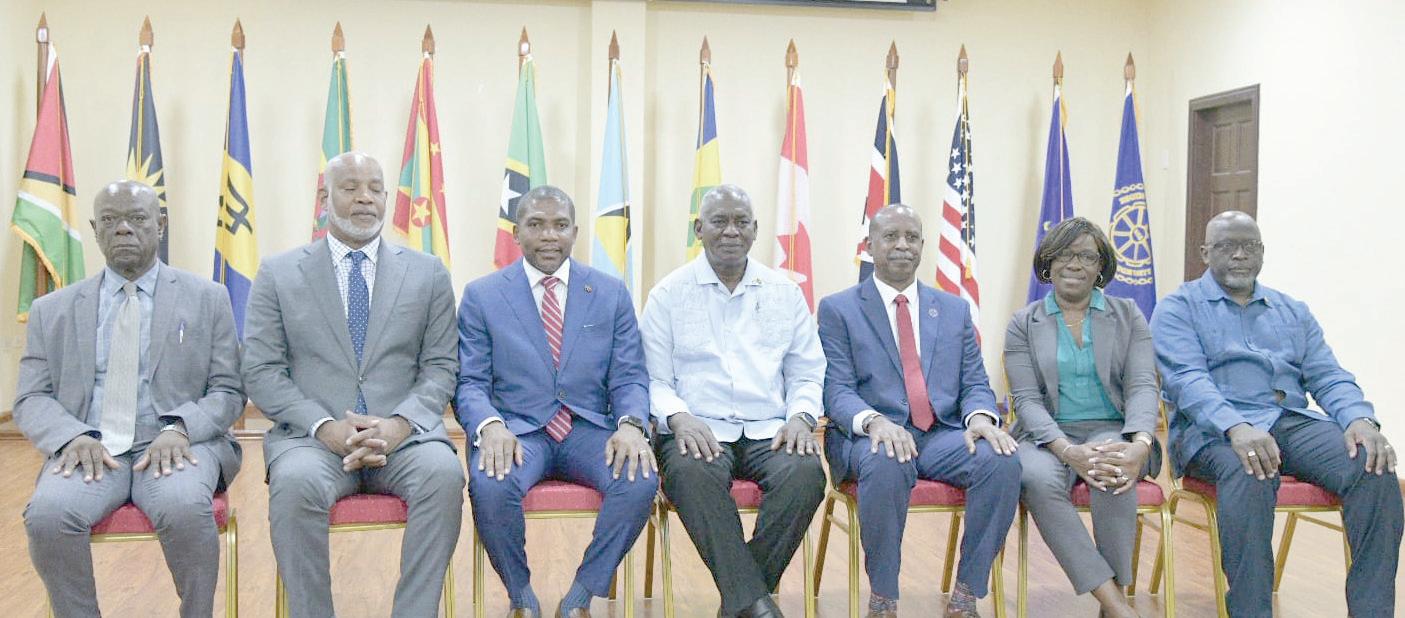
trafficking, money laundering, guns coming into the region, and being used in support of nefarious activities,” Benn said, adding that the “requirements for our total security system now demand a response commensurate with the challenges we face.”
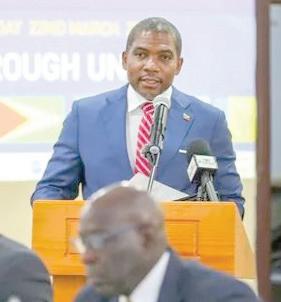
He warned that these criminal activities pose significant threats to regional security and stability, necessitating a comprehensive and proactive approach from the RSS.
“We need to pay attention to the questions of drug
One of the key themes of Benn’s address was the importance of anticipating and adapting to emerging threats. He urged member states to take a longer-term view, looking ahead three years to determine how the RSS will position itself to
confront evolving challenges effectively.
“We must be able to respond to new and evolving challenges…Our discussions must focus on how we will evolve and how we will respond to these challenges,” he said.
Benn also stressed the need for greater collaboration and synergy among RSS member states and international partners.
He called for increased support in areas such as interdiction, prevention, and intelligence sharing, emphasising the critical role of effective communication and coordination in combating transnational crime.
“We must deepen the communication and connection between our security forces and intelligence agencies...We need to find ways to create more synergies between RSS member states and international partners,” he said.
Addressing specific challenges faced by individual territories, Benn emphasised the importance of diversity and gender representation within security forces.
He explained the need for greater involvement of women and minorities at all levels of law enforcement and intelligence agencies, as well as enhanced representation in decision-making processes.
“We need to pay more attention to diversity in our forces at all levels… Our women and children
need to be more respected, protected, and engaged in a proper way in relation to how we develop in the region,” Benn remarked.
HAITI
Benn also touched on the ongoing crisis in Haiti, signalling the need for regional solidarity and support in stabilising the country.
The backdrop of this is a harrowing landscape of suffering and chaos in Haiti. January alone witnessed over 1,100 people killed, injured, or kidnapped.
Gangs, wielding terror through sexual assault, rape, and sheer force, now control 80 per cent of Port-auPrince.
This reign of terror has crippled the nation, blocking essential trade and aid routes, shuttering schools, and severing access to basic necessities such as food, water, healthcare, and electricity.
In 2021, Haitian President Jovenel Moïse was assassinated following the ongoing violence.
The resultant scenario is grim: Half the nation subsists on a single meal per day, and a swelling humanitarian crisis threatens to engulf the entire population, with 3,000,000 (three million) children in dire need of aid.
Earlier this month, during a multi-stakeholder meeting spearheaded by CARICOM’s Chairperson and Guyana’s President, Dr.
the way for the establishment of a new transitional presidential council and inching the nation closer to fresh elections.
Benn expressed concern over the loss of life and the impact of smuggling and trafficking on neighbouring countries, calling for a coordinated response to address the root causes of the crisis.
“I know the RSS is particularly new in age on the questions of Haiti. Ultimately, if we’re not able to help in the stabilisation of Haiti, it will speak to profound failures again.
“We must work together to address the underlying issues and prevent further destabilisation of the region,” he warned.
Benn used the 2020 elections in Guyana which were marred by disputes and delays, with the results not being declared until August 2, 2020.
The elections also attracted international attention, with calls for reform and concerns over electoral fraud and irregularities from the former government.
“We’re so grateful when we had our democratic challenge in Guyana that all our development partners… and regional brothers and sisters stood with us on this question…Because failure at that time, could have perhaps put us, well hopefully not, having the same experiences
that Haiti is now having,” he said.
As such, Benn reiterated the fundamental importance of democracy, security, and development in maintaining peace and stability in the Caribbean.
He stressed the need for a holistic approach to security, encompassing law enforcement, justice reform, and social development.
“Our ultimate goal is to ensure peace, freedom, and development for all. But to achieve this, we must strengthen our security apparatus, enhance collaboration among member states, and address the root causes of transnational crime and instability,” Benn declared.
International partners United States Ambassador to Guyana, Nicole Theriot; British High Commissioner to Guyana Jane Miller and EU Ambassador, René van Nes backed this call.
Similarly, the incoming chairman of the RSS, Dr. Terrance Drew of St. Kitts and Nevis said that it is imperative to seek innovative solutions and forging new partnerships to confront the complex security challenges facing the Caribbean region.
“A destabilised Haiti can never result in a stabilised region. An unstable Haiti will result in an unstable region. None of us by ourselves can meet the task of providing security for each of our member states, we must work together” he said.

IN a world grappling with the profound challenges posed by climate change, Guyana stands out as a beacon of environmental stewardship and innovative policymaking.
The recent commendation from Carlos Felipe Jaramillo, Vice-President of the World Bank for the Latin America and Caribbean Region, underscores the international recognition of Guyana’s exemplary efforts in combating climate change.
At the heart of Guyana’s climate strategy lies the groundbreaking Low-Carbon Development Strategy (LCDS) 2030. This visionary roadmap not only symbolises Guyana’s commitment to addressing climate change but also embodies a tangible blueprint for sustainable development.
By prioritising objectives such as valuing ecosystem services, investing in clean energy, and aligning with global climate
goals, the LCDS sets a precedent for holistic and forward-thinking environmental policy.
Vice-President Jaramillo’s praise for Guyana’s leadership in forest conservation and climate change mitigation reaffirms the country’s pivotal role on the global stage. Through strategic partnerships with entities like the World Bank, Guyana has not only garnered financial support for its climate initiatives but has also become a source of valuable learning experiences for other nations.
Central to Guyana’s climate success story is its recognition of the crucial role that forests play in both national development and global climate action.
Dr. Ashni Singh, Guyana’s Senior Minister in the Office of the President with Responsibility for Finance and the Public Service, aptly highlighted this during dis-
cussions with Vice-President Jaramillo. Guyana’s innovative approach to leveraging its forests for climate services, including the pioneering sale of carbon credits, has not only generated substantial revenue but has also positioned the country as a leader in climate finance mechanisms.
The recent milestone of Guyana’s First Paris Agreement Corresponding Adjustment for ART-Issued TREES Carbon Credits marks yet another triumph in the country’s climate journey. By authorising carbon units for use in international aviation offsetting schemes, Guyana continues to demonstrate its unwavering commitment to global climate action and environmental sustainability.
As the world grapples with the urgent imperative of mitigating climate change, Guyana’s success story serves as both an inspiration and a roadmap for nations
worldwide.
By embracing innovative solutions, forging strategic partnerships, and prioritising environmental stewardship, Guyana exemplifies the transformative power of proactive climate action. It is imperative that the international community not only acknowledges but also learns from Guyana’s pioneering efforts, as we collectively strive towards a more sustainable and resilient future for all.
Further, Guyana’s leadership in addressing climate change, food security, and international peace and security is commendable and deserving of global recognition.
As we confront the myriad challenges facing our planet, let us look to Guyana as a source of inspiration and collaboration. Together, let us work hand in hand with Guyana and other nations to build a brighter, more sustainable future for all.
THE APNU+AFC and other opposition aligned organisations and individuals, such as the Oil and Gas Governance Network (OGGN), have been expressing orgasmic excitement following the reports that surfaced at the 140th Session of the United Nations Human Rights Committee (UN-HRC).
It is not difficult to deduce that the line of questioning at the UN-HRC was nothing more than the opposition’s attempt at the construction of a certain political narrative since there were no credible substantiation of their allegations. Notably, one of the sources of information that informed the line of questioning by the UN-HRC was from the OGGN, inter alia, a report submitted to UN-HRC by the OGGN, which was quite amusing.
In the said report, the OGGN complained to the U-HRC about this author, who consistently challenged the OGGN, as well as expose the intentions, credibility, and legitimacy of that organisation. The complaint was frivolous to begin with, that the state-owned
Guyana Chronicle and the Guyana Times do not publish their responses to this author challenging the OGGN and its members. But they conveniently omitted that the other media houses, namely Kaieteur News and Stabroek News extend unlimited coverage to the OGGN, and that those media entities do not publish any responses/rebuttals from this author to the OGGN as well. In fact, it is the editorial policy of the Kaieteur News to not publish any letters/articles from this author.
The main point to note, however, is that the OGGN nonetheless obtains unlimited coverage in the other media entities. As such, their complaint to the UN-HRC was ludicrous apart from the fact that it was not fully representative of the facts of the matter.
In light of the foregoing, perhaps it is worth resuscitating some of the issues and contentions that this author dealt with in the past, that they have taken issue with to the extent that they felt the need to complain to the UN-HRC.
Legitimacy and credibility issues of the
OGGN Reportedly, the OGGN had written formally to the Government of Guyana (GoG) on several key issues in the oil and gas sphere. The OGGN is also a staunch critic of the government’s stewardship of the sector, including issues of governance and transparency.
Hence, if the OGGN wants the GoG to take it seriously, it is reasonable to expect that the OGGN can withstand scrutiny and prove that it is a legitimate organisation. In order to do so, the following questions were put forward to the directors:
Can the OGGN prove that it has been granted with a 501 (c) (3) status? If it is indeed a 501 (c) (3) status, then the principals of the organization ought to be in a position to furnish the public with the following documentations: -
Can the OGGN publish its 501 (c) (3) determination letter that it obtained from the IRS? All organisations with 501 (c) (3) status are issued with a determination letter by the Internal Revenue Service of the United States Government (IRS).
Can the OGGN publish its Bylaws on its website? It would appear that this is a legal requirement for organizations with 501 (c) (3) status, having perused the websites of other credible and legitimate 501 (c) (3) organisations such as the American Red Cross. See link to website here and their bylaws: https:// www redcross org / about - us / who - we - are / governance html
Can the OGGN state its source of funding?
Can the OGGN state whether it has audited financial statements? Pursuant to the rules governing 501 (c) (3) organisations, its financial information must be publicly accessible. In the case of OGGN, it is not.
Can the OGGN state whether it is an advocacy body or a Think Tank?
What are the requirements to become a member?
How can one become a member?
What is the Governance Structure?
Can the OGGN state whether it is a public charity or a private foundation?
In order for an organisation to be granted the 501 (c) (3) status by the IRS in the United States, it has to adhere to a stringent set of rules and guidelines. Of particular note, one such rule states that a “501 (c) (3) organisation is forbidden from using its activities to influence legislation in a substantial way”. Also, under section 501 (c) (3), an organisation must not be serving any private interests, including the interests of the creator, the creator’s family, shareholders of the organisation, other designated individuals, or other persons controlled by private interests. None of the net earnings of the organisation can be used to benefit any private shareholder or individual; all earnings must be used solely for its advancement of its charitable cause”.
The work conducted by the OGGN are arguably inconsistent with, and/or, have departed from their stated mission. For example, the mission states that their success is measured by improving the lives of some 41 per cent of Guyanese living below the poverty line (cited from a questionable World Bank source).
While it remains unclear whether they have achieved this, if at all, and how; two of the OGGN’s principal directors have described the carbon credit sale as a fraudulent transaction perpetrated by the GoG. Although the carbon credit funding is deployed to tangibly contribute to the development of the indigenous communities, the OGGN strongly lobbied against this.
With respect to the work produced by the OGGN, assuming that they are functioning as a “think tank”, there is no evidence of any scholarly work produced from 2017 to present on the thematic areas that its principal founders have identified
as its main focus. Newspaper letters and opinion pieces are woefully inadequate to be considered scholarly work emanating from such organizations. To substantiate this view, another one of OGGN’s principal director argued that solar energy is cheaper than the gas-to-energy (GTE) project, and that the GoG should abandon the GTE and move straight to renewables. However, the OGGN failed to credibly demonstrate a cost comparison between the two sources, and with scientific evidence to show that solar energy is sufficient for a sustainable supply of the base-load energy requirements.
Furthermore, in the so-called response that the OGGN complained was not published by the Guyana Chronicle and Guyana Times, it was published in the July 29, 2023 editions of the Kaieteur News and Stabroek News. Subsequently, the said response triggered the following responses from this author.
The only matter that the OGGN sought to confirm was that it is a registered organisation, and it has been granted the status of 501 (c) (3) by the IRS. So, on this note, this author had publicly thanked the OGGN directors for their response. Notwithstanding, it was pointed out by this author that the OGGN’s activities remain highly questionable to the extent that the organisation’s work is in violation of the 501 (c) (3) requirements in accordance with the United States tax laws.
To this end, the IRS publication 4220 (Rev.3-2018) Catalog Number 37053T Department of the Treasury Internal Revenue Service, prescribed the disclosure requirements for 501 (c) (3) organisations. The disclosure requirements are stated as follows:
“Public Inspection of Exemption Applications and Returns – Section 501 (c) (3) organisations must make their
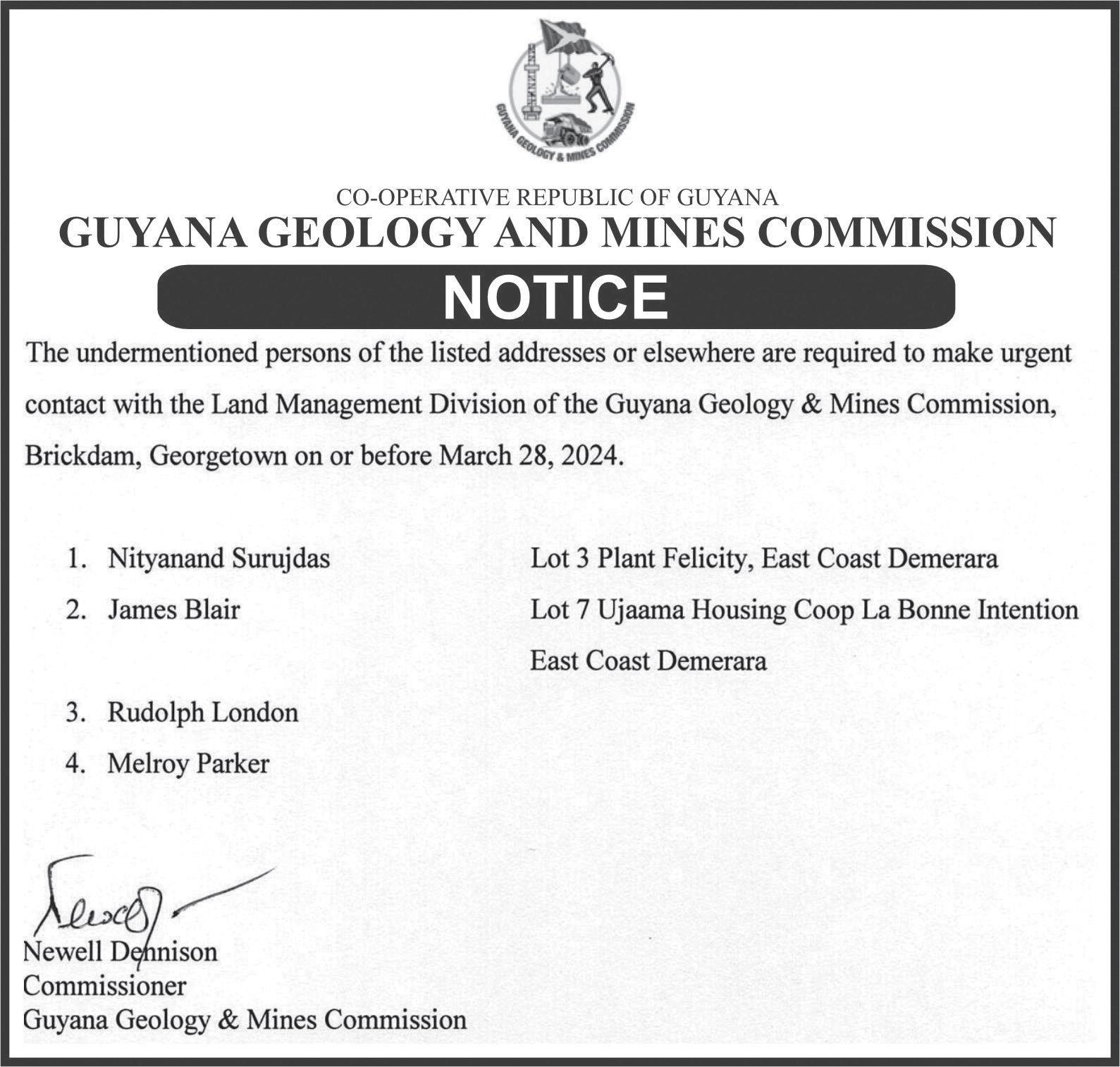
applications (Form 1023 or Form 1023EZ) and the annual returns (Form 990, or Form 990-EZ or Form 990-PF), available to the public for inspection, upon request and without charge (except for a reasonable charge for copying). Each annual return must be made available for a three-year period starting with the filing date of the return. For tax years beginning after August 17, 2006, Section 501 (c) (3) organisations that file unrelated business income tax returns (Form 990-T) must make them available for public inspection. Organisations should not include private information of donors or other individuals, such as a Social Security number, in any information return.”
Moreover, non-profit organisations in the United States are required to make their financial statements available to the public. Form 990 includes a nonprofit’s figures for revenue, expenses, assets, and liabilities, and all 501(c) (3) nonprofits are required to submit Form 990 to the IRS annually. The form also includes the salaries of the directors, officers, and executives of the corporation.
Further to note, nonprofit organisations such as the OGGN are required to make this information available to the public with the idea being that nonprofits are created to serve the public interest and therefore should remain transparent for accountability purposes.
Interestingly, the OGGN directors did not disclose the foregoing information other than to state that they are a registered organisation, and that they are required to file their tax returns. The fact remains that the OGGN is obligated to do more than just state, but to publicly disclose its tax return filings and its financial statements. Additionally, the Guyanese public ought to be afforded the opportunity to scrutinize the OGGN’s Bylaws. Yet, the OGGN’s
Bylaws is not within the public domain, which is a violation of the U.S laws that mandated same to be published on their website, especially since the OGGN anointed itself as an organisation that represents the Guyanese publics’ interest.
The OGGN has arguably departed from their stated mission. How is it that they are educating the Guyanese? By doing what? By seeking to sabotage and block monies earned from the sale of carbon credit? By seeking to stop the production of oil in Guyana (Melinda Janki et.al)? Can the OGGN provide one example of an oil producing country anywhere in the world, where the government successfully managed to renegotiate a Production Sharing Agreement (PSA) that was less than three years into production versus closer to its expiration or after?
It is perplexingly worrying when the OGGN claims that it represents the Guyanese interests, and that its mission is to obtain greater benefit for the Guyanese people. Hitherto, upon examining their work, the ramifications of their lobbying position would actually be detrimental to the economy, and more so the Guyanese people. The OGGN, if it was true to its mission, ought to have been producing technical articles and scholarly work. The reality is such that their work do not meet the minimum standard. The directors produce largely biased opinionated pieces, and none of them whatsoever are supported with any iota of scientific and / or empirical evidences.
Against all of the foregoing, the legitimacy, intentions, purpose, and the mission of the OGGN remain highly questionable.
Yours respectfully,
Joel Bhagwandin
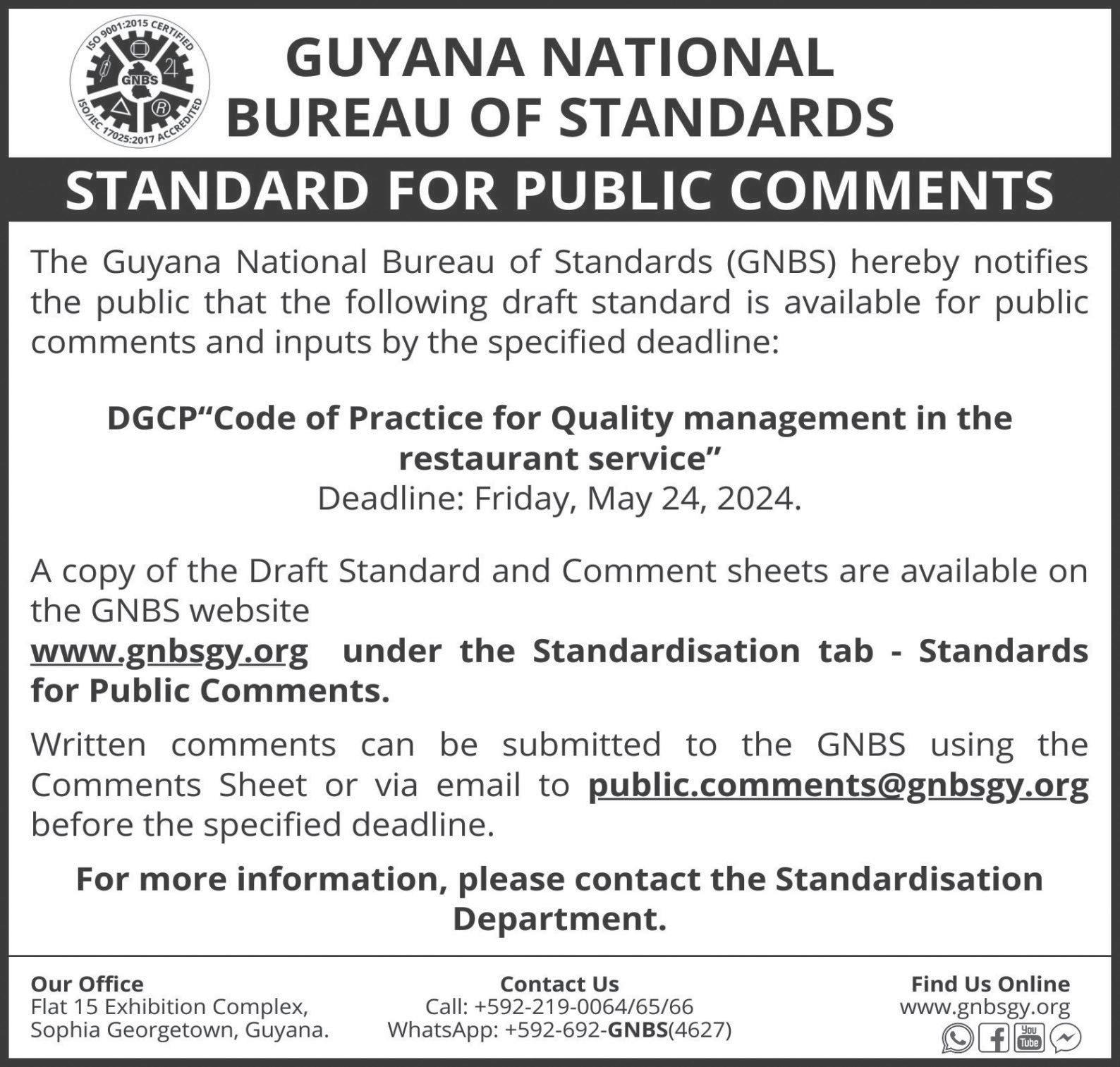
Dear Editor,
THE questioning of the Guyana representative by UN Human Rights Portu-
guese committee member
José Manuel Santos Pais, during which the UN Human Rights raised issues related to the Judiciary

and their independence, demonstrates once more that a little knowledge is a dangerous thing.
On paper Pais certainly makes valid, logical points. One would think that the system allows the President to appoint judges and part-time judges with the advice of the JSC, while this body appoints other legal officers which would lead to a government favouring bias. However, as Minister Teixeira pointed out in her answer, the proof of judicial independence is in the proverbial pudding, i.e. in the actual decisions handed down by the courts over the years.
It is here that Mr. Pais would have benefitted from any modicum of research, for the Guyana Judiciary has demonstrated independence

of thought and action; good, bad, and, outré decisions have gone for and against governments (PPP and APNU+AFC).
So independent is our Judiciary - it often in my opinion, cross the boundaries of their jurisdiction and venture into affairs of independent government agencies and the executive – that it was heartening recently to see Justice Sandil Kissoon explain to attorney Darren Wade that reliefs he was seeking for the Guyana Teachers’ Union were beyond the reach of the court. Had Mr. Pais been diligent he would have seen our Judiciary perform with distinction (with a few exceptions) during our major constitutional crisis 20182020 when David Granger refused to accept his government had fallen to a vote of
confidence.
It boggles the mind when one thinks that a well-funded entity such as the UNCHR has not done due diligence before questioning a country on something as important as its human rights actions and that the US representative parroted nonsense that 90 per cent of mass media was owned by Indo-Guyanese and therefore friendly to the PPP administration. Someone should introduce Mr. Helfer to the internet and allow him a gander at the two Indo-Guyanese owned newspapers and then ask him if he wants that statement to remain on his record, for it would redefine the meaning of the word ‘friendly’. At this point, I am waiting to hear which UNCHR member will ask
about the ‘Russians’ who hacked a pencil and paper election with a supercomputer, for it is clear who the sources are for the information that forms the basis of these questions.
To return to the Judiciary, quite often it is the Caribbean Court of Justice (our apex court) that has to wade through the decisions and provide clarity; one can never forget that our Chancellor (ag) decided that 33 was not the majority of 65, and yet Mr.Pais wonders why there has been no confirmation of her position… an exposure of Pais’ ‘little knowledge’ of Guyanese affairs and the slipshod work of the staff of the UNCHR.
Sincerely,
Robin Singh
HISTORY is pregnant with examples of regional groupings being unfairly accused by distant observers of not responding to crises fast-enough, as with the Caribbean Community (CARICOM) and the Arab League in relation to Haiti and Gaza today.
CARICOM leaders are this weekend still discussing a collective response to another invitation to help arrange and participate in another external intervention in yet another externally-inspired national crisis with regional implications, with (at least) three member-states already having assured they will.
CARICOM is also expected to lead implementation of the plan for rapid deployment of a multinational security mission with all the hallmarks of another rechristened Grenada-style Rescue Mission that yielded an occupying force.
However, Haiti’s long history of external intervention in and control of its internal affairs doesn’t lend to Haitians today automatically supporting another ‘solution’ from outside, when all before have failed – from the first US invasion in 1915 to the more recent 21st Century ones by United Nations (UN) Peacekeeping Forces (PKFs) and the externally-engineered coups, in between.
The UN Security Council is permanently paralysed on both Gaza and Haiti, permanent members with veto powers exercising their power according to their individual positions.
Progress is also stalled in both cases by different interpretations of the origins of the respective conflicts.
The Israel-Palestine war didn’t start on October 7, 2023, but 75 years earlier (in 1948); and Haiti’s latest fighting didn’t start on February 29, 2024, but 233 years earlier (in 1791).
On March 22, the UN Security Council rejected a US-sponsored resolution calling for ‘an immediate ceasefire’ in Gaza.
The US claimed Russia and China vetoed because ‘they didn’t want to condemn Hamas’ October 7 attack on Israel’, but Beijing and Moscow said the US resolution took Israel’s side, as it tied the call for ‘an immediate ceasefire’ to ‘an immediate release of captives’ -- Israel’s main negotiating point.
CARICOM and Arab nations have been called upon to break diplomatic ties with Israel, which unrealistic calls have been understandably ignored.
CARICOM has indeed been more mindful about Haiti in 2024 than Grenada in 1983, but it has to work
within the ambits of the expectations of those paying the bills and not ruling out their respective strategic security, economic and geopolitical interests.
The UN, Canada, France, UK and US, overseas-based Haitians and selected entities at home, were all involved in hammering-out and shaping the final proposed foreign intervention, so it’s not CARICOM alone deciding.
Besides, Haiti has been treated more as a distant-cousin or adopted brother by its regional neighbours, membership of CARICOM having traditionally been more ‘at arm’s length’ than from a ten-foot pole -- always more distant than close.
Haiti and the Dominican Republic have also been historically referred to by Caribbean citizens as two ‘non-English-speaking’ Caribbean nations sharing the same island, but each with distant ties with the regional grouping of independent ex-European colonies.
Caribbean people largely appreciate Haitian art and music, but absolutely fear Voodoo, regarding it as a Haitian curse instead of the unique African-oriented religion its people share with Benin.
Unfortunately, almost all involved in the sensitive political and diplomatic negotiations on behalf of CARICOM and/or individual member-states have adopted the imperial narrative of describing Haiti as ‘a failed state’, a ‘dirt-poor’ nation of Black imbeciles unable to think or act for themselves and therefore always in need of external ‘sorrow’, ‘help’ or ‘assistance’.
CARICOM cannot please all parties without being accused of cooperation or complicity, helping or hindering, according to who’s pointing the fingers.
But the proposed solution expected to be activated this weekend excludes main actors in Haiti, especially the paramilitary groups and parties that haven’t accepted it -- and who can surely prevent its implementation.
The controversial provisional presidential council also likely to be appointed this weekend will also naturally attract the wrath of the allied paramilitary groups.
Caribbean activists – at home and abroad -- freely roll-and-tumble their intellectual dices and grumble from safe distances, but what’s playing-out in Haiti today is nothing short of do-or-die for Haitian masses caught (like Gazans) in the crossfires.
No regional or international group has a readily-workable solution to Haiti’s continuing problems,
all exacerbated historically by external intervention – from France’s demand in 1825 that Haiti pay150 million French gold francs for its independence (that it took over 220 years to pay), to the first US invasion in 1915 and all subsequent ones.
Those behind yet another external intervention continue to evade the grounded reality that there will be no peaceful solution in Haiti today without bringing all sides to the table, on a proposal so exclusionary as to have been and deemed Dead-on-Arrival by the excluded.
St. Vincent & The Grenadines was the first CARICOM nation to make its voice heard loudly on Gaza, Belize initiated actions to suspend trade with Israel and Guyana donated funds towards humanitarian aid for Palestinian victims.
Brazil, Bolivia, Cuba, Colombia, Venezuela and other Latin American states
were also among the first nations of the global South to register strong protests against Israel.
CARICOM can now also revisit its positive experiences of working jointly with its neighbours in the Community of Latin American and Caribbean States (CELAC) on the Guyana-Venezuela issue.
It can respond positively to the recent call by Honduran President Xiamora Castro – CELAC’S current
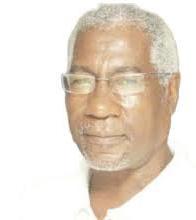
President Temporare -- to ensure that no armed intervention is enforced on a Haitian population already losing too many lives and with over a million people already experiencing acute food insecurity.
CARICOM’s limited capacity must be admitted by those who behave like they’re in the business of inventing and prescribing home-made remedies for revolutions, protracted or explosive national protes-
tations close and far, by people they haughtily consider unable to care for themselves.
Instead, the new crusaders may consider starting anew, by acknowledging the way Guyana, as Chair of CARICOM and President of the UN General Assembly, has played its part in handling the discussions at the leadership level of both bodies, in respect of Gaza and Haiti.
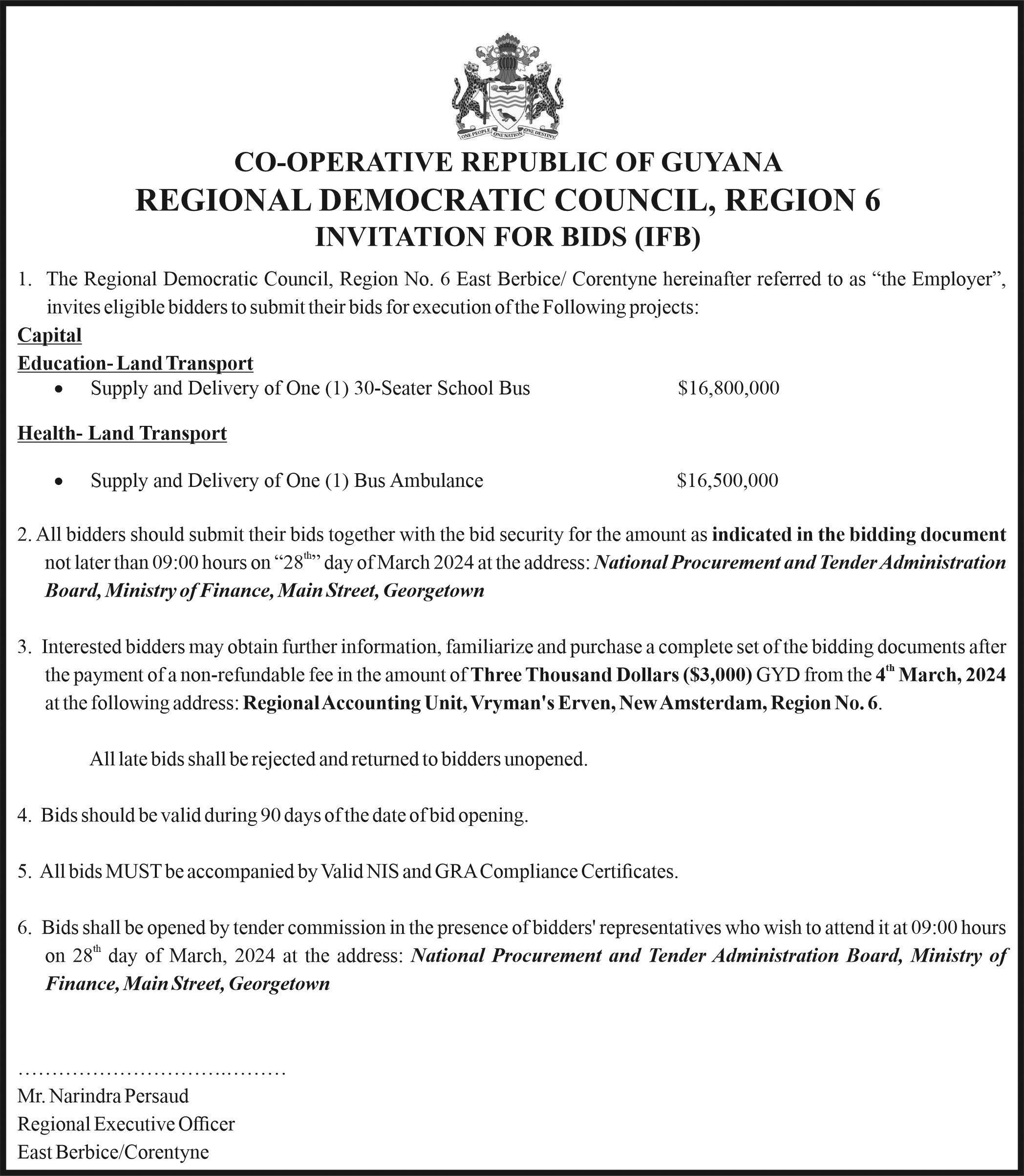
FORMER tennis great, John McEnroe, does not want a Saudi tennis tournament in the category of those that currently exist.
He cites two reasons, the “big money push’ into tennis by the Saudis and player fatigue.
It is laughable that an American
can even attempt to use the words, “big money” when, since the end of the Second World War in 1945, the Americans have used big money to dominate not only world sports but the world in itself.
The Saudis are using “big money” to break into world football and they
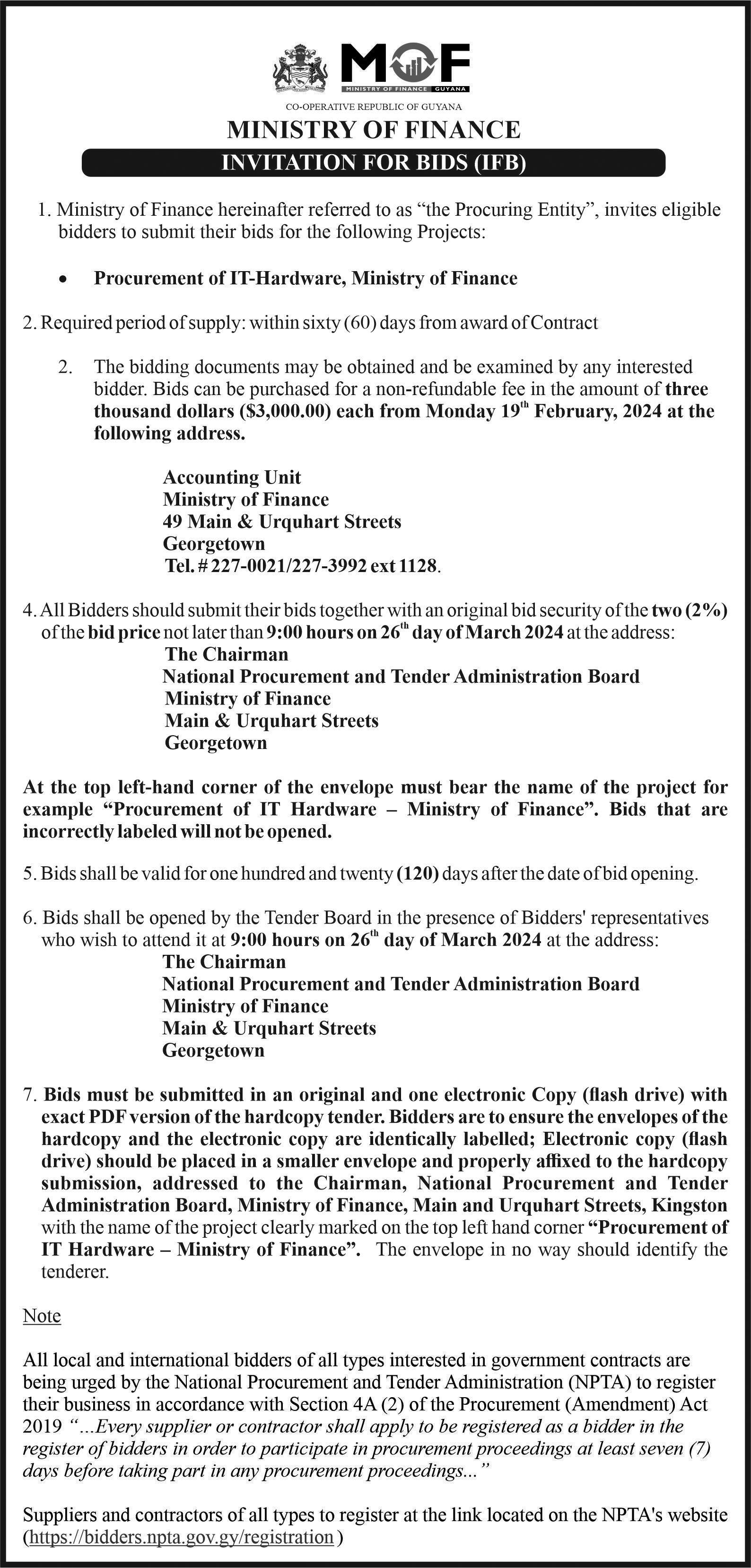

will expand their influence by the continuation of paying attractive sums to global star players. The Indians have used “big money” to climb to the top of the cricketing world. The advancements of the Saudis and Indians in global sports is a movement in a direction that the Japanese started decades ago and that the Chinese have followed.
Japan used its wealth to compete with the rich industrial nations in the automobile industry. Today that industry is ahead of car manufacturing in Europe and the US. It is only a question of time before the Chinese and Indians stake a claim to the car industry world-wide. It is an enigma why China and India are not exporting vehicles world-wide when they can make vehicles on par with those in Europe, the US and Japan.
Japan extended its global reach by entering the movie and music business in the US under the aegis of Sony. China and the Middle East have emulated the Japanese and now have substantial investments around the world. Whenever Western domination is threatened, you hear voices similar to the echo of John McEnroe.
Make no mistake; the huge Western denunciation of the Qatar World Cup had more to do with fear of the shifting of the world order rather than human rights. It was the first time, a World Cup was held in a small country outside the wealthy nations of the world.
When the cry of human rights reached its crescendo, here is what the chief of FIFA, Gianno Infantino said: “I’m European. For what we Europeans have been doing around the world in the last 3,000 years, we should be apologising for the next 3,000 years before starting to give moral lessons to people,”
For too long, the West has dominated more than 7 billion people that live outside of Western culture and the non-Western world has been too slow to project its history and culture and take its rightful place in modern civilization. The world has an Australian Open, Wimbledon, a French Open and a US Open, so why not a Saudi Open if the Saudis can finance it?
We have the latest Western penetration of the Third World in the form of the Varieties of Democracy Institute (V-Dem) at the University of Gottenburg in Sweden. This a small university in Europe that has decided to rank all the countries in the world according to democratic governance. Each year it publishes a report ranking countries that are more and less democratic.
The V-Dem Institute is one of the most mysterious in the world. Depending on how you look at their work, you can deem it the most barefaced group of people in the world. Each year, European countries or Western countries top the list including countries that are way behind the CARICOM nations.
What criteria these people use and how they apply the criteria only they know but anyone who studies politics would know that their list is Eurocentric and an embarrassment to the study of comparative politics. For 2024, as usual, Western countries top the list. What is more democratic about Australia, which is number one, than Guyana and the rest of the Caribbean? Australia should be nowhere on the list muchless on the top because it is in constant violation of international law on refugees.
Israel practises apartheid, has been committing Nazi like atrocities on the Palestinians for over 50 years, and is one of the world’s leading violators of international law and Israel is number 26 out of a list of 182. Italy, one of the most shambolic countries in the world is at 27, above some of the top democracies of the world including the UK. There are academics who actually quote from these annual disgraceful reports. There isn’t one academic at the V-Dem Institute that can tell any academic in the Third World why Australia is number one.
Then we have Transparency International based in Germany. Read its annual report and all the Western countries are on the top of the list and the Third World countries are at the bottom.
What Saudi Arabia is doing is what the non-western world should have done decades ago.
WHILE blasting the opposition for their “wishywashy” statements they disguise as policies, People’s Progressive Party (PPP) General Secretary Dr Bharrat Jagdeo has stated that in order to have a policy debate, one first needs to have strategies along with the experience.
At the time, the PPP General Secretary was responding to Opposition Leader Aubrey Norton, who said that he has not replied to the PPP’s invitation to have a policy debate.
Despite the attempts by Norton to flex his proverbial muscles by stating that the opposition has a development plan, Dr Jagdeo, during his weekly press conference, spared no effort to prove that apart from their rhetoric, these opposition operatives lack policy-making experience.
“Now to have a policy debate, you have to have a policy and they [PNC-R] don’t have policies on any of these issues. You think the wishywashy kind of statements by Norton can translate into policies?” the PPP General Secretary firmly asked.
Dr Jagdeo then went on to say: “Even if you want to stretch your imagination to the limit, you can’t in any fashion characterise the ranting and the nonsense that he speaks as policies.”
The PPP General Secretary also highlighted that
some of the opposition members present at their press conferences never even held senior positions in government, but were juniors.
Moreover, Dr Jagdeo pointed out that his party has its policies outlined in several documents such as the National Development Strategy (NDS).
In 1993, the then President, Dr Cheddi Jagan, approached the Carter Centre seeking assistance in the formulation of his brainchild, the NDS. The Carter Centre agreed to provide both financial and technical assistance in the preparation of a first draft, which was published in 1996.
Notably, the main opposition party objected to the document being put forward as a national strategy.
The NDS was developed to eliminate poverty, diversify the economy, bring forth economic growth, achieve geographical unity, etc.
Turning his attention to the opposition’s failure to carry out its promises, Dr Jagdeo said: “Who would believe anything that APNU promises now? You recall they promised a lot...”
Reflecting on the APNU+AFC 2015 manifesto, which included a number of promises, the PPP General Secretary highlighted that barely any were fulfilled
within their five-year stint in office.
To put things into perspective, on the subject of job creation, in 2017 the former APNU+AFC coalition government had announced the closure of several sugar estates across the country, leaving thousands of persons without jobs or sources of income. The move saw four sugar estates being closed and over 7,000 sugar workers losing their jobs.
However, with Guyana’s economy back on its feet and citizens being able to embrace its abundant benefits, since assuming office in 2020, more than 50,000 people have become employed under the PPP/C government.
Additionally, since the PPP/C assumed office, tax reforms have formed part of the government’s wider agenda to improve the quality of life in Guyana and address immediate economic challenges that affect Guyanese.
These include the removal of VAT from water and electricity, building and construction materials, basic food items and household necessities, with which the previous APNU+AFC government had burdened Guyanese.
While continuing to flay the opposition, Dr Jagdeo pointed out the change in rhetoric that often occurs in the PNC-R camp.
“This is what I’m telling

you about, no coherence in thinking, in strategy, in policy. They go on a weekly basis to the press conference and they wing it,” the PPP General Secretary said, while referencing two news articles which showed the change in tune by the opposition.
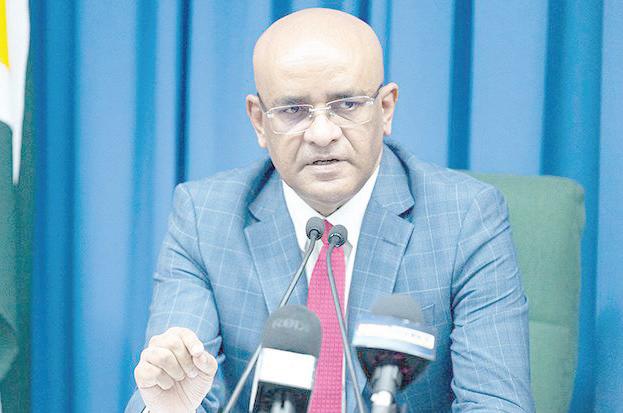
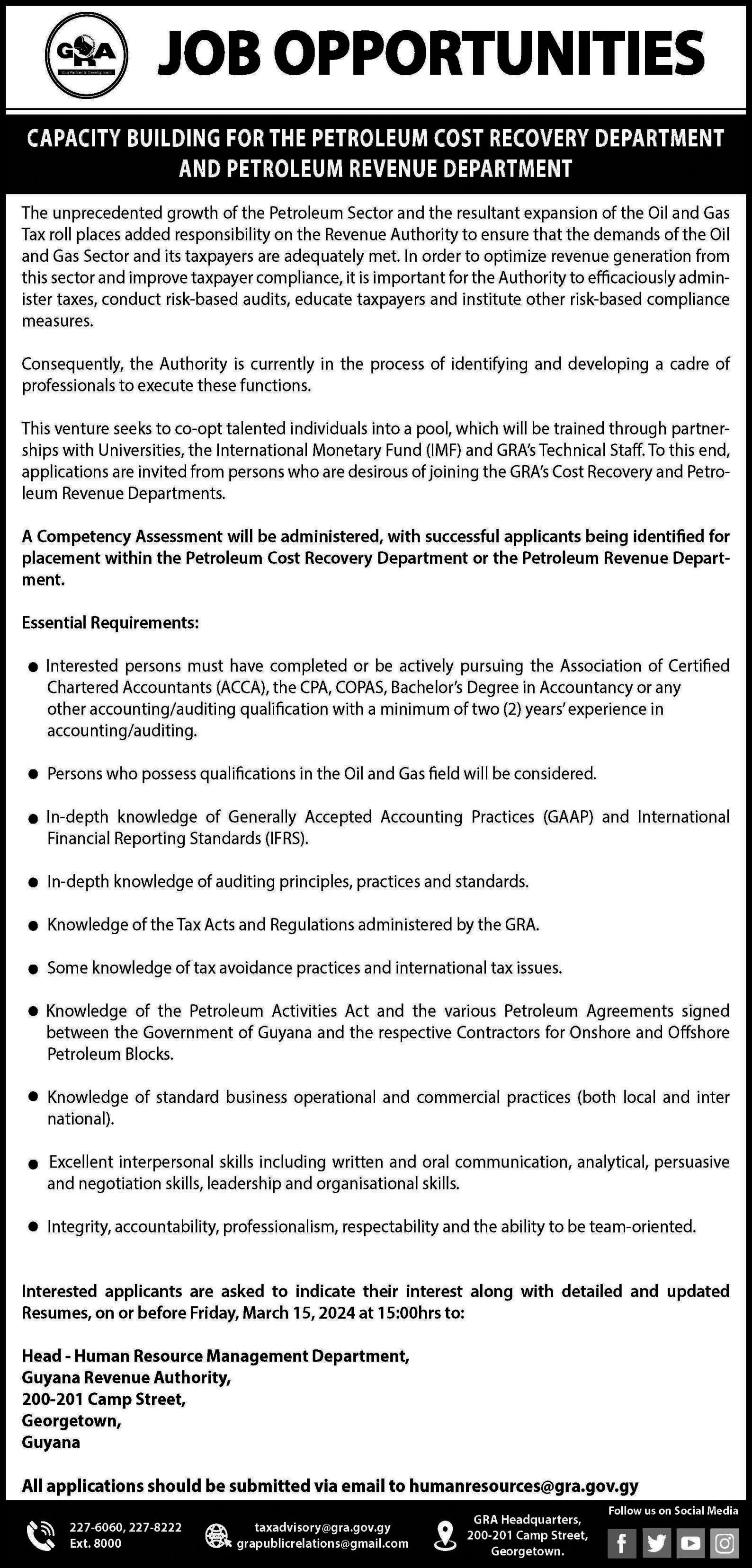
THE following is the full statement issued by the Ministry of Foreign Affairs and International Co-operation on Friday:
“THE Government of the Cooperative Republic of Guyana is gravely concerned over the adoption of a law by the Venezuelan National Assembly declaring the Essequibo region of Guyana, which constitutes more than two thirds of its national territory, to be a constituent part of Venezuela.
“This is in flagrant violation of Guyana’s sovereignty and territorial integrity and is in breach of the fundamental principles of international law enshrined in the United Nations Charter.
It is also an egregious violation of the Order on provisional measures issued by the international Court of Justice on December 1, 2023, and it is a violation of the Argyle Declaration of
December 14, 2023, agreed to by the leaders of CARICOM and Brazil, the representative of the United Nations Secretary-General and by the Presidents of Guyana and Venezuela.
“Guyana remains committed to peace on its borders and in the region. It will not allow its sovereignty and territorial territory to be usurped. Guyana will exert all of its efforts under international law to ensure that
its sovereignty and territorial integrity remain intact.
“Guyana calls on the international community to uphold the rule of law by rejecting Venezuela’s illegal expansionism and by insisting that Venezuela revert to the International Court of Justice which has before it the case for a full and final resolution of the controversy over the land border between the two countries.”

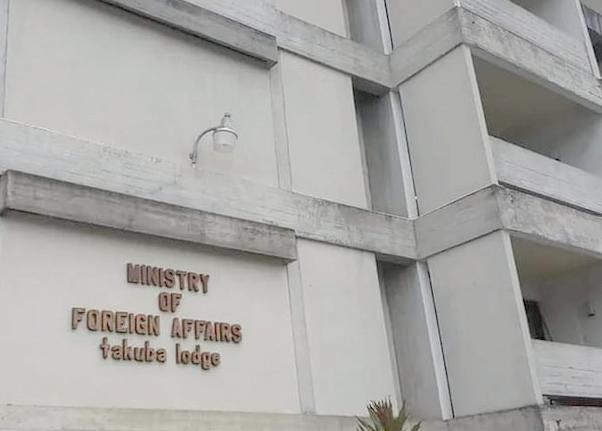
THE Guyana Defence Force (GDF) said on Friday that it wishes to address a recent article published in a local daily regarding an incident on an island in the Cuyuni River at Eteringbang.
“On Wednesday, March 20, 2024, at approximately 11:50 hours, during an administrative journey, ranks of the GDF and the Venezuelan Army had an encounter. The incident attracted the intervention of both the GDF and Venezuelan Commanders who arrived at the scene shortly thereafter. At no time during this interaction were our ranks dispossessed of items or returned items.

The matter was addressed amicably and ended with a shake-of-hands by both Commanders.”
“The Guyana Defence Force categorically refutes any inference that the photograph accompanying the news report is related to the incident alluded to at Eteringbang. We urge the media to exercise diligence and accuracy in selecting visual content to avoid misrepresentation,” a release said.
It added that the GDF emphasises the importance of accurate reporting, especially concerning matters of national security, and urges the media to verify information before dissemination to ensure authenticity and avoid unnecessary alarm or misinformation.
The GDF added that it is important to note also, that given the border case before the International Court of Justice (ICJ), incidents on the border between Guyana and Venezuela and involving military ranks should be reported accurately to deescalate any potential for conflict.

A NEW Atlantic Council report, “Not without her: A roadmap for gender equality and Caribbean prosperity”, has been launched, providing clear steps for Caribbean policymakers and global partners to address regional gender challenges.
According to a press release, this report comes off the heels of an event, which was hosted in partnership with UN Women Multi-Country Office Caribbean for International Women’s Day which was observed earlier in the month, to celebrate the progress made toward gender equality and as part of an annual call for action to address the challenges women still face around the world.
Caribbean countries, including Guyana, have made important strides to improve the political representation of women, but many still face some of the highest rates of violence worldwide, the release said, adding that the report is an almost year-long effort by the nonpartisan Atlantic Council to highlight and address social norms that widen gender gaps in the Caribbean, including gender-based violence, limited economic empowerment and political influence, and the disproportionate effects women and girls face.

The team conducted on-the-ground surveys and visits to Jamaica and Guyana to work hand-in-hand with policymakers, civil society leaders, and the private sector.
“The full inclusion of women and girls into society and their effective participation in it will only be possible when social norms and preconceived notions of gender roles are challenged.
Gender-based violence, the lack of opportunities for women’s economic and political participation, and the exacerbated vulnerabilities of women and girls to the effects of climate change require immediate attention and action. Gender inequities hinder not only the inclusion of women and girls into society, but the full socioeconomic potential of the region.
That is why both men and women must advocate for this inclusion; it is not a matter of gender, but one of development and prosperity for all,” Valentina Sader, deputy director, Adrienne Arsht Latin America Centre, Atlantic Council, was quoted as saying.
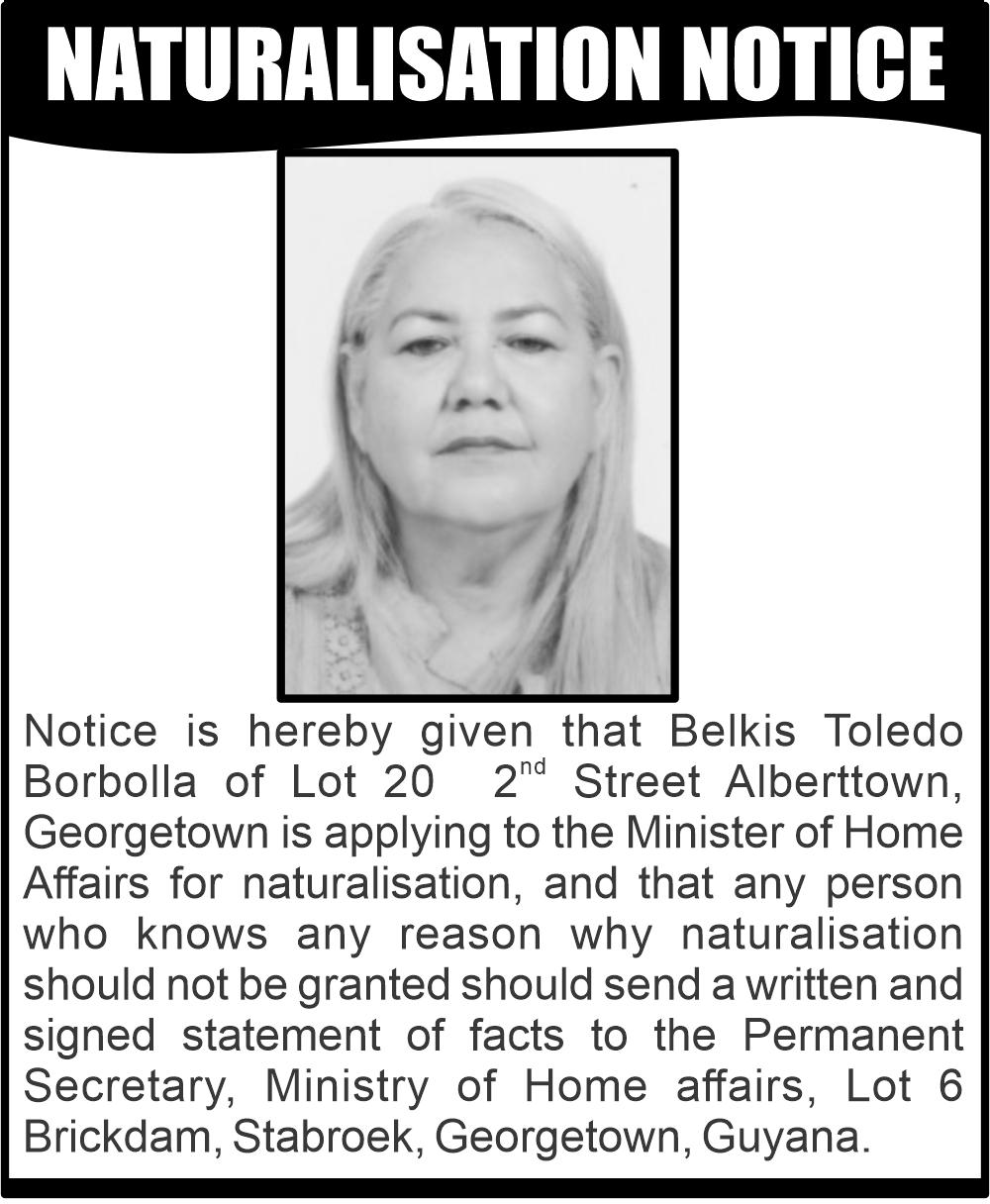

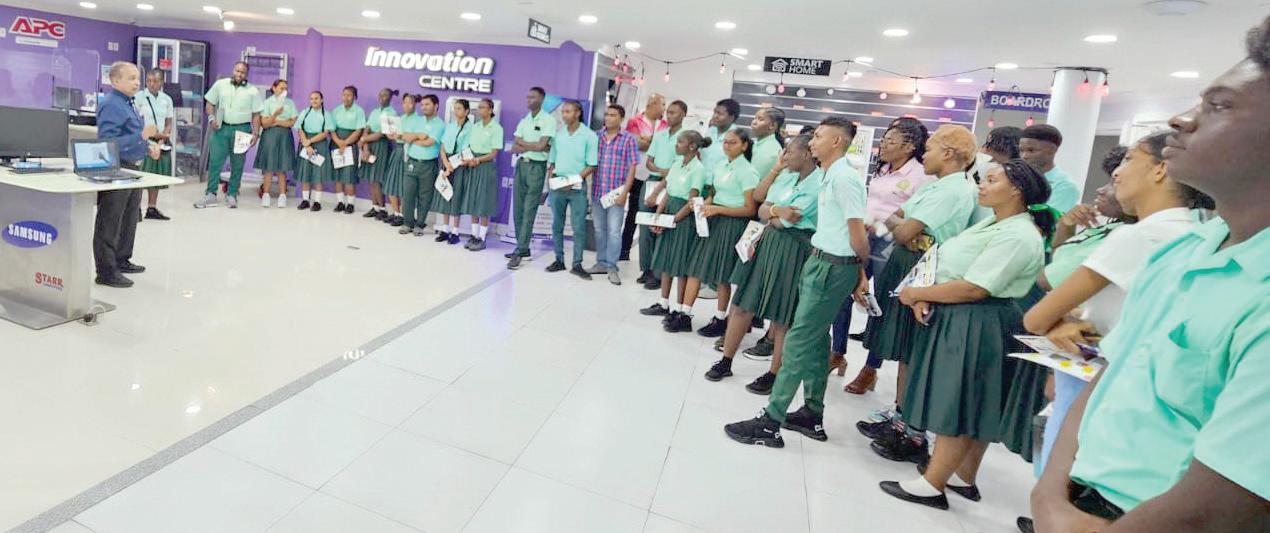
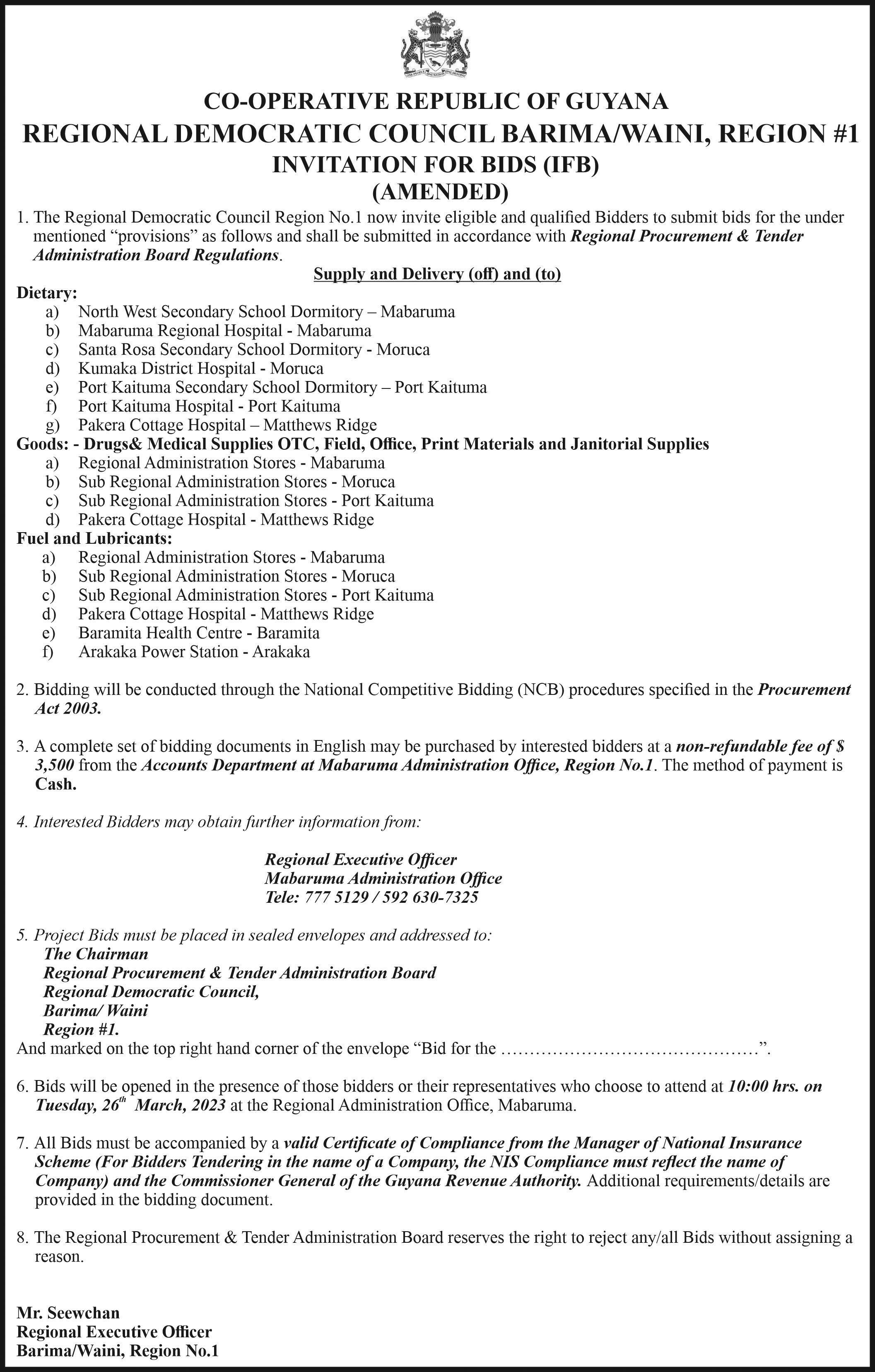
New Amsterdam Technical Institute students focus on various advice and explanations on technology from President of Starr Computers, Mike Mohan IN an effort to expose students to the latest advancements in technology, Starr Computers welcomed thirty-eight information technology (IT) students and five lecturers from the New Amsterdam Technical Institute for a recent field trip at its Brickdam Office.
The event, aimed at exploring emerging technologies and their implications, featured presentations, demonstrations, and discussions on various topics, including robotics, automation, artificial intelligence (AI), and the changing landscape of international business operations.
One of the highlights of the event was a presentation by Mike Mohan, President of Star Computers, who, unexpectedly, arrived in Guyana shortly before the event.
Mohan’s presentation focused on the evolution of McDonald’s business model, tracing its transformation from a traditional fast-food chain to a high-tech powerhouse.
He underscored how McDonald’s, once reliant on manual labour and paper-based processes, now employs cutting-edge technologies such as mobile apps, self-service kiosks, and robotic kitchen assistants to streamline operations and enhance customer experience.
Mohan’s presentation sparked a thought-provoking discussion among the students, raising questions about the potential implications of such technological advancements on developing countries.
Will other international companies follow in McDonald’s footsteps, adopting similar high-tech solutions to cut costs and boost efficiency? And what impact will this shift towards automation have on employment opportunities and the workforce of the future?
Addressing those concerns, Mohan encouraged the students to view those technological advancements as opportunities rather than threats.
He emphasised the importance of STEM (Science, Technology, Engineering, and Mathematics) and STEAM (Science, Technology, Engineering, Agriculture, and Mathematics) education in preparing for the jobs of tomorrow and highlighted the availability of government scholarships in Guyana to support students in pursuing their educational goals.
Furthermore, Mohan announced the launch of Starr Computers new POS/Mobility Department, aimed at assisting local businesses in adopting innovative solutions to improve efficiency and competitiveness across various industries.
He urged businesses to embrace these advancements and stay ahead of the curve to remain competitive in the ever-evolving global market.
Throughout the field trip, students had the opportunity to engage with a wide range of technologies, including Samsung Experience Center, Point of Sales/ Mobility product lines, telecommunications services, and smart home devices.
Starr Computers plans to continue offering such educational opportunities to more institutions, allowing students to gain hands-on experience with the latest technologies and prepare for the challenges and opportunities of the digital age.
As the world continues to embrace high-tech solutions, events like those serve as valuable platforms for fostering dialogue, knowledge sharing, and collaboration between industry experts and the next generation of technologists, ensuring a bright and promising future for all.
REFUSING to tip-toe around the grave situation that is occurring in Gaza, Guyana’s Permanent Representative to the United Nations (UN), Ambassador Carolyn Rodrigues-Birkett on Friday defended Guyana’s position to abstain from voting on the United States (US)-sponsored Security Council resolution on Gaza.
Making it clear that the resolution does not call for an immediate ceasefire, Rodrigues-Birkett said: “Guyana could not support a resolution that does not unequivocally call for an immediate ceasefire.
Nearly 32,000 persons have been killed in Gaza since October 7, the majority of whom are women and children. More than 74,000 have been maimed. Initial UN assessments have concluded that it would take years to clear 23 million tonnes of rubble and unexploded weapons scattered across Gaza.”
The Ambassador did not mince her words while noting that after five months of war in Gaza, and the horrific attacks of October 7, 2023, the Council has still not been able to adopt a text that addresses all the dimensions of the conflict in a manner that impacts the situation on the ground, and upholds the Rule of Law.
“While Guyana welcomed the US initiative to develop a draft resolution, and the transparency with which the negotiations were conducted, we are of the view that, given the length of time spent on those negotiations, and certain positions consistently expressed by several delegations, the draft could have better reflected the broad-based feedback,” she said.
A US-drafted resolution, urging but not demanding a cease-fire in Israel’s ongoing attack on Gaza, was not approved by
the UN Security Council. Eleven votes in support; three against from China, Algeria, and Russia, and one abstention from Guyana were cast on the text that was presented to the Council on Friday.
Furthermore, the Ambassador stated that the demand for a ceasefire should not be linked to or conditioned on the release of hostages.
“The taking of hostages is strictly prohibited under international law, and their release must be unconditional. Guyana reiterates its call for the immediate and unconditional release of all hostages. Two wrongs cannot make a right, and the Palestinian people should not be collectively punished, and themselves held hostage for the crime of others,” she stated.
Rodrigues-Birkett, speaking more about the draft, said that while it included the condemnation of Hamas for the October 7 attacks, and demands the immediate granting of humanitarian access to the hostages, there is no attribution or demands to the Israeli authorities for what is taking place in Gaza.
“We have heard, briefer after briefer, both from the UN system and civil society describing the situation on the ground, explaining where the problems are and who is responsible for creating these problems. Why, then, were the relevant demands in the resolution not clearly addressed to the occupying power? Not even once was this done,” the Ambassador said, while adding that if one were to read the Resolution without background knowledge, it would be difficult to ascertain which party in the conflict is committing the atrocities in Gaza.
“The Fourth preamble of Paragraph Seven was of particular concern to S
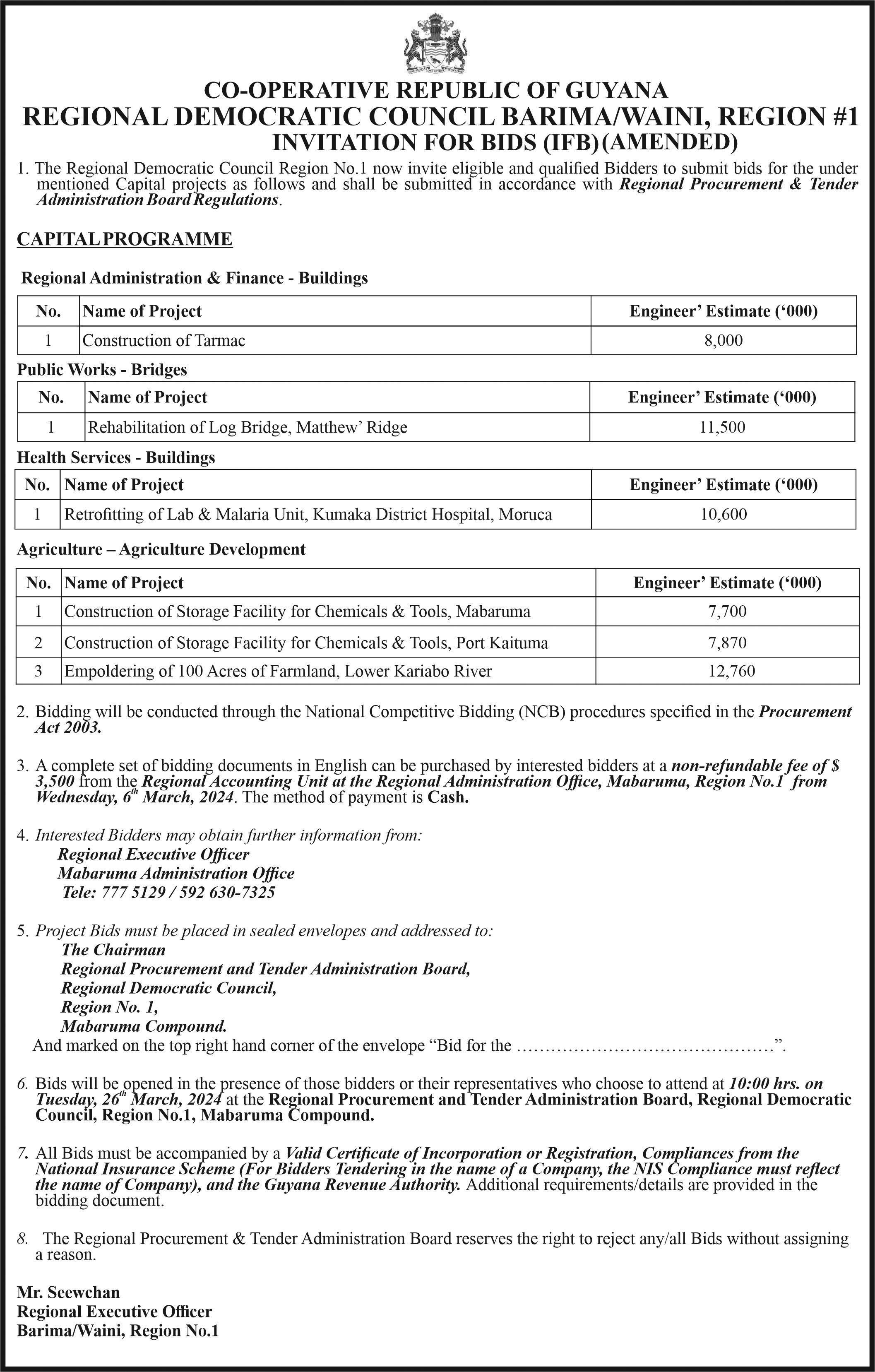
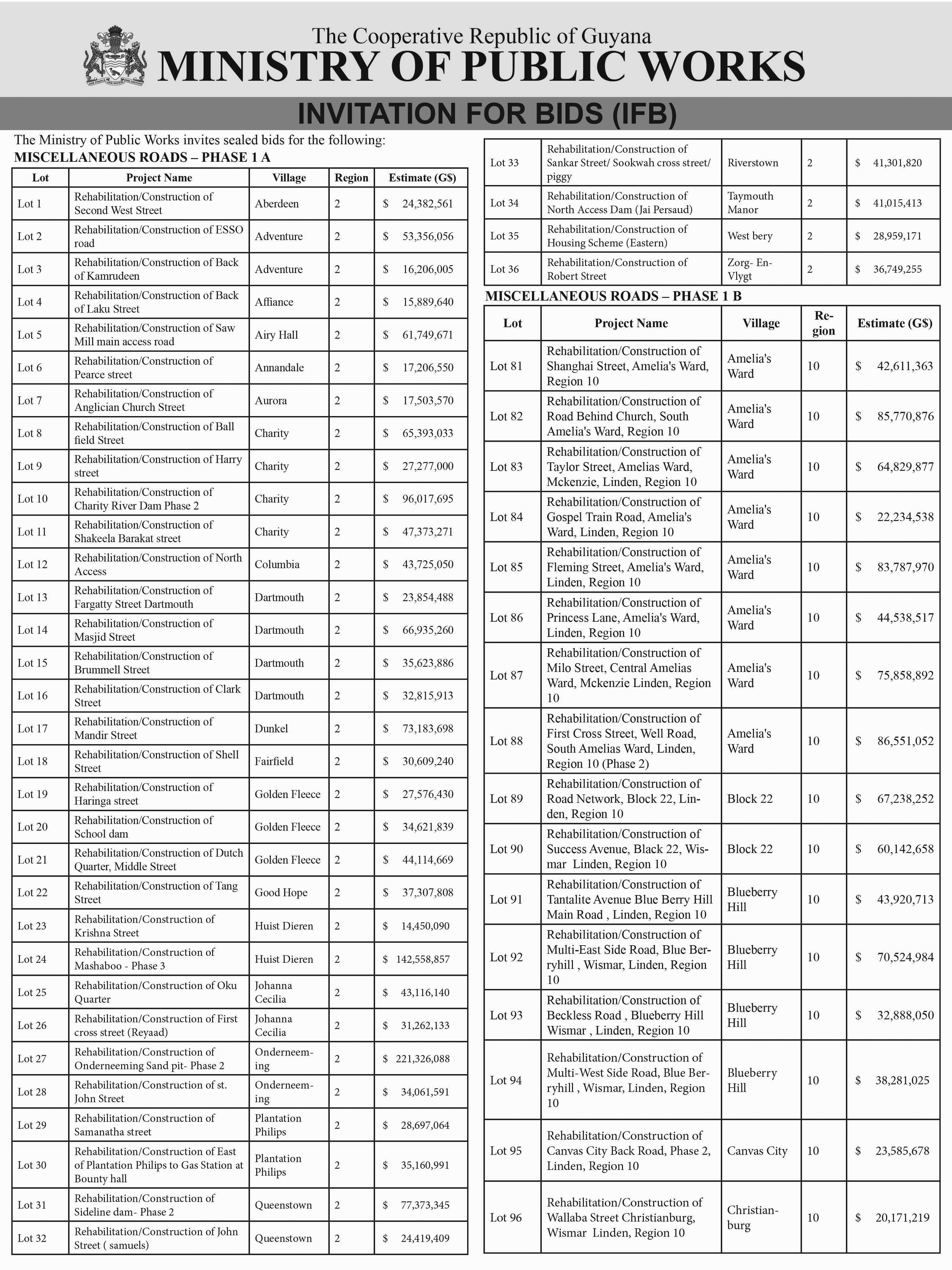
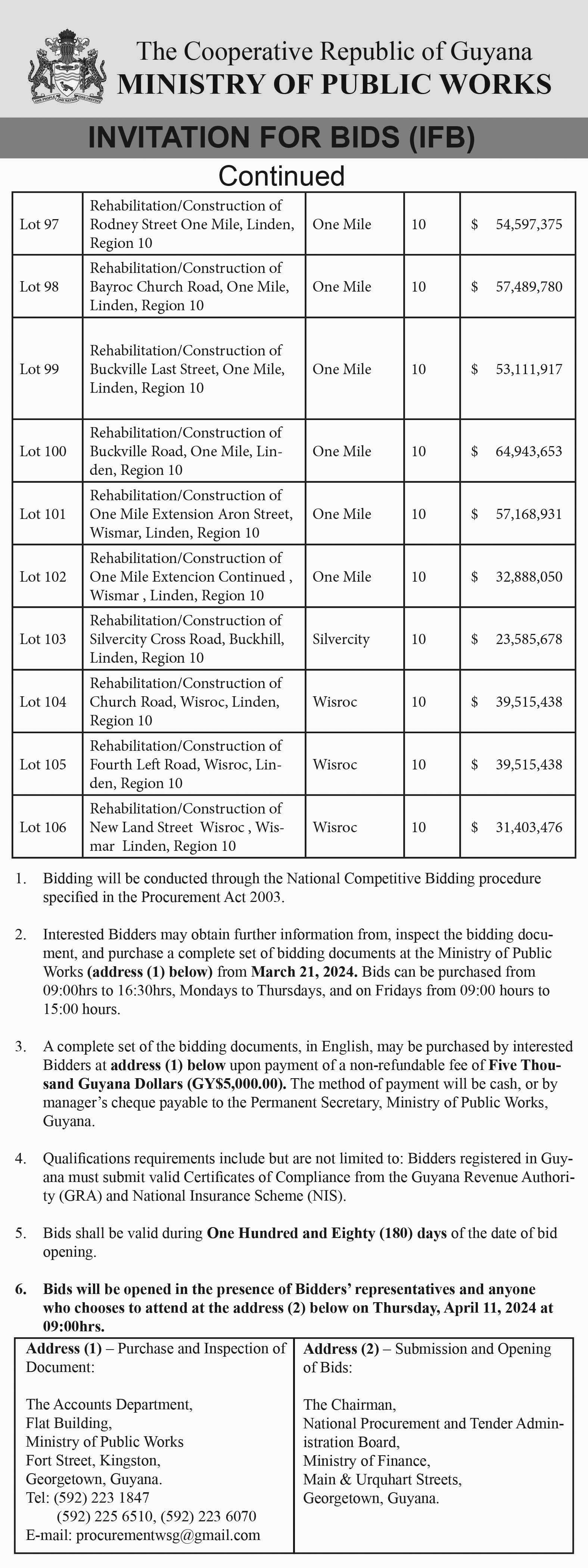
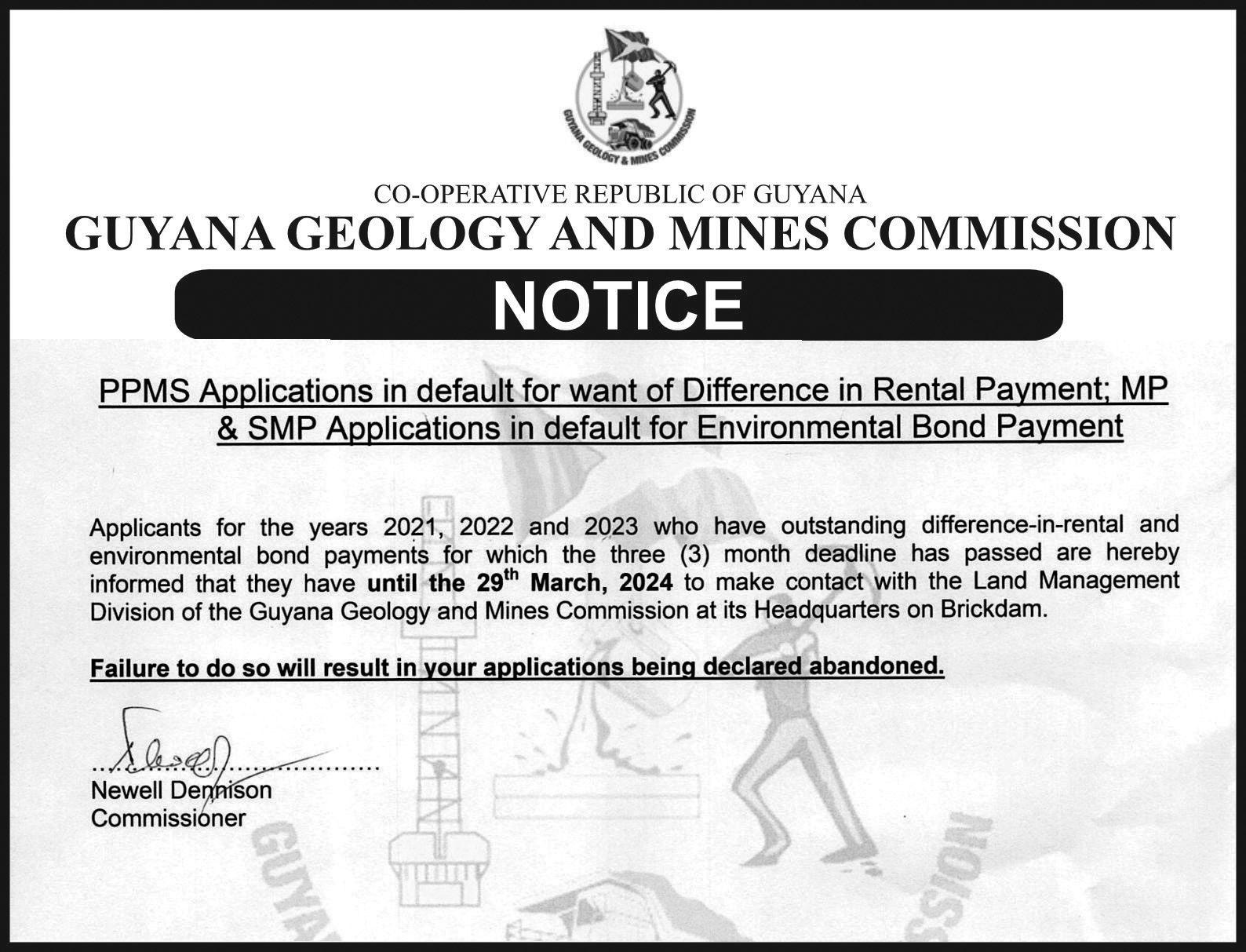

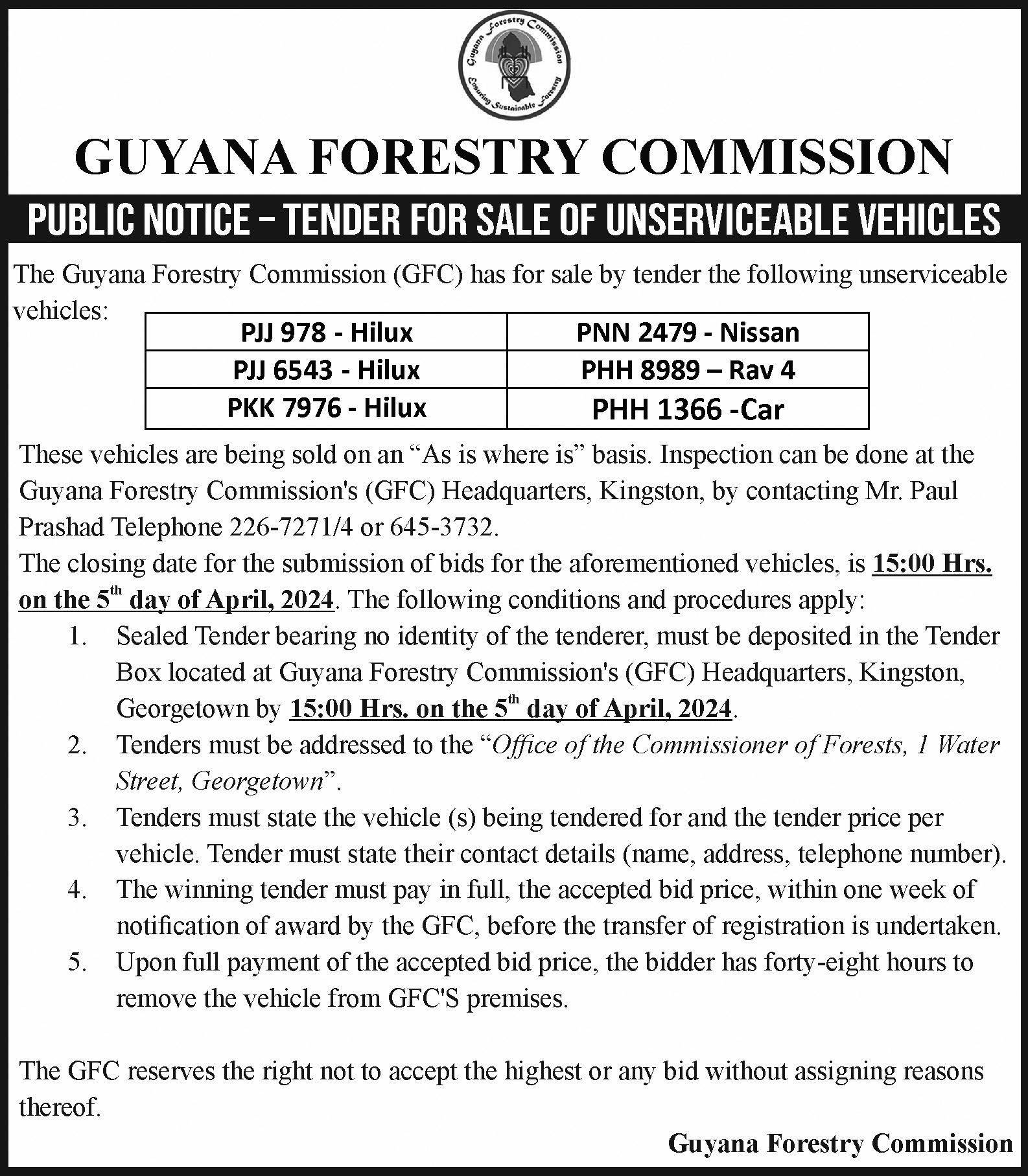



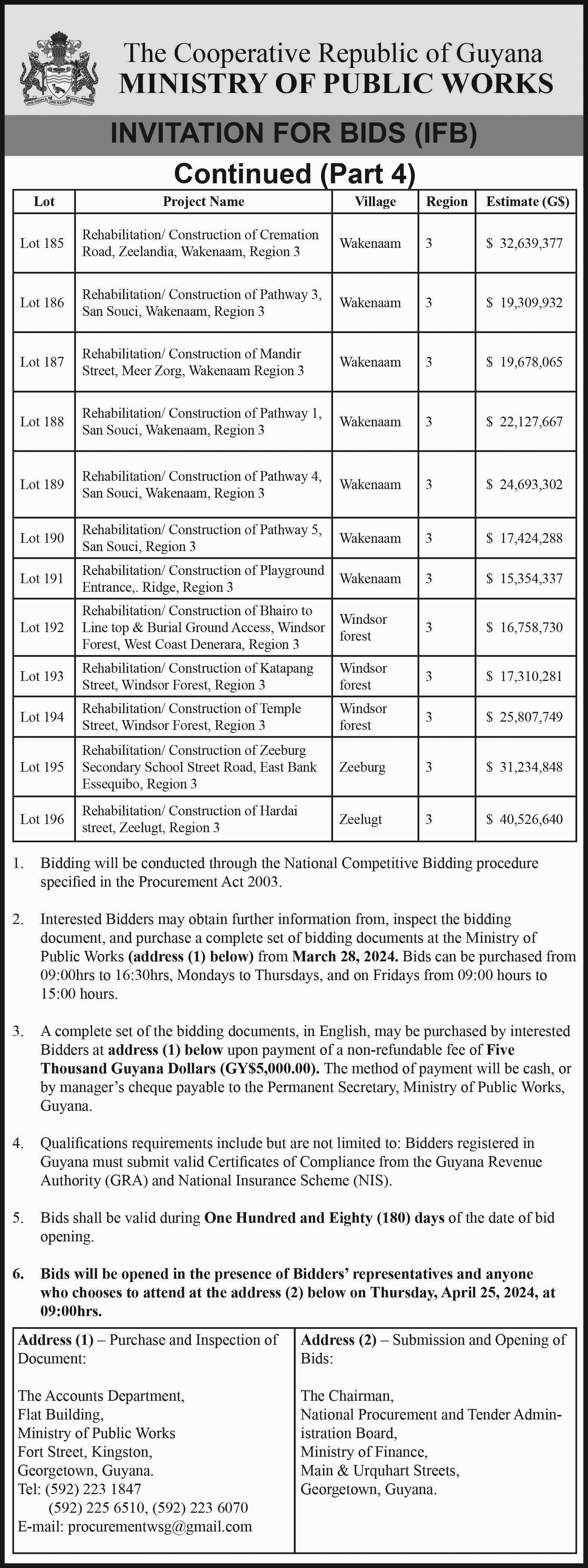


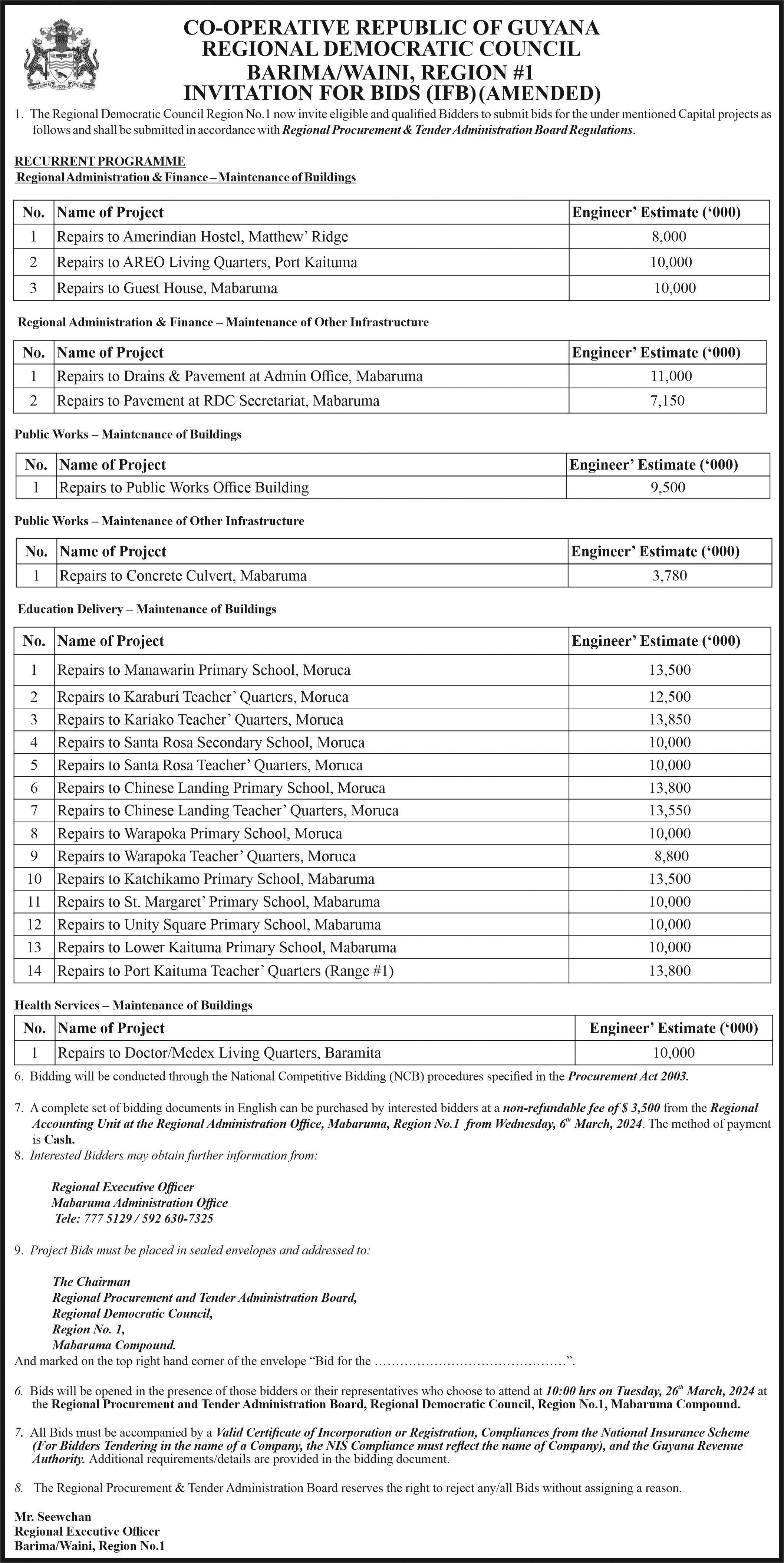
Guyana.
This Council is the organ with the charter responsibility for addressing threats to peace, breaches of the peace and acts of aggression... In Guyana’s view, this is in direct contravention of the Council’s responsibility; it would set a dangerous precedent, and make the Council complicit in the atrocities
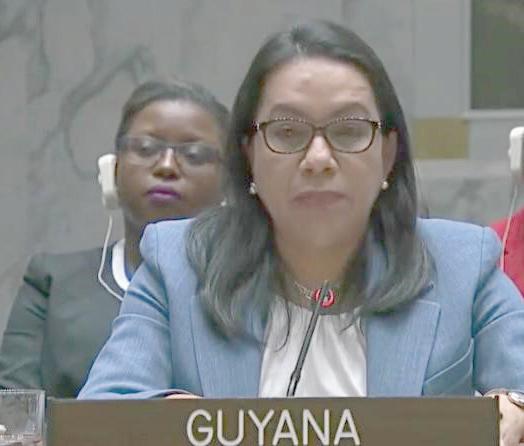
being committed in Gaza now and in the future,” Rodrigues-Birkett said.
While applauding the coordinators’ efforts, Guyana held the view that the scale of efforts that would be required in Gaza after the war would warrant a keen role for the United Nations Relief and Works Agency for Palestine Refugees in the Near East (UNRWA), given its decades of experience in the Strip, and its capacity, vis a vis other agencies operating there.
“This Council has heard many times of the indispensability of UNWRA; it is the lifeline for Palestinians. We were, therefore, disappointed that the only mention of UNWRA in the draft pertained to the investigations into the allegations against a small number of its staff,” she said.
She added that Guyana, supported by several delegations, had requested an affirmation of UNRWA’s important mandate in the text, but this was not taken on board.
Rodrigues-Birkett said: “Mr. President, dear colleagues, this Council still has an opportunity to take action to end the suffering of all parties. Civilians in Gaza need a respite, Palestinians need a respite, Israelis need a respite. Both need a respite from this continuous cycle of violence and pain; that is the real window of opportunity, the strong desire by the people of Palestine and Israel for peace.”
The Ambassador further stated: “Guyana is prepared to work with other Council members to respond to their needs and legitimate aspirations, including, very important, the two-state solution. This must not be postponed.”


Story and photos by
Indrawattie NatramBROAD smiles and sighs of relief were evident on the faces of livestock farmers in Region Two last Friday as they received broiler chicks, piglets or black belly sheep to help expand their operations.
The farmers hail from Tapakuma, Lima Sands, Zorg-enVlygt and Queenstown.
This publication was told that over 300 broiler chicks were distributed to residents in Tapakuma to assist in the Tapakuma chicken project, while 41 persons received Black Giant chicks in the Lima Sands area and 56 piglets were gifted to Queenstown livestock farmers. Two residents of Zorg-en-Vlygt received Black Belly sheep.
The distribution exercise was held at the Rice Producers

Association (RPA) compound and was facilitated by staff of the Guyana Livestock Development Authority (GLDA). Present at the handing over ceremony were Region Two Vice Chairman, Humace Oodit and Prime Minister’s Representative, Arnold Adams.
Oodit, in his remarks, said that the residents met with the Director General of the Ministry of Agriculture, Madanlall Ramraj and made a number of requests which were immediately addressed to ensure that they could acquire livestock.
He said that it was a fulfilment of the government’s promise to the people of various Region Two communities. He said that it was his desire for people to use the opportunity to expand and to become self-sufficient.
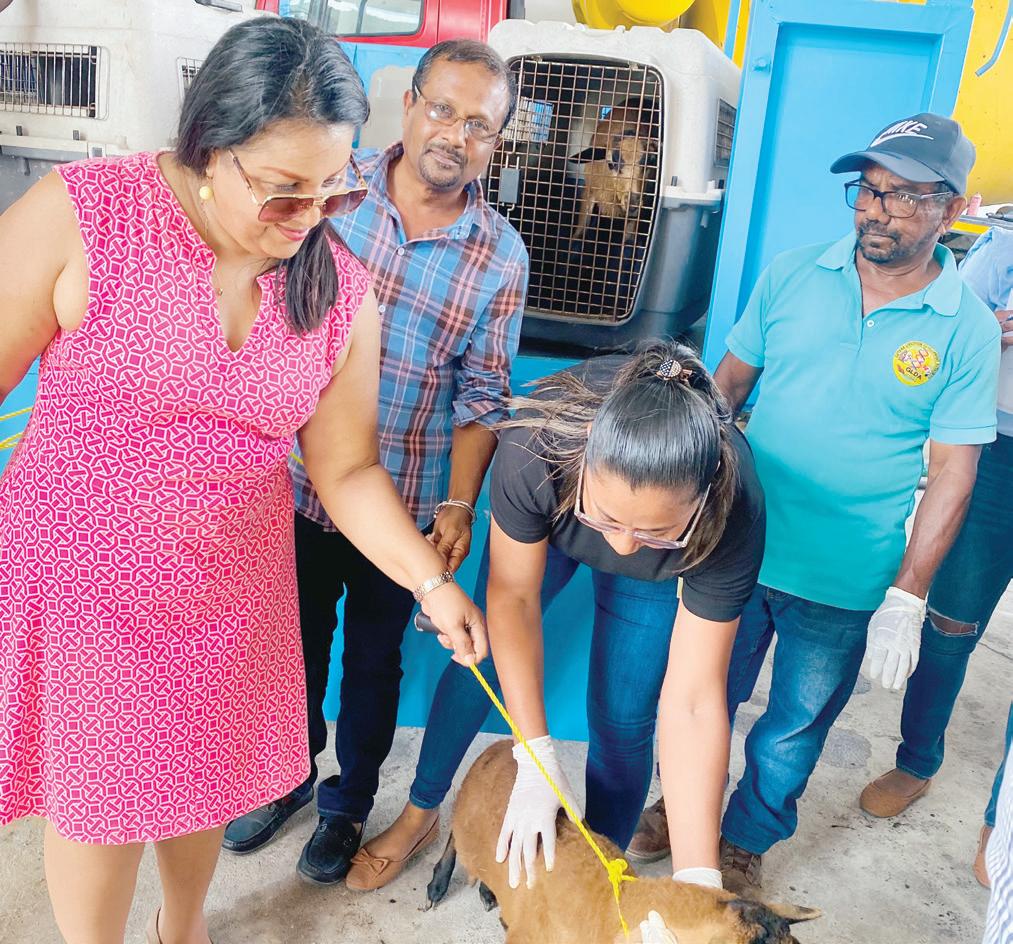
Meanwhile, Adams said the government was committed to helping persons in every community in the region. Adams said the government will con- tinue to work with every Region Two community.
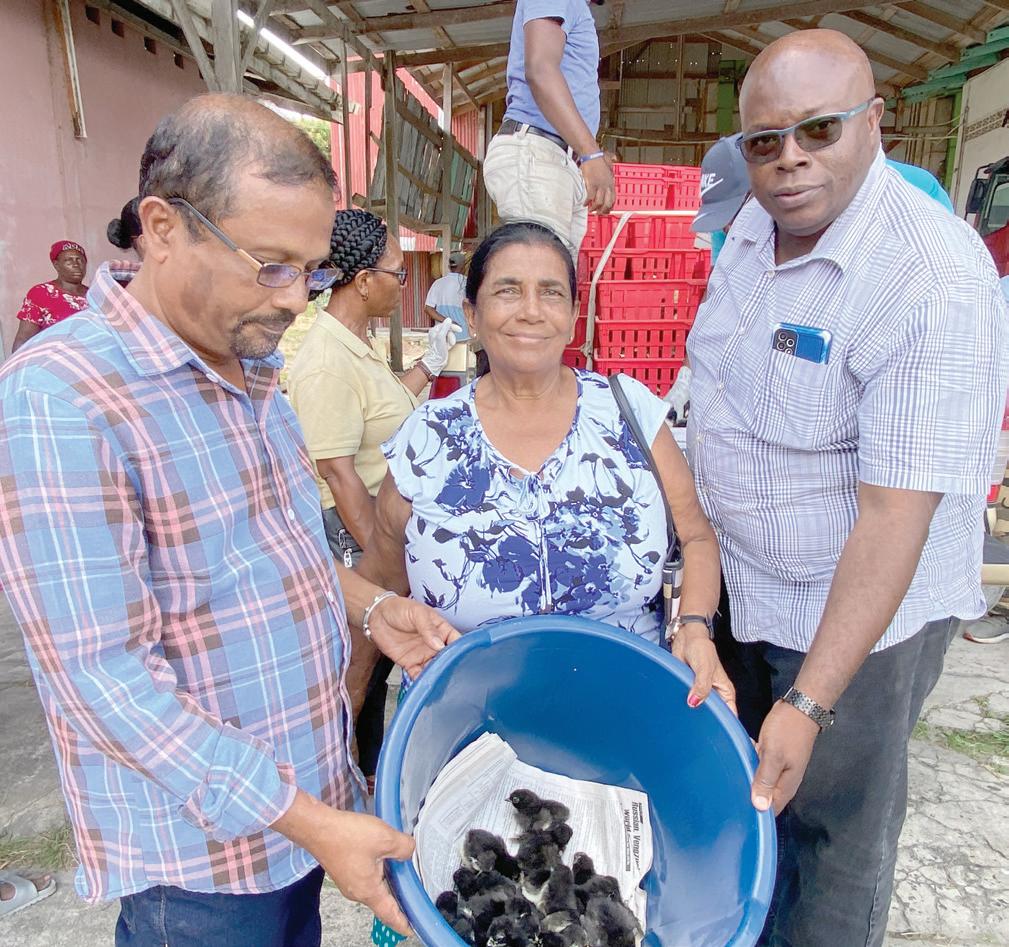
“No community will be left behind, every week we have been visiting, listening to your concerns and we are fulfilling our obligations. We made the promises and here today, we are fulfilling those promises,” Adams said.
Wonda Wong of Queenstown who received a piglet, told this publication that she was overjoyed.
She is hoping to use the animal for breeding purposes.
Wong said that she was very thankful for the ‘gift.’
Another beneficiary, Errol Richards, said that he was thankful to the Ministry of Agriculture for the assistance.
Similar sentiments were expressed by farmers who received broilers and sheep.
Residents of Dartmouth recently benefitted from a similar initiative.

HOME AFFAIRS MINISTER, Robeson Benn has expressed deep concerns over Venezuela’s persistent disregard for the Argyle Declaration regarding Guyana’s Essequibo territory, which he said is “deeply regrettable.”
The backdrop to Benn’s remarks stems from recent developments in Venezuela, where lawmakers allied with President Nicolás Maduro approved the creation of a new state in Guyana’s resource-rich Essequibo region.
Despite ongoing international court proceedings, Venezuela has asserted its right to govern the territory, citing a December referendum as justification.
Speaking during the opening of a conference of the Caribbean Community (CARICOM) Regional Security System, on Friday, at the Ramada Hotel, Benn highlighted Guyana’s commitment to resolving the issue through legal means.
“We are unhappy that the Government of Venezuela and its National Assembly just Thursday agreed that they will make Essequibo no longer a Zona de Reclamación but Venezuelan territory.
“This is highly regrettable, and it is in violation of the principles of the good faith discussions which were undertaken at Argyle and more lately in Brazil,” he said.
Benn reiterated Guyana’s stance that the matter would be settled in the courts, expressing confidence that Guyana would be vindicated through this process.
He emphasised the risks and challenges posed by Venezuela’s actions, particularly highlighting the presence of non-state actors, such as remnants of the Revolutionary Armed Forces of Colombia (FARC) and the National Liberation Army (ELN) which are two prominent guerrilla groups involved in the Colombian conflict.
Minister Benn pointed out that FARC and the ELN are supporting the Venezuelan’s “sindicatos” or “malandros” who are involved in drug trafficking, Trafficking in Person (TIP) and illegal mining.
“In relation to the Guyana/Venezuela issue, that is a matter which will be resolved in the courts. We, of course, expect that Guyana will be vindicated through that process, but, we know the risks.
The International Court of Justice (ICJ) is tasked with resolving the territorial controversy, yet Venezuela has expressed reluctance to acknowledge the court’s jurisdiction.
Despite this, Guyana remains steadfast in its position, asserting that its borders are non-negotiable and reaffirming its sovereignty over the region.
“We know the challenges which are in Venezue -
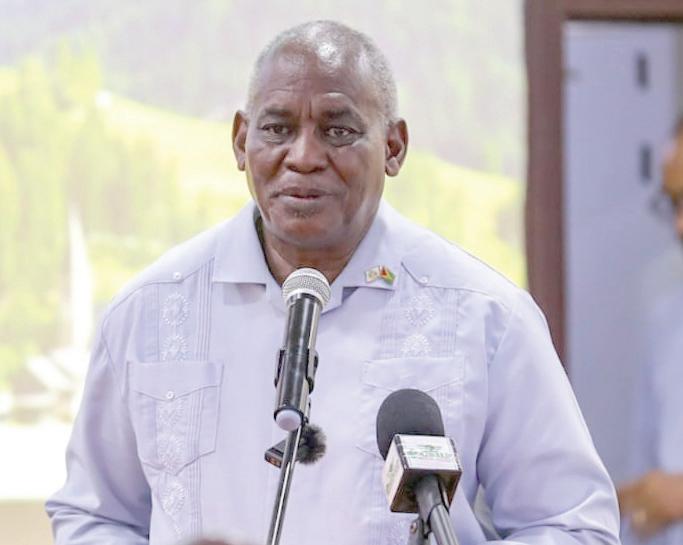
la, and we are concerned about the questions of instability, particularly in the presence of non-state actors in eastern Venezuela, particularly on our borders,” Benn said.
The minister also underscored Guyana’s dedication to protecting Venezuelan migrants within its territory, stressing the mutual relationship between the two countries.
He stated that Guyana does not harbour any territorial ambitions towards Venezuela and remains committed to fostering peaceful relations.
“Guyana does not have any designs on Venezuelan territory. Guyana provides support to perhaps more than 30,000 registered Venezuelan persons in our territory.
“We still view Venezuelans as our cousins,” Benn stated, while highlighting Guyana’s humanitarian efforts towards Venezuelan migrants.
The Minister said that as Guyana continues to deplore the recent situation, it looks forward to “reasonable rational conversations and engagements” to make sure that the issue between Guyana and Venezuela is mitigated and poses no risk to either territory.
He reaffirmed that the Caribbean Community (CARICOM) region must remain a ‘zone of peace’ in relation to this issue.
Venezuela’s unilateral actions have sparked condemnation from Guyana and its allies, including support from regional partners within CARICOM and further afield.
Benn commended the
backing of international partners, including the United States, the United Kingdom, the European Union, and Brazil, for their support in upholding Guyana’s sovereignty.
“The controversy, which was dissolved in 1899, full, perfect and final and only came into some issue when a letter obtained from the crypt suggested that something unusual unwarranted and improper happened,” Benn said, referencing the historical context of the dispute.
The creation of the new state, named ‘Guayana Esequiba’, by Venezuela, adds another layer of complexity to the longstanding territorial dispute. The law establishing the new state delineates its borders, encompassing Guyana’s territory.
Venezuela, last year, had increased claims to twothirds of Guyana’s Essequibo region.
This area is known for its wealth in oil, timber, and other natural resources, drawing attention and contention from both sides.
In 2018, Guyana took a decisive step by approaching the ICJ seeking affirmation of the award’s legitimacy.
Venezuela, taking a defiant stance, initially claimed that the ICJ lacked jurisdiction, a contention flatly rejected by the World Court in a crucial ruling in Decem-
AROUND 04:00hrs on Friday, the Guyana Fire Service swiftly responded to a distress call reporting a building on fire at West Half Plot OBAZ, Beterverwagting, East Coast Demerara.
In a press release, the fire service said that Water Carrier #16 and Water Tender #105, carrying 1703 litres of water, along with their crews, were immediately dispatched to the scene.
“Personnel, including Leading Fireman Legal; Leading Fireman Petrie and five others encountered a wooden and concrete two-storey building engulfed
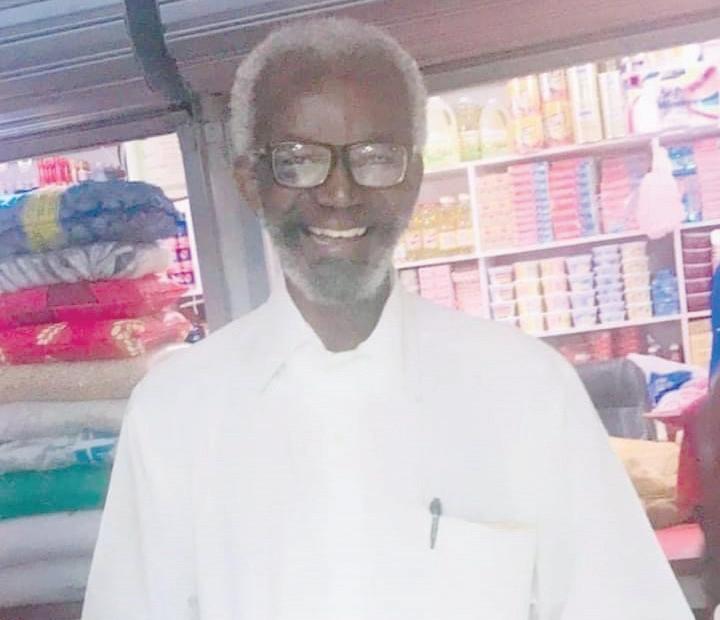
in flames and immediately commenced firefighting operations.
Tragically, the sole occupant and owner, Moses Elias, aged 84, perished in the fire.
Despite the valiant efforts of the firefighting crews, the building and its contents were completely destroyed,” the release added.
According to the fire service, the cause of the fire is suspected to be arson, with the perpetrator(s) currently unknown.
The fire was extinguished utilising one jet from Water Carrier #16 and two jets from Light Pump #126, via an open water source.
ber 2020.
The door was thus opened for the ICJ to delve into the merits of the substantive case.
The substantive case which highlights the historical context and the 1899 Arbitral Award, remains before the World Court.
In response to Venezuela’s actions, Guyana has been bolstering its defence and diplomatic efforts with the help of international partners, including the United States, aiming to counter security threats while promoting regional stability.
Despite these preparations, Guyanese officials have reiterated their focus on defence rather than offence.
Following Venezuela’s reaction to the docking of the British offshore patrol vessel, HMS Trent, in Guyana’s waters, President Dr. Irfaan Ali clarified the nation’s defensive posture, indicating no intent to initiate conflict with Venezuela.
Amid these tensions, a significant diplomatic effort led by Prime Minister Dr. Ralph Gonsalves of St. Vincent and the Grenadines culminated in a peaceful ‘Argyle Declaration’ between Guyana and Venezuela.
This agreement, reached during a historic meeting on December 14, 2023, includes both countries committing to avoid the use of force, and advocating for dialogue and co-operation to prevent tensions.

EARLIER in the month, the Minister of Amerindian Affairs, Pauline Sukhai, commissioned a number of projects in the communities of Quiko and St. Ignatius, Region Nine (Upper Takutu-Upper Essequibo).
The completion of a $9 million four-acre savannah farm has opened the door for Quiko, a small town in South Central Rupununi, to engage in large-scale cash crop cultivation.
Through the sale of carbon credits issued by Guyana under the Low Carbon Development Strategy (LCDS 2030), finance for the project was made available. The villagers will be able to grow vegetables on the farm, including watermelon, bora, eschallot, and sweet peppers, among other kinds of crops, to provide the government’s hot meal programmes, which supplies the Rodeo Arena, a Youth Document Centre, a Women’s Sewing Centre, and a Catering Kitchen.
The Senior Councillor of Quiko, Ronald Ignatius, stated that the community developed the idea holistically, understanding the significance of food security, safety, and affordability.
He pointed out that while generating cash is a significant component, giving local residents job opportunities is an equally vital aspect of the initiative.
The senior councillor explained that “our main crop
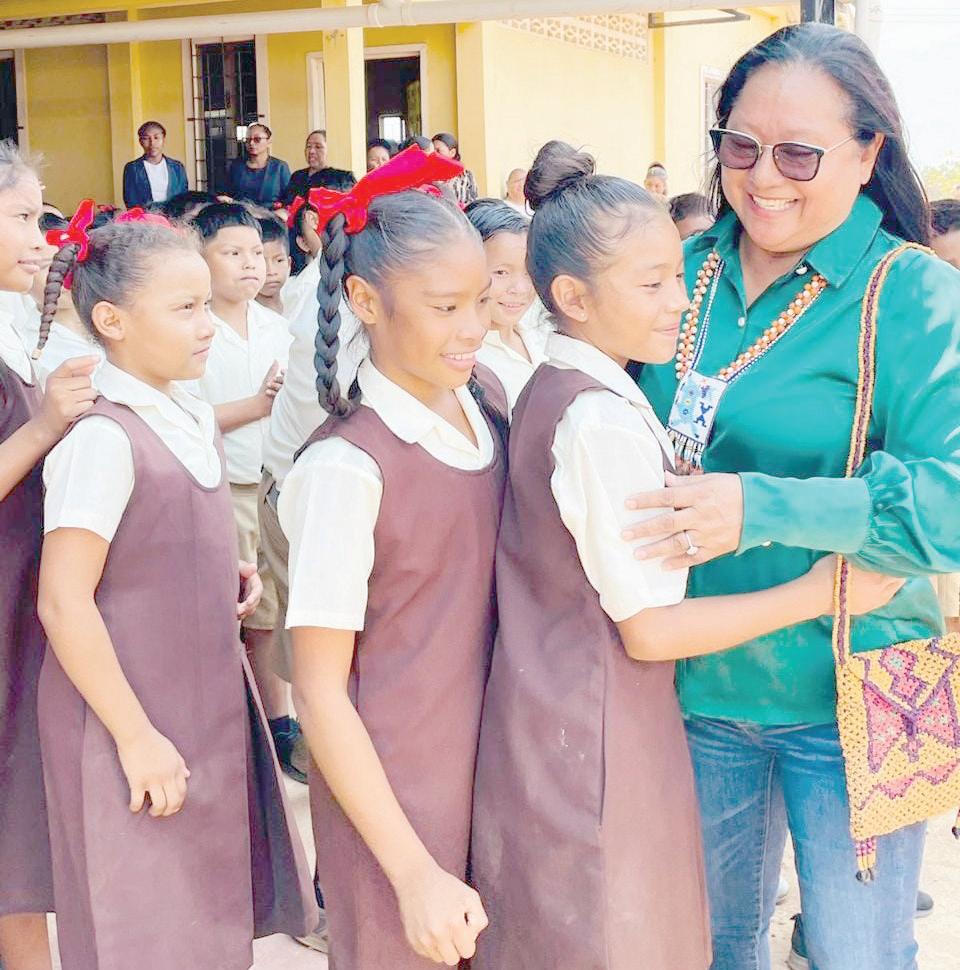
is cash crops, as you can see around. We have eschalot… those crops that are cash crops to supply hot meals, private entities that do catering, and so (on)… We are creating job opportunities by having this large farm. We decided to employ persons in the community that have children attending secondary schools in order to have an income at the end of the day (and) other young people to have knowledge of these farming techniques.”
Additionally, in the Amerindian village of St. Ignatius, Region Nine, projects valued at over $20 million were put into motion.
Among these are a farine factory to strengthen the local economy and create jobs, and an expanded hot meal kitchen to guarantee that elementary school students get the nourishment they require.
A second kitchen was also commissioned so that women in the hamlet could provide catering services.
During the commissioning of the project, Minister Sukhai said: “The village will now have a farine processing unit, which was built at a cost of $14 million. This will support the processing of cassava, which is a vital ingredient for many indigenous dishes. That will bring
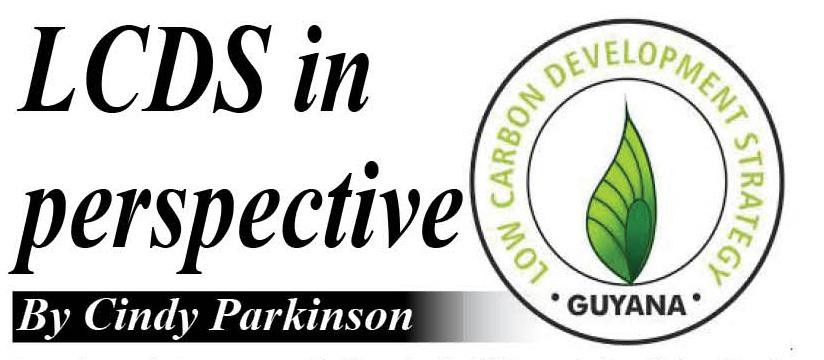
great ease to the women who oftentimes have to manually grate the cassava.”
Furthermore, Minister Sukhai said: “$5 million was also invested towards the extension of the St. Ignatius Primary hot meal building. This building has since been equipped with a freezer, a fridge, a kitchen cupboard, and a microwave, among other appliances.”
Another $1.8 million was used to fence the village office, and another $1.8 million was used to construct a kitchen for the community’s female residents. These projects’ creation extends far beyond community development; instead, they now support and are components of tourism amenities.
As a result, by giving visitors the food and lodging they require and by developing tourism-based activities and educational opportunities for them, the villagers will be able to use these projects to foster a welcoming atmosphere for visitors.
In addition, Minister
Sukhai gave the Amerindian residents an overview of the budget for 2024 and related that there are many exciting things planned for the ongoing advancement of the Amerindian people and their communities.
She added, “In this year’s budget, $2.7 billion will be disbursed to Amerindian villages from the Carbon Credit Funds. And I want to say that the Carbon Credit Funds have become very useful not only to the villages but to the entire country.”
Finally, Minister Pauline Sukhai assured the St. Ignatius villagers that the government will keep providing funds and policies to assist the growth of developing Amerindian communities.
The minister said, “For the Ministry of Amerindian Affairs, we continue to be funded; we will be providing presidential grants, we will be providing support under the capital projects – for projects that we would have received from the leadership of your communities across
the length and breadth of this country. The prioritisation of those will take place, and then we will be able to proportionately support projects in various villages.”
Hess Corporation, and the Government of Guyana inked a multi-year deal for US $750 million in 2023 that calls for the company to buy $2.5 million in credits each year.
Over 242 Amerindians, hinterland, rural, and riverine communities and villages received US$22.5 million in payments after the first payment of US$150 million was received in 2023.
The mechanism agreed with the National Toshaos Council for allocating funds from Guyana’s carbon credit sales was informed by the population size with the payments to each village for year 2023 ranging between $10 million and $35 million.
(This is part of a weekly series on LCDS) The author can be contacted at cparkinson0206@gmail.com
A FATHER and son appeared before Magistrate Sunil Scarce at the Diamond/ Golden Grove Magistrates’ Courts on Friday, accused of trafficking 24 pounds of cocaine.
Adrian Carew, 55, of 38 Rainbow City, Wismar, Linden, and his son, Cavel Carew, 27, of 871 Central Amelia’s Ward, Linden, both pleaded not guilty to the joint charge.
It is alleged that on March 20, at Providence, East Bank Demerara (EBD), they had 11.204 kilos of cocaine in their possession for the purpose of trafficking.
Adrian was remanded to prison, while his son was granted bail in the sum of $600,000, on the condition that he reports to the Customs Anti-Narcotics Unit (CANU) every month.
The two were inside a
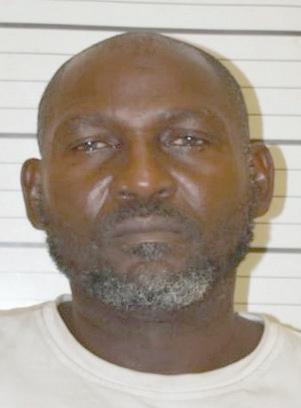
Canter truck when it was intercepted by CANU officers on Wednesday during an operation in Providence. Several brick-like parcels, which were carefully hidden in a box inside the vehicle, caused the CANU agents to become suspicious.
A subsequent search re -

vealed that the packages’ contents, which weighed 11.204 kilogrammes (almost 24 pounds), tested positive for cocaine.
The Carews were promptly arrested at the scene, and escorted to the CANU Headquarters, along with the narcotics.
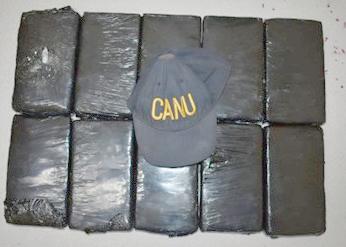
WATER is one of the most sought-after resources in the world, especially considering the current drought, which has validated the 2015 classification of water as an essential resource.
In a brief but impactful ceremony to honour World Water Day on Friday morning in front of the Guyana Water Incorporated’s (GWI) Head Office on Vlissingen Road, the Minister of Housing and Water, Collin Croal, spoke to a gathering of GWI officials, staff, the public, teachers, and students about the importance of conservation, the vital role that water plays in everyone’s life, and the need to raise awareness among Guyana’s citizens and, by extension, the global community.
The housing minister reminded them of how lucky “we” are in Guyana to have access to water while also explaining that the government’s goal is to guarantee that every home on the coast and hinterland has access to potable water by 2025.
With the need for governments to play a greater role in ensuring that their people have access to potable water, Minister Croal said: “Here in Guyana, and with President Ali reminding us that a lot of resources are being injecting in Guyana Water Inc., we are delivering on those commitments. More importantly, never has there been this amount of resources given for us to reach our mandate.”
He further explained that the mandate of the government is “water is for all.” However, he noted that in order to do that, a lot of requirements have to be met.
“Here on the coastland, 97.5 per cent of people have access to water. As new schemes are opening up, we have to also provide new access.”
Acknowledging that many people are dissatisfied with the quality of the water that they are receiving in some areas, Minister Croal stated that the Guyana Government is currently working on installing treatment plants across the nation along with other measures, to ensure that the problem is rectified.
He also noted that since the People’s Progressive Party Civic (PPP/C) took office, in just over three years, the government has drilled over 80 wells, both on the coastland and the hinterland
According to him, “There are complaints in some areas about the water, the quality, and this is where the injection for a number of treatment plants, new in-line filters, etc., and the resource are being provided. That is where most of our money is going, because when we talk about a better quality of life, this is what we are talking about.”
“This year provided, not a lack of resources; it became a capacity challenge, especially on the coastland. For a number of those new areas to become part of the connection or part of the grill, we have at least 40 wells we are expecting to drill. That’s a lot of wells, but what we have now is not enough. And so, the government is committed to ensuring that the nation and all of our citizens have access to potable water,” the minister explained.
“According to our mandate, by the end of next year, we will be able to provide a minimum of 90 per cent access to treated water on the coast.
Now more than ever, we are seeing the prolonged effect of the dry season, especially in the hinterland,” he added.
Underscoring that his ministry is “fast tracking” the effort to ensure that every town has access to portable water from a well rather than a river. He also highlighted that some of the regions are further advanced than some in the hinterland in terms of coverage.
“In the hinterland, we are fast tracking the initiative, and some of the regions are more advanced than others in terms of coverage, but we are continuing the work. Every community that is receiving directly from a riverine source, we are removing them because we want them to get water from a well or, in some cases, the spring,” the minister noted.
In continuing, he said: “Because of the flow of the water from the mountain, we harness or trap that and create a gravity flow, which is one of the most powerful and reliable sources because it gives you a heavier flow.”
Minister Croal emphasised that while there is a lot of work going on “behind the scenes,” the government is committed to making sure that everyone in the nation has access to portable water by 2025. He also asked everyone to act as ambassadors for water conservation.
“Recognising that today is World Water Day... and the important aspect of all of this is to bring more awareness, and we are hoping that everyone can be ambassadors. However, children are the best ambassadors... for getting this message across. I hope that our children here and across the nation will share the message of how important water is for us and that it is a necessity for our conservation.”
World Water Day 2024 was celebrated under the theme, ‘Leveraging Water for Peace.’
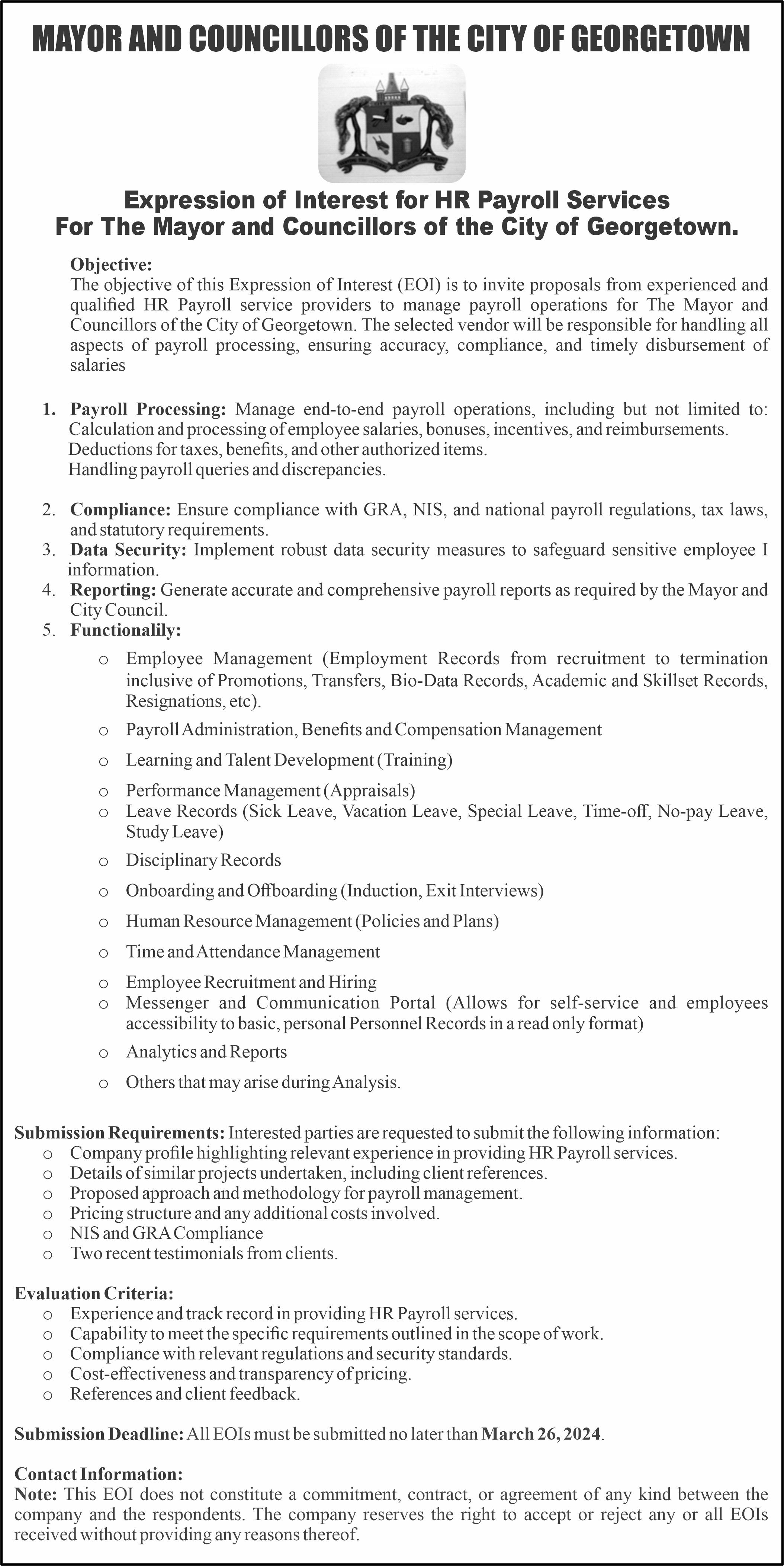


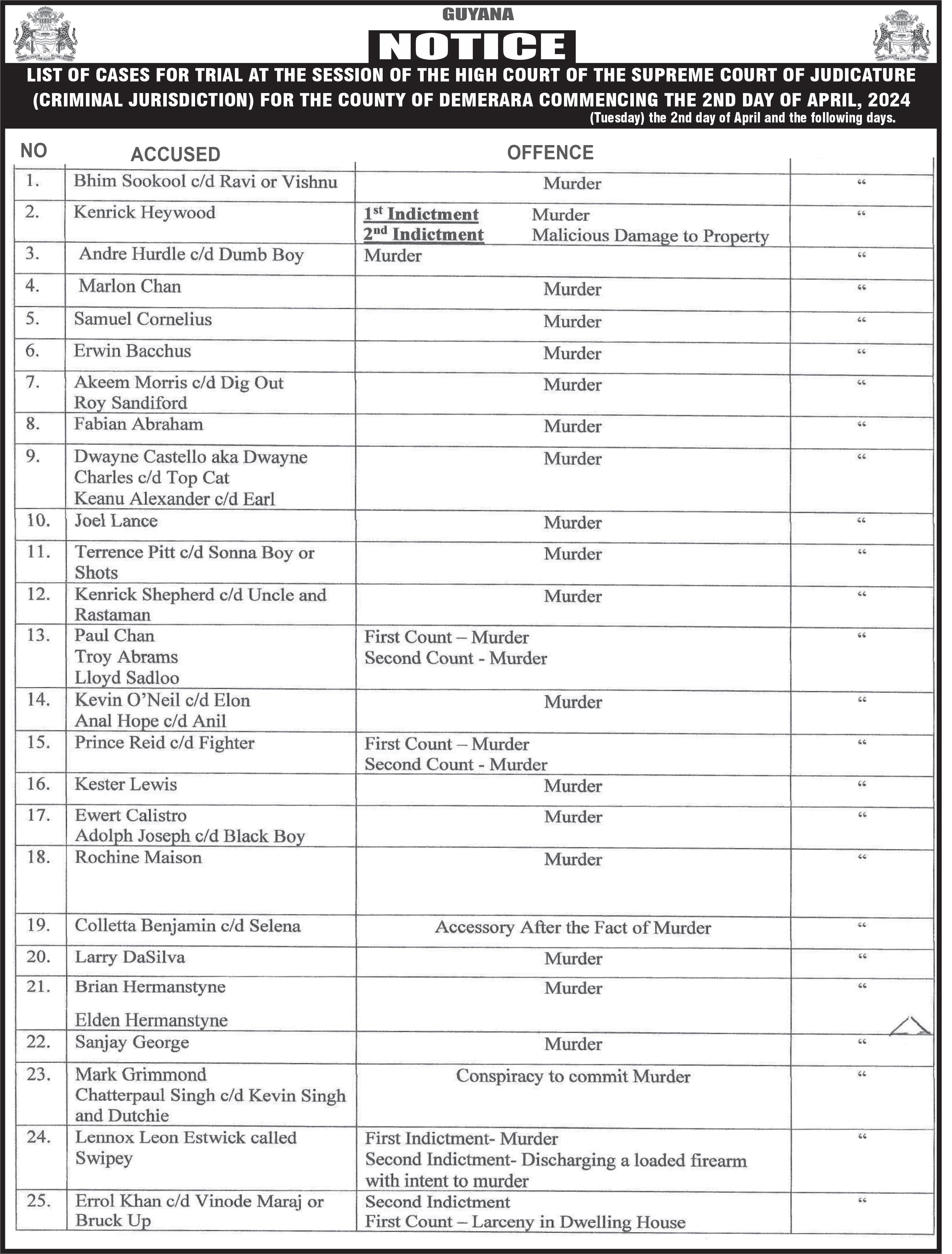
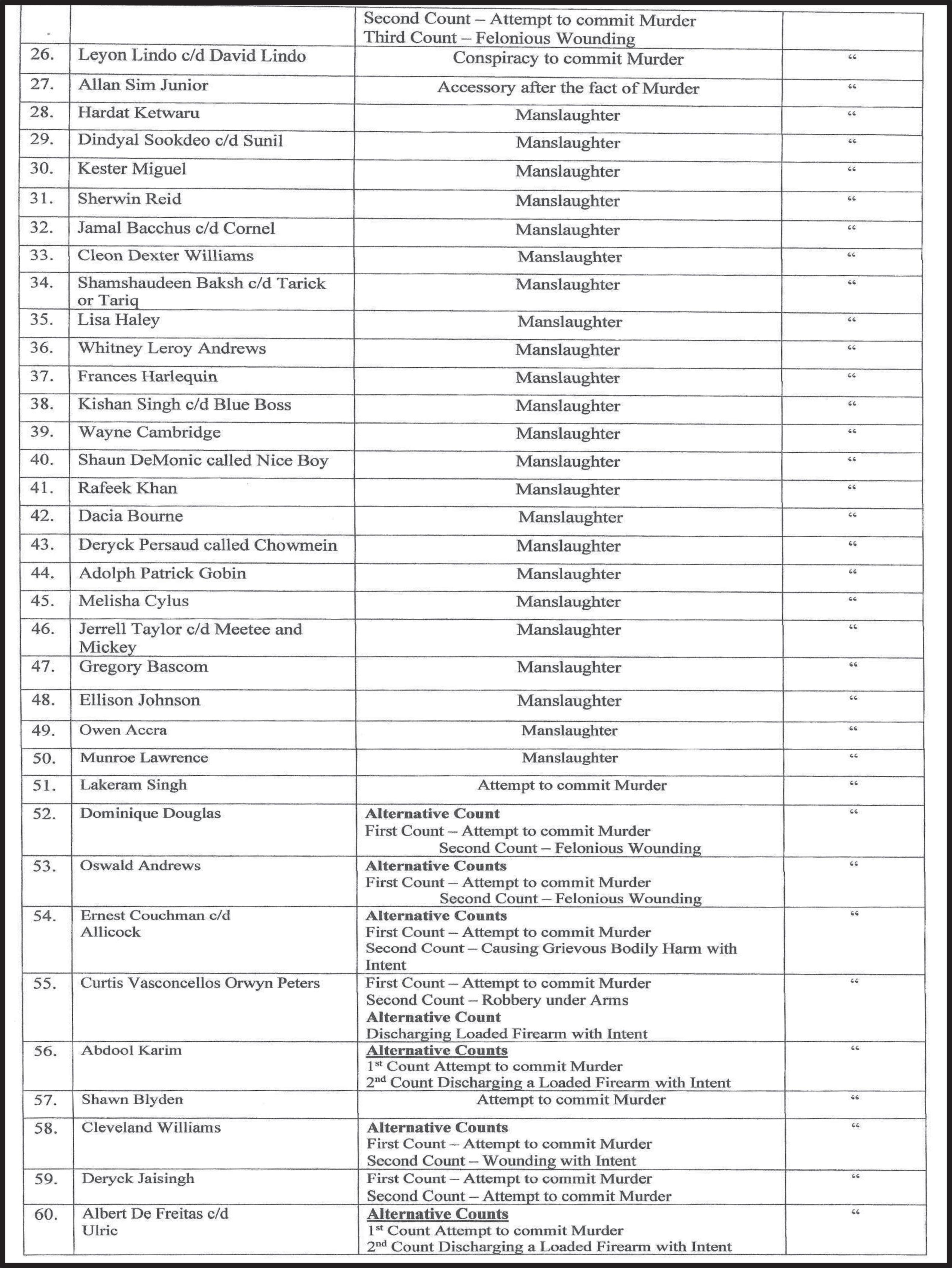
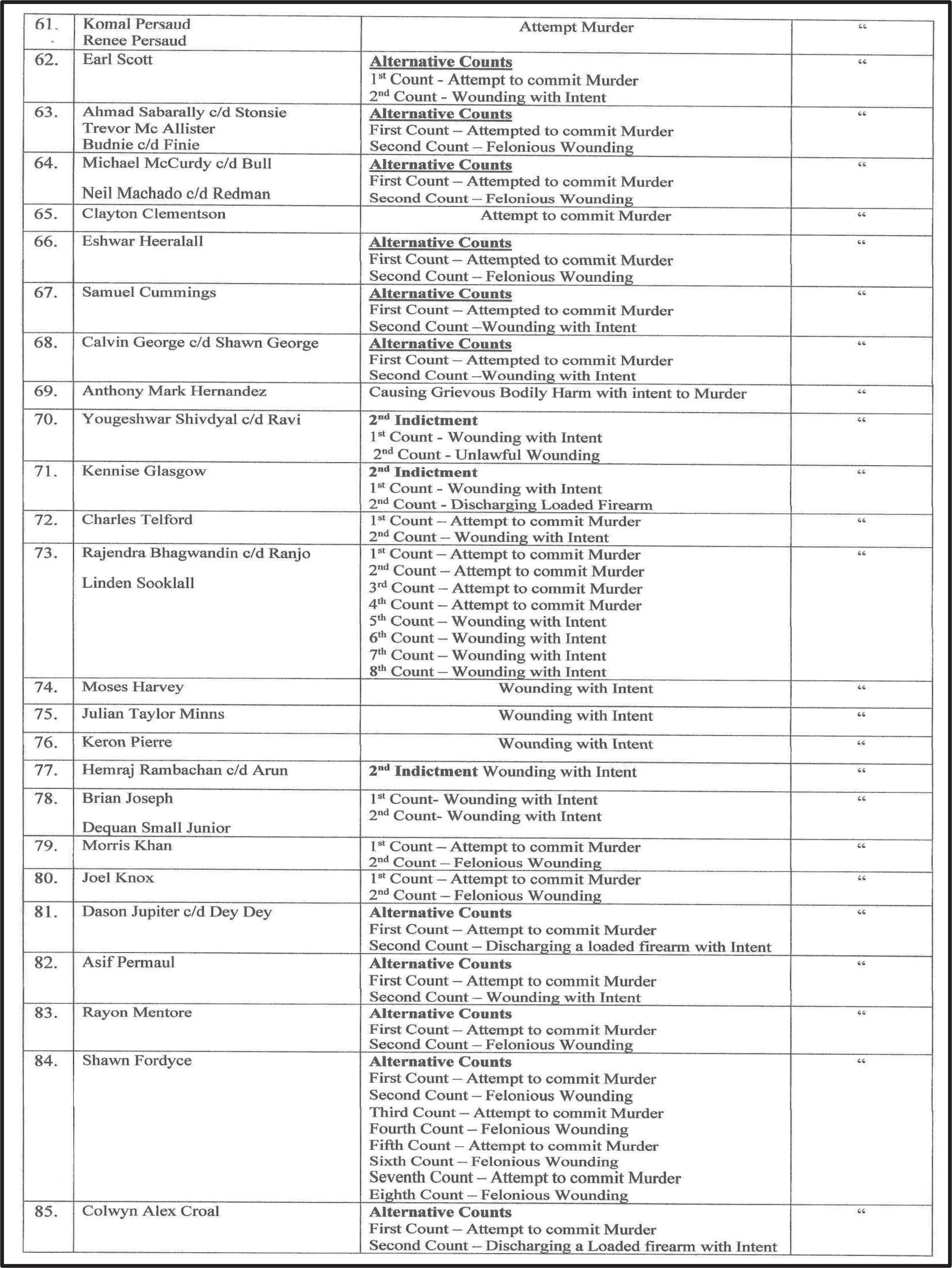
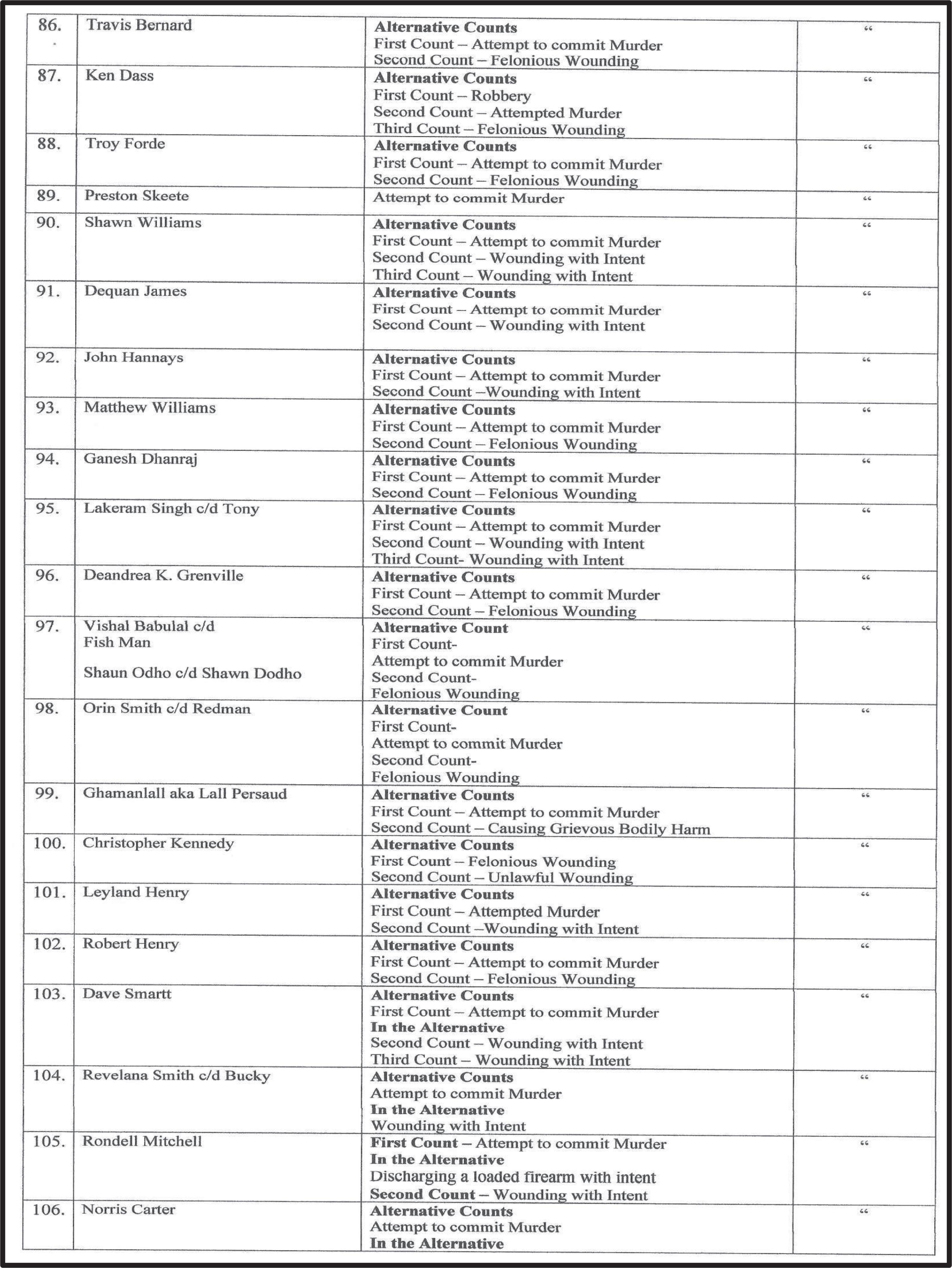
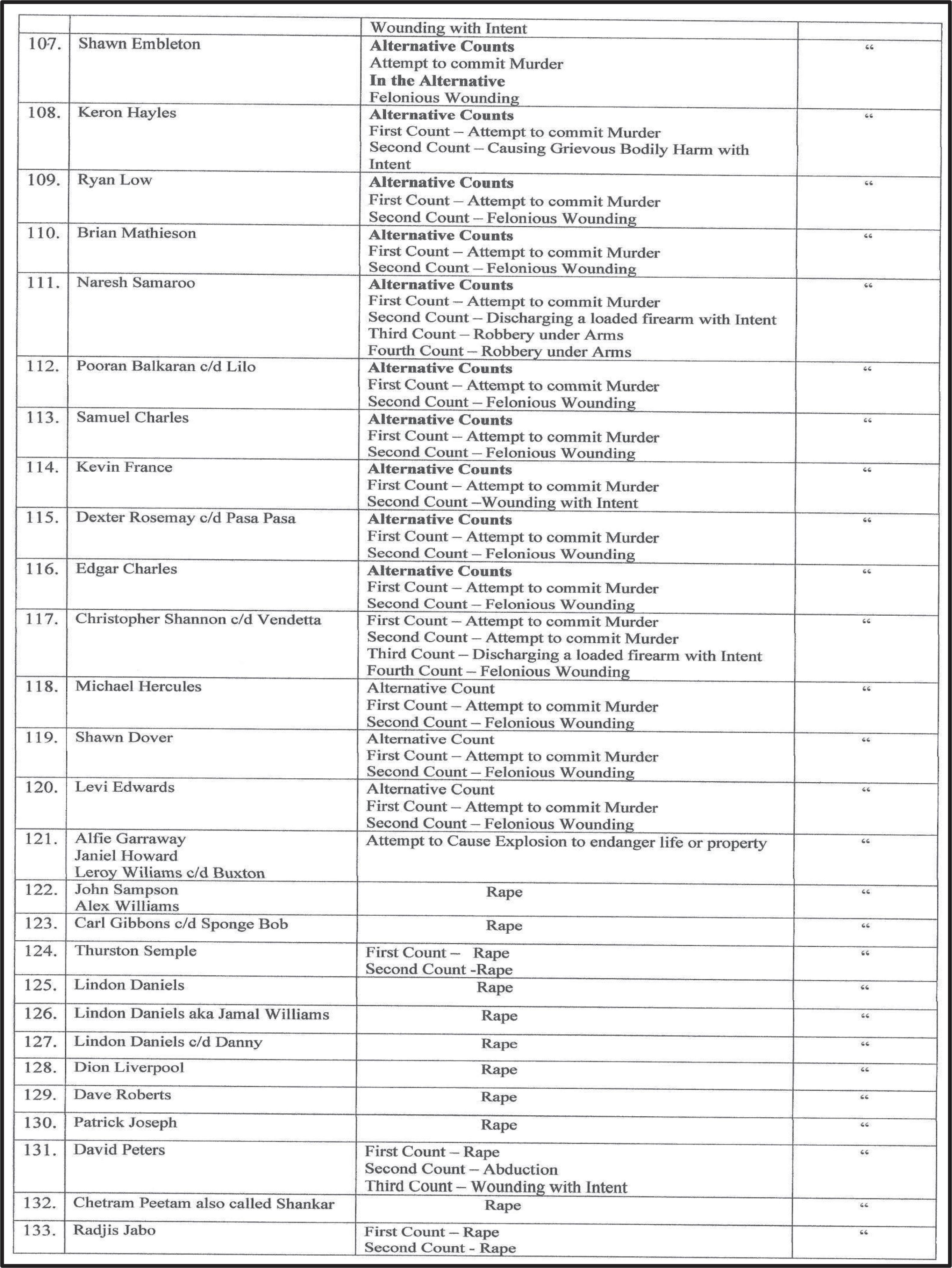
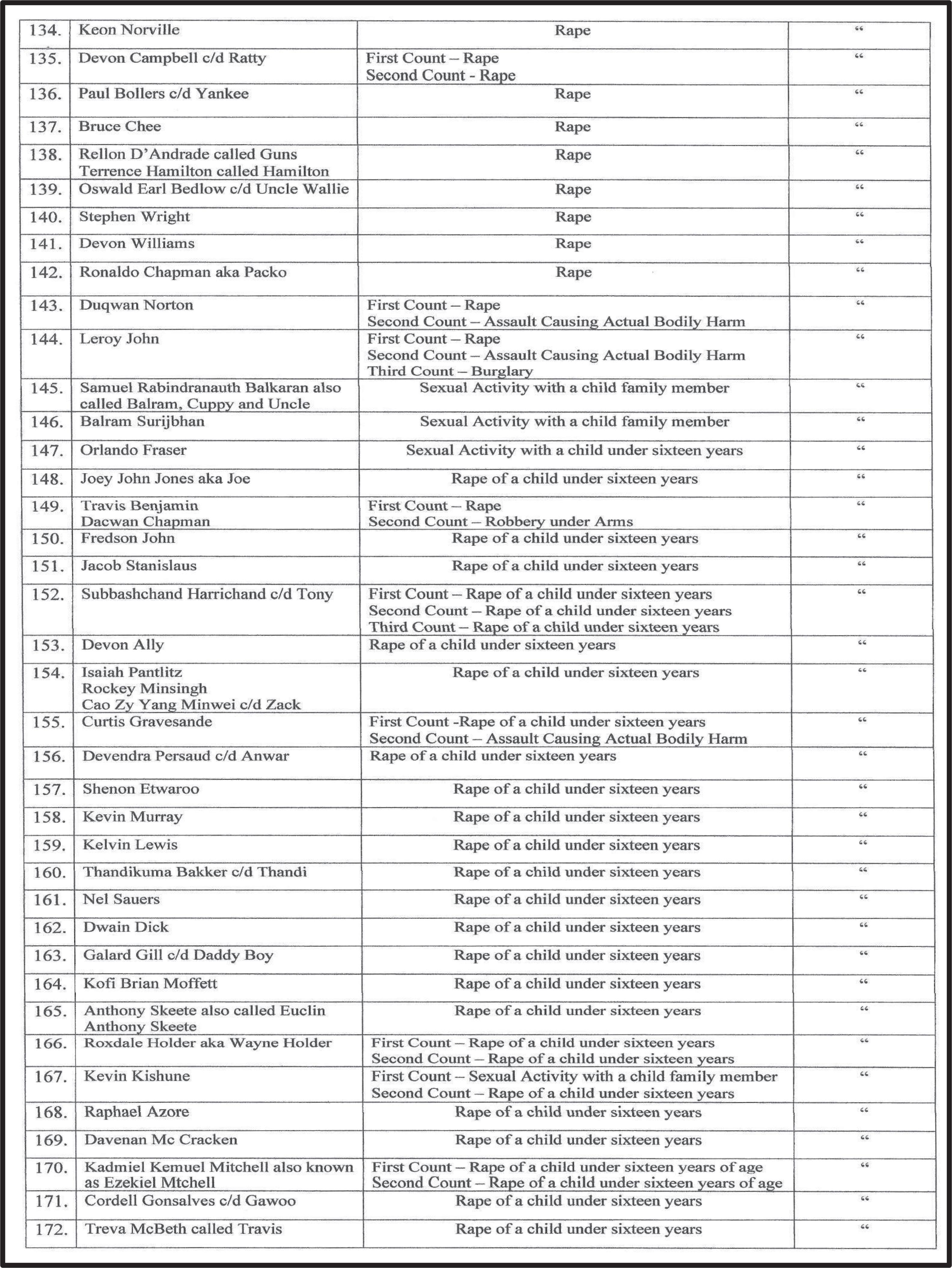
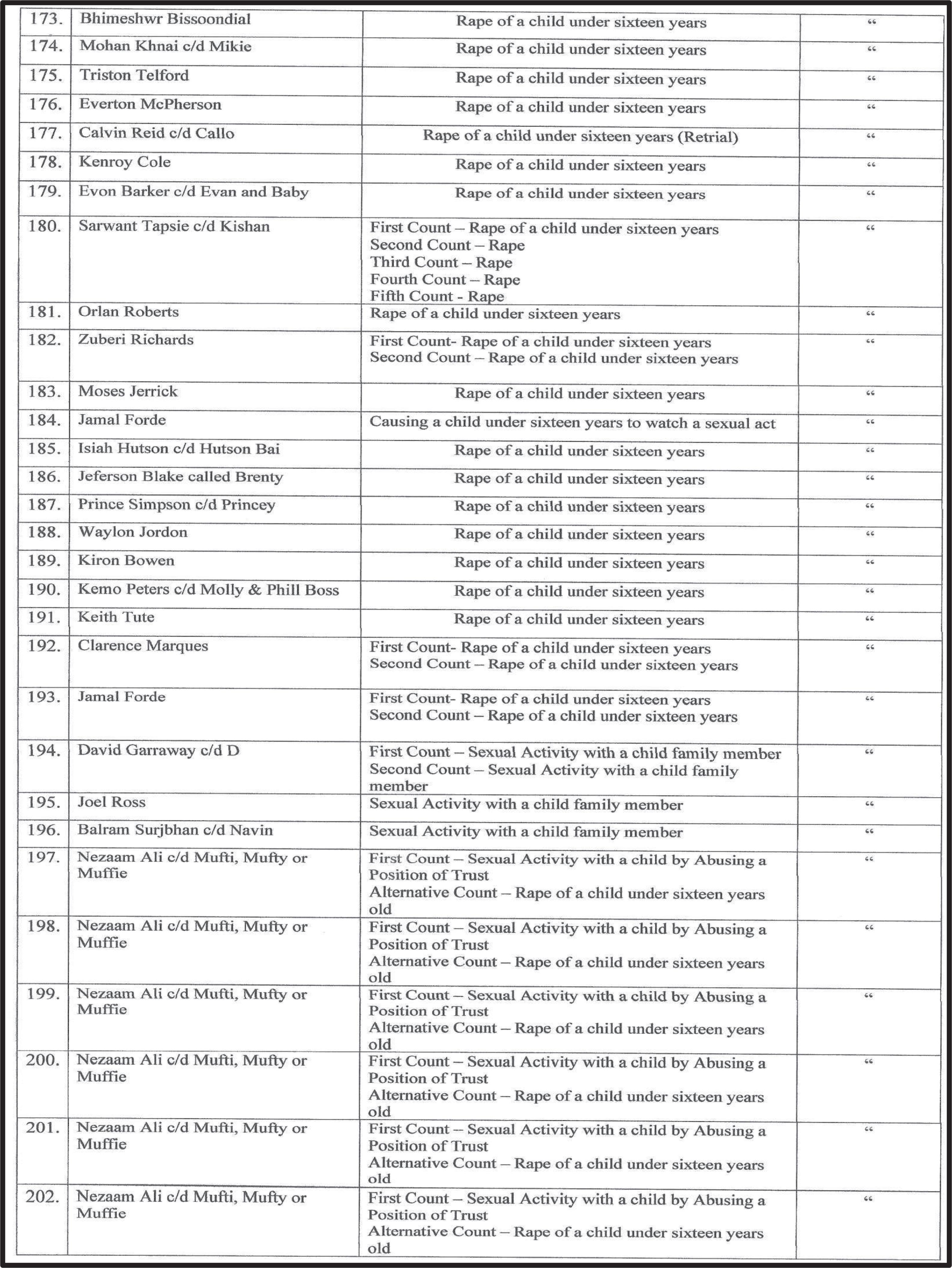
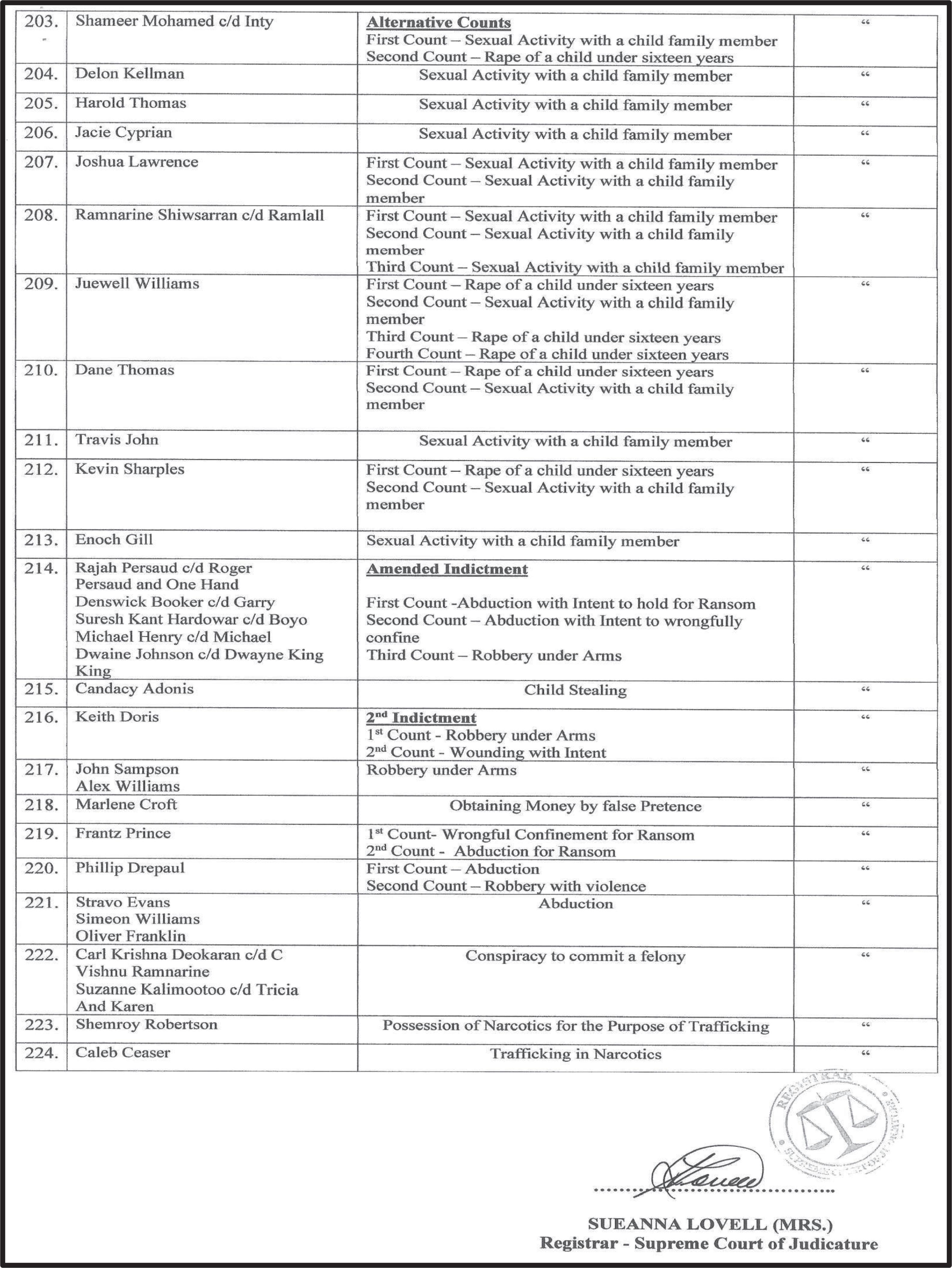









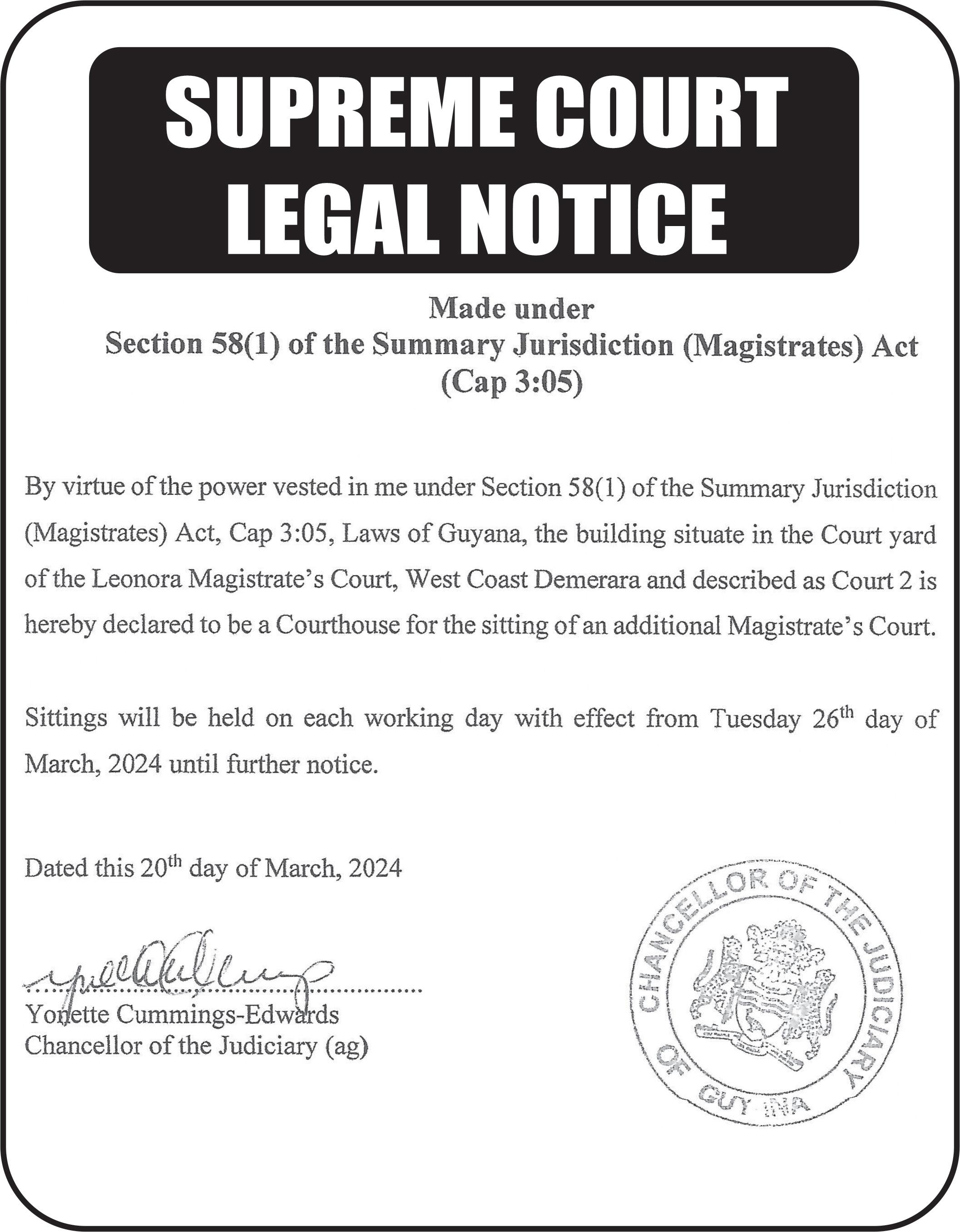
CRICKET West Indies (CWI) on Friday confirmed that the West Indies Women’s team will play three (3) One-Day Internationals (ODIs) and five (5) T20 Internationals (T20Is) against Pakistan Women at the National Bank Stadium (NBS) in Karachi from 18 April to 3 May 2024.
The ODIs are scheduled for 18, 21, and 23 April and hold significance as they contribute to the ongoing ICC Women's Championship (2022-25). These matches are crucial for the West Indies Women as they push for direct qualification for the ICC
Women’s Cricket World Cup that is due to take place in India in 2025. West Indies Women are currently positioned at No. 9 with 8 points (top six qualify automatically).
The West Indies Women's team last toured Pakistan in November 2021, resulting in victories in all three ODIs.
CWI’s Director of Cricket, Miles Bascombe, said: “The importance of this tour in our quest for automatic qualification to 2025 Cricket World Cup cannot be understated. Our team would be well prepared with players just emerging from the region-
al tournaments and then heading into camp before the start of the series. We also look forward to the return of our captain from a successful WPL campaign.”
The West Indies Women will assemble in Dubai from 6 April for a oneweek training camp as part of their preparations for the upcoming Pakistan tour.
West Indies Women Tour to Pakistan Schedule
All matches to be played at National Bank Stadium (NBS), Karachi 6-14 April – Pre-Tour

Preparation Training Camp, Dubai
14 April - West Indies
Women arrive in Karachi
18 April - 1st ODI, Pakistan v West Indies, NBS, Karachi (ICC Women’s Championship)
21 April - 2nd ODI, Pakistan v West Indies, NBS, Karachi (ICC
Women’s Championship)
23 April - 3rd ODI, Pakistan v West Indies, NBS, Karachi (ICC Women’s Championship)
26 April - 1st T20I, Pakistan v West Indies, NBS, Karachi
28 April - 2nd T20I, Pakistan v West Indies, NBS, Karachi
30 April - 3rd T20I, Pakistan v West Indies, NBS, Karachi
2 May - 4th T20I, Pakistan v West Indies, NBS, Karachi
3 May - 5th T20I, Pakistan v West Indies, NBS, Karachi
(Saturday March 23, 2024)
CUMMINGS ELECTRICAL COMPANY LTD-83 Garnett Street, Georgetown (Tel: 225-6158)
Answers to yesterday’s quiz:
(1) Ashif Abdulhai Mulla (Canada vs ZIM, King City, 2008)
(2) Elton Chigumbura (ZIM)
Today’s Quiz:
(1) Who is the first batsman to be dismissed by a WI bowler with the first ball of a T20 Int’l?
(2) Which WI bowler achieved the feat?
Answers in tomorrow’s issue

CMC – Destructive bowling from pacer Niall Smith and long-serving left-arm spinner Veerasammy Permaul bowled defending champions, Guyana Harpy Eagles, to a 254-run win against leaders, Windward Islands Volcanoes in the West Indies Championship on Friday in Antigua.
This unfolded after their captain, Tevin Imlach completed his second first-class hundred of 107, and West Indies Test opener Tagenarine Chanderpaul did the same with an undefeated 101, and the Harpy Eagles declared their second innings on 224 for two about 35 minutes after the scheduled lunch interval on the third day of their fifth-round match at the Coolidge
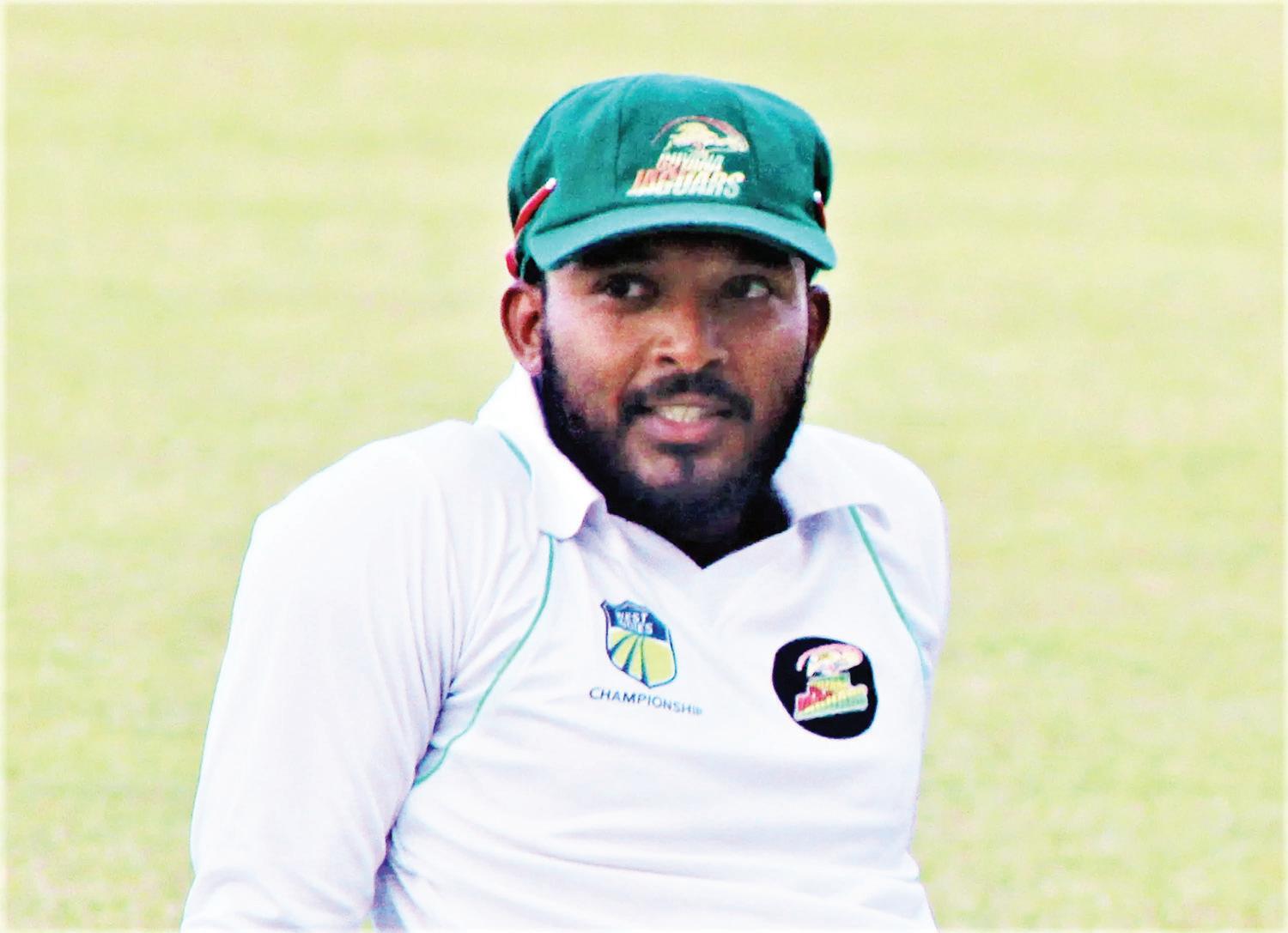
Ryan John supported with 41, and new West Indies Test batsman Kavem Hodge got 21 – but no other batsman reached 20.
Springer and John added 68 for the seventh wicket either side of tea, but Permaul trapped John

Cricket Ground.
Smith then bagged five for 29 from 11 overs, and Permaul supported with five for 47 from 24.2 overs, and the Volcanoes, chasing 419 to win, were bowled out for 164 in their second innings.
Barbadian all-rounder Shamar Springer hit an unbeaten 69 to lead the way for the Volcanoes, his 2016 Under-19 World Cup-winning teammate
lbw in the scheduled final hour of the day, and Harpy Eagles duly claimed extra time to deliver the knockout punch.
Permaul formalised the result about 55 minutes after the scheduled close when he got last man Darius Martin stumped for one to condemn the Volcanoes to their second successive defeat after they opened the season with three consecutive wins.
Smith tightened the grip of the Harpy Eagles on the match when he snared three wickets before tea.
The 28-year-old struck with his first delivery when he held a return catch to dismiss Kimani Melius for three in the second over, bowled Trinidadian left-handed opener Jeremy Solozano for a 17-ball duck in his fourth over, and trapped West Indies left-hander Alick Athanaze lbw for a threeball duck in his fifth over.
In between, Permaul got Hodge caught at mid-wicket for 21, and Volcanoes slumped to 35 for four at the break.
After tea, Smith got the ball rolling again when he bowled Test batsman Sunil Ambris for six with the third ball after the break, and Permaul got Barbadian wicketkeeper-batsman Tevyn Walcott caught at mid-on for two from an ill-advised slogsweep five overs later.
Volcanoes were 45 for six, and John came to the crease and resisted the Harpy Eagles for an hourand-a-half and shared with Springer before Permaul removed him, exposing the tail-end of the batting to the Harpy Eagles.
Permaul held a return catch to dismiss Larry
Edward for two, but Darel Cyrus came and frustrated the Harpy Eagles for about half-hou r before Smith returned and got him caught at first slip for nine, bringing Martin to the crease.
Earlier, Harpy Eagles started the day on 168 for one, and Imlach, a recent West Indies Test selectee, and Chanderpaul, the son of former Guyana and West Indies captain Shivnarine Chanderpaul, took their time to reach their land-
marks knowing that their side more than enough to push for victory.
Imlach, not out on 88 overnight, reached his hundred from 223 balls when he whipped Martin through mid-wicket for two before John had him caught low down at point in the penultimate over before Harpy Eagles reached 210 for two at lunch.
Chanderpaul, not out on 78 overnight, reached his hundred
from 243 balls when he drove Springer to mid-on for a single in the sixth over after the interval before Harpy Eagles soon after declared.
Harpy Eagles face hosts Jamaica Scorpions in the sixth round, starting on April 10 at Sabina Park, and Volcanoes will try to get their title bid back on track when they meet hosts Cricket West Indies Academy at Coolidge.

GUYANA Football Federation (GFF) President Wayne Forde is in the United States (Texas) on official football business.
President Forde had an extremely productive meeting with FIFA Vice-President and Concacaf President, Mr. Victor Montagliani, and Concacaf Deputy General Secretary Mr. Marco Leal.
The leaders discussed the positive impact the One Concacaf Program has had in Guyana, along with a wide range of future football development initiatives on and off the pitch.
President Montagliani took the opportunity during the meeting to express that he was very pleased with the hard work and investment
related to the Blue Water Shipping Stadium, and a future visit to Guyana for the project’s sod turning.
The initial phase of land preparation works at the D’Urban Park facility is being funded by Concacaf, through the One Concacaf Program which was launched by President Montagliani back in 2016.
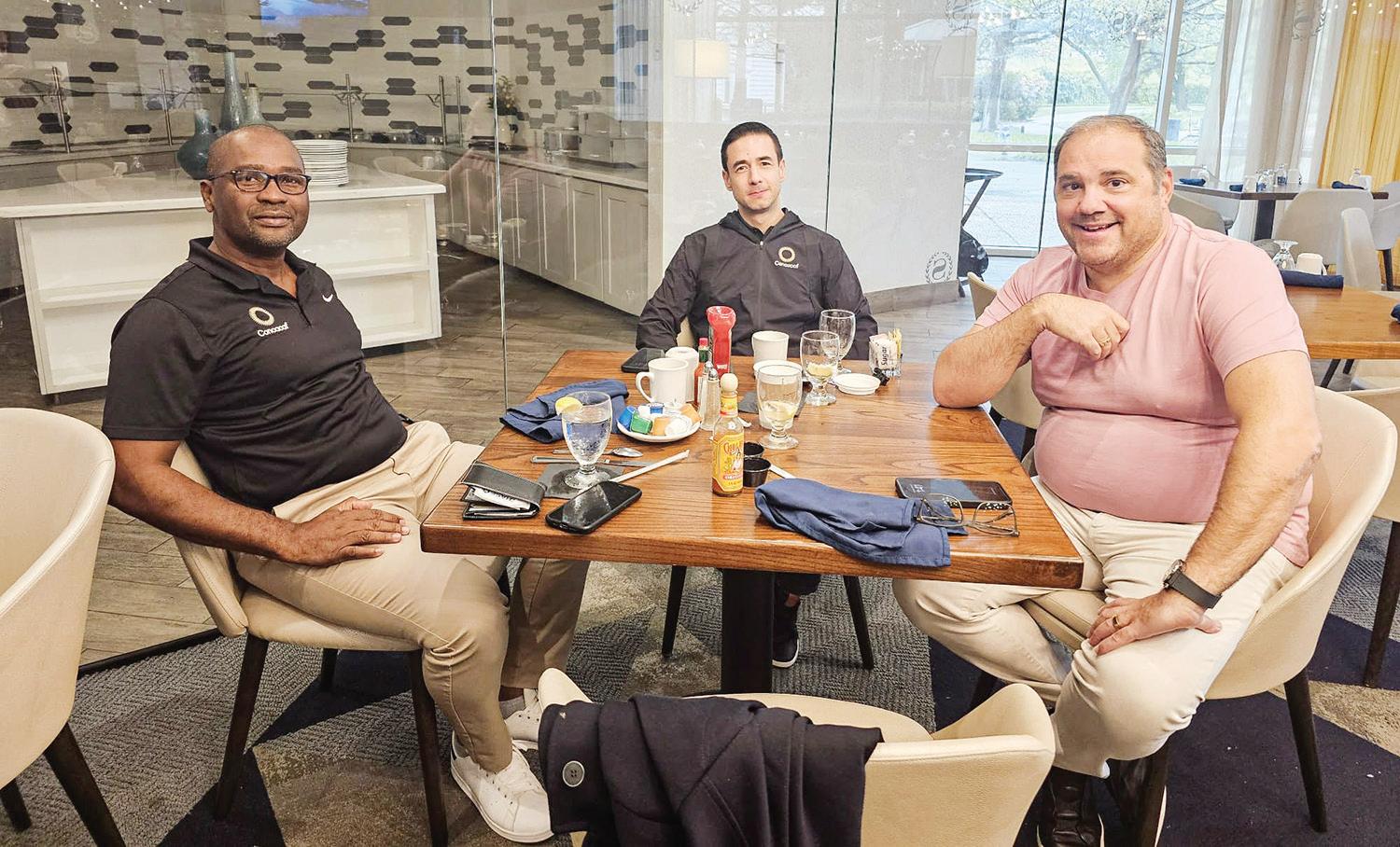
SANTOS FC picked up their second win of this year’s elite league on Thursday evening after a hard-fought victory over Buxton FC.
The match, played at the Guyana Football Federation (GFF)’s National Training Centre (NTC), saw Santos taking on the winless Buxton United in the evening’s lone clash.
The first 40 minutes proved sedate, as both sides failed to connect with the back of the net.
It was not until the 41st minute that Michael Oie converted a chance to give Santos the lead.
After the break, the two teams seemed unable to move forward, before Randy Roberts doubled Santos’ advantage in the 63rd.
Santos would attack further as the game went on, seeking more goals, but ultimately had to settle for the 2-nil win after 90 minutes.
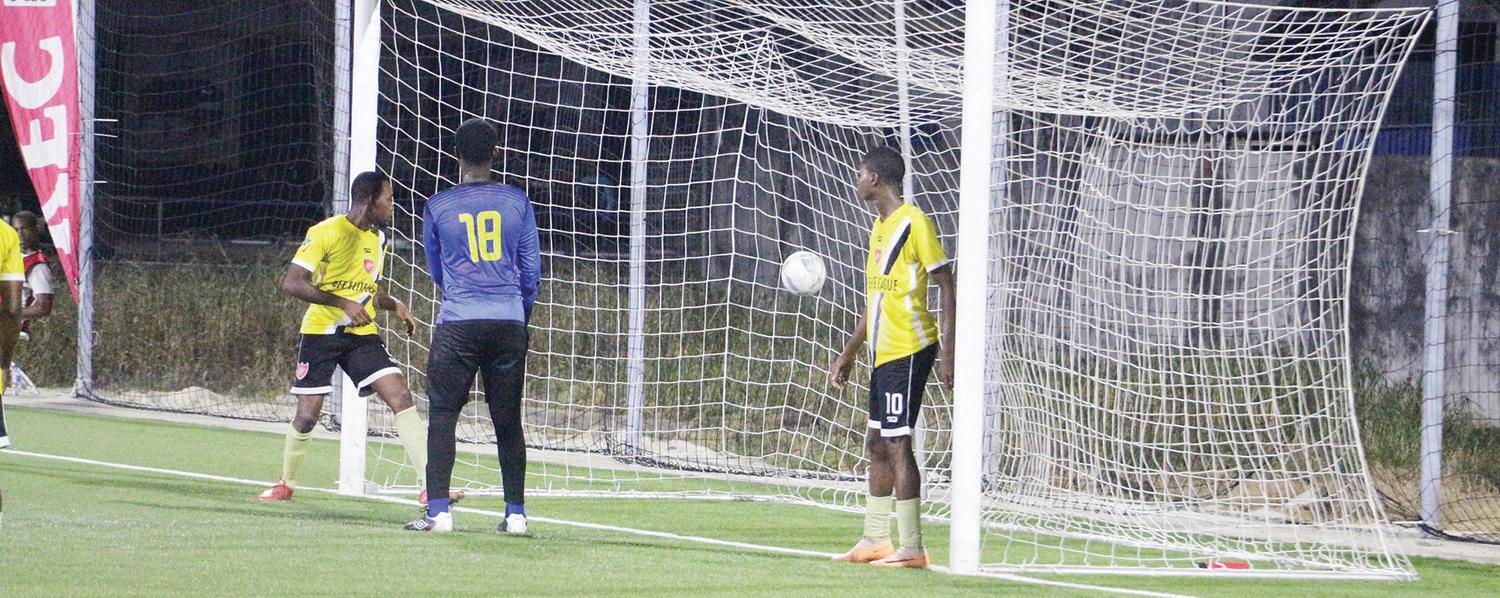
After Thursday’s game, the Guyana Police Force holds the reigns at the top of the table after 18 games in the league.
The police led by virtue of four wins out of 4 games, while former table topper Western Tigers are second with three wins and a loss.
Favourites, Slingerz, are third with an unbeaten record of three wins in three, with defending champion Guyana Defence Force fourth.
Santos, after their latest win, round out the top 5 of the 10 teams playing in the League.
The other competing teams are: Ann’s Grove, Den Amstel, Fruta Conquerors, Monedderlust, and Buxton United.
The league sees the sides battling it out over 90 games
in total, with 18 games to be played by each team for a grand prize of two million dollars for the top spot, with 1.2 million for second place, and $800,000 for third.
Season Six of the League continues this eve-
ning (Saturday) with a double header, Ann’s Grove will clash with Den Amstel at 18:30hours, and Fruta Conquerors will play Berbice’s Monedderlust in the feature clash.
ground,
See full schedule below
Round 1 Day 1
Matches are
for both the Ministry of Education
Ministry of Education ground
12:30hrs
14:30hrs
16:00hrs Chase Acade-
vs North Riumveldt
Queens College ground
13:00hrs
Ministry
13:00hrs Charlestown Secondary vs Anns Grove
14:30hrs Waramauri vs Bishops
16:00hrs Santa Rosa Secondary vs East Riumveldt
Queens College ground
12:30hrs Presidents College vs Hope Secondary
14:00hrs Marian Academy vs South Riumveldt
15:30hrs Carmel Secondary vs Leonora
GUYANA’S national men’s hockey team had their heaviest defeat of the ongoing Indoor Pan American Cup 2024 when they went down 10-0 to top-ranked team Argentina
The Guyanese who surprised Argentina when they first met in the round-robin stage were overwhelmed when they met for a second time in the semis.
Argentina turned up the heat to make an emphatic display, after dominating both ends of the court to record six field goals with two penalty stroke goals, and converting two pen-
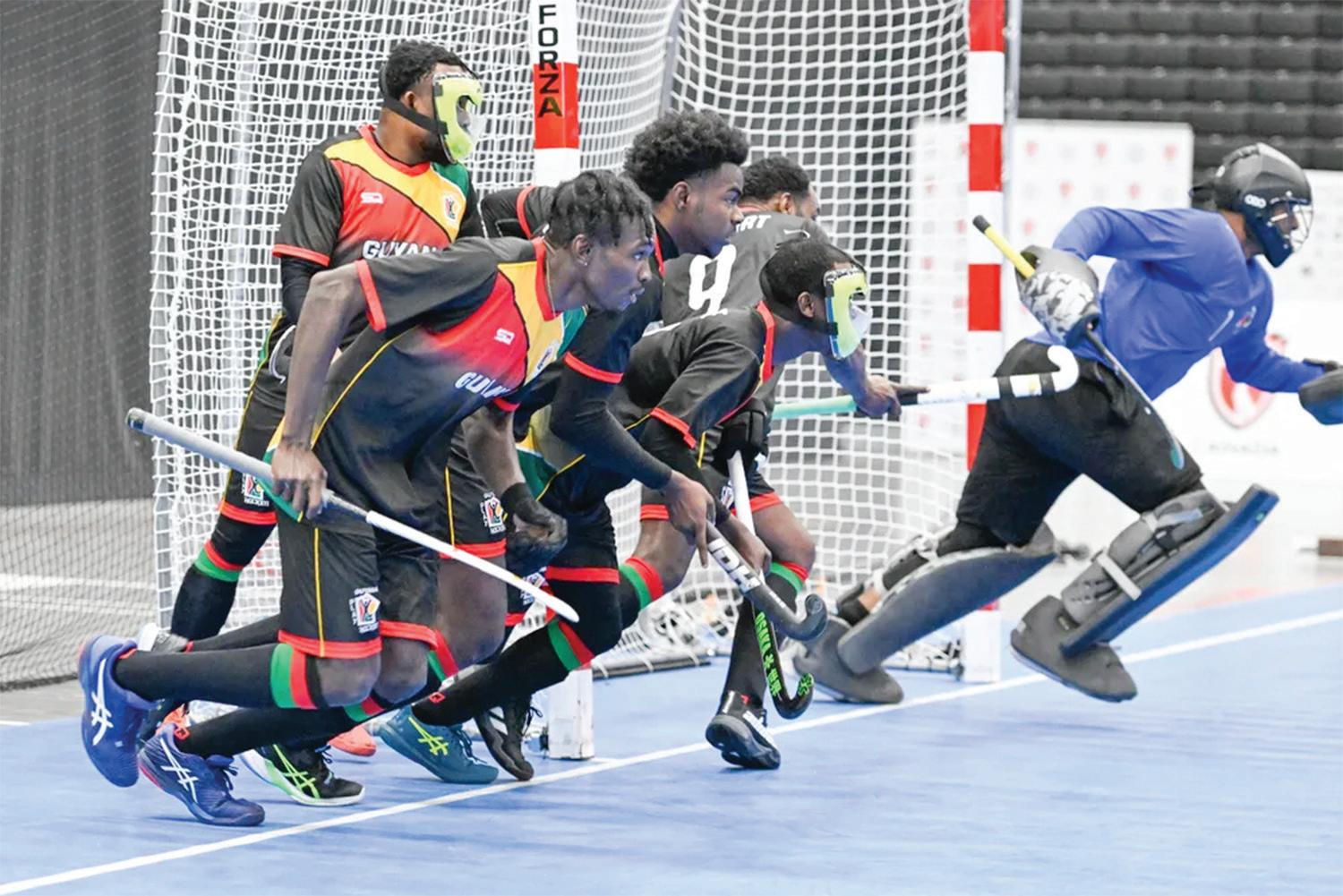
alty corners for a 10-nil victory.
The loss was Guyana’s fourth to the hockey powerhouse since the 2014 Indoor pan American cup.
Guyana, despite picking up three yellow cards, were unable to turn the tide in offence.
Argentina had hattricks from Gaston Rodrigues and Juan Eleicegui, with a double from Agustin Ceballos.
In the round-robin phase, Guyana opened their campaign with a spirited 9-5 loss to Argentina before they went down in a tough encounter to the USA, 5-3.
They next tied with Canada 3-3 before facing off with Trinidad and Tobago who defeated the locals 5-3.
The Guyanese will play their final fixture against the USA for third place.
The team was coached for the first time by former national player Shane Samuels, with support from head of the national team programme Robert Fernandes and Assistant coach John Abrams.
The tournament was a qualifier for the next Indoor Hockey World Cup, with finalists Trinidad and Argentina going through.

THIS evening, the Eagles Basketball Club, which is already in uncharted territory, will aim to go to deeper when they face-off against storied local side, Dynas Ravens, in the title decider of the One Guyana Basketball League.
The inaugural One Guyana Basketball League Playoff finals Game Three will tip off at 21:00 hours at the National Gymnasium’s hard courts tonight.
The win would cap off a special run for Eagles, led by skipper Travis Belgrave, who has produced some master-
class performances for his team.
Belgrave had scores of 28 and 18 in this Best-of-Three series, which is currently tied at one apiece.
However, it has not been a one-man show.
Eagles, who played unbeaten to the final where they lost their first game, has seen the likes of Denzel Ross showing his shooting skills with some game high points in the League.
However, the underestimated work of experienced campaigner Sherland Gillis and Michael Richards have
been a revelation in defense for the offense-minded team.
Eagles’ only loss was in the first game of the finals, 78-76, when either player was absent or had a bad game.
The younger Eagles, coached by Adrian Hooper, should be a shoo-in for the deciding clash, but if the experienced Ravens side, under tutelage of player/coach Darcel Harris and coach Marlon Rodrigues, have shown anything, it is that they are not the sort to be counted out.
The team boasts ace 3-point shooter in former na-
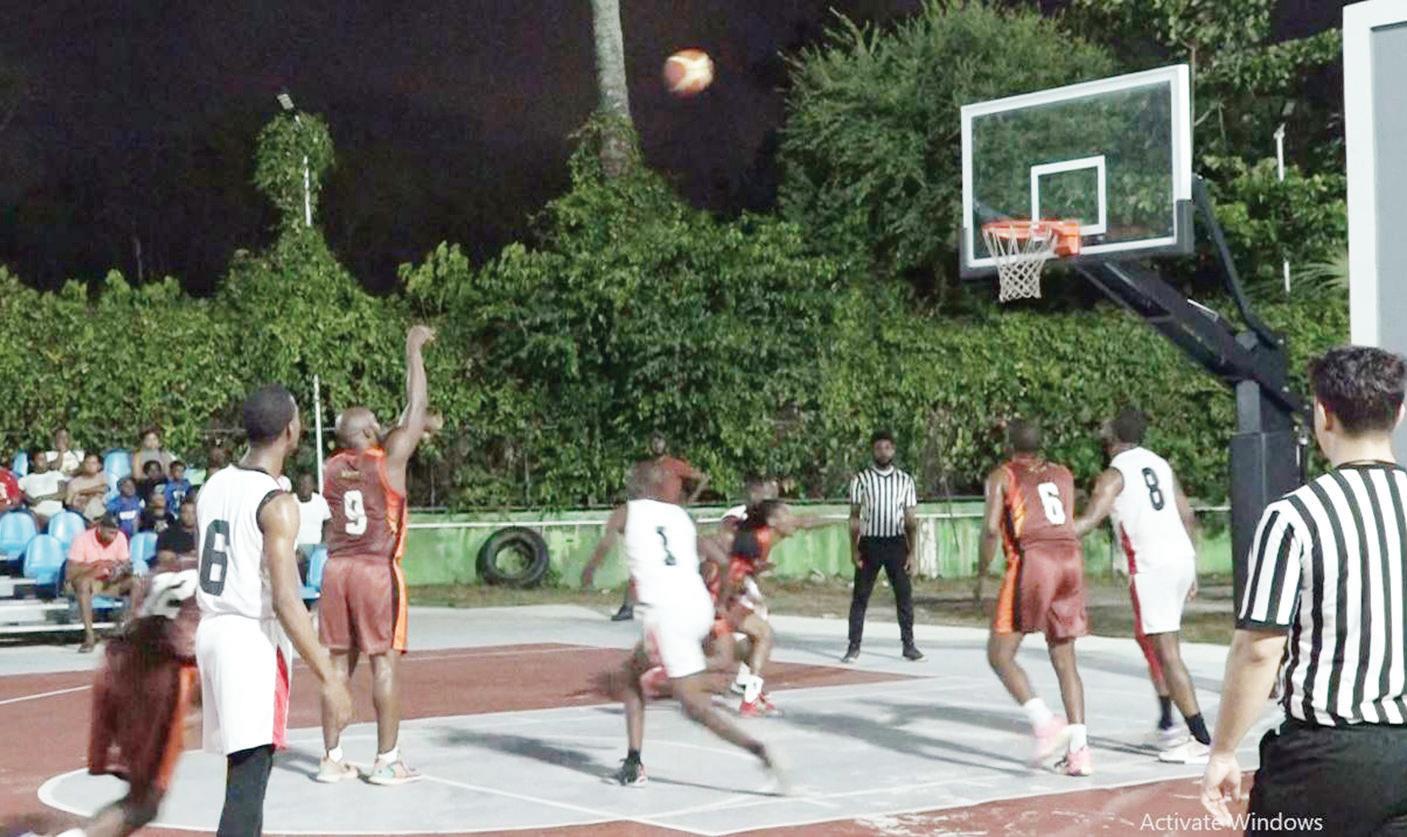
tional player Ryan Stephney, who led them with 19 points in the first game.
Despite his longevity on the local scene, he continues to demonstrate formidable fighting spirit.
Ravens livewire Shamar Huntley, is equally a top talent, and, based on his performance in the league, which started last year, could be in the running for a place on the national side.
Dominic Vincente, Ravens’ captain, has also done well as a point guard, and showed his worth with some important minutes, albeit in
Game Two, when Ravens lost 67-59.
Vincente will need to show mental strength under pressure if Ravens is to tip the surging Eagles.
He will also have the support of the likes of Jude Corlette, who has played well for his side.
The game will likely be decided in the first and fourth quarter. If Eagles gets a flier in the first period, it will be hard to clip their wings, but if Ravens manages to ground them early, they could use their experience and tactics to close it out.
The Ravens will have firm conviction of winning after giving Eagles their only loss in the league, especially given that the seasoned campaigners have the ‘knowhow’ and experience in tournament finals.
The tournament tipped off in August last year, and sees $2M up for grabs, with a million for the winner, and half-a-million for second place in the League finals.
The league is sponsored by the Ministry of Culture Youth and Sport, G-boat Guyana, and the National Sport Commission.

